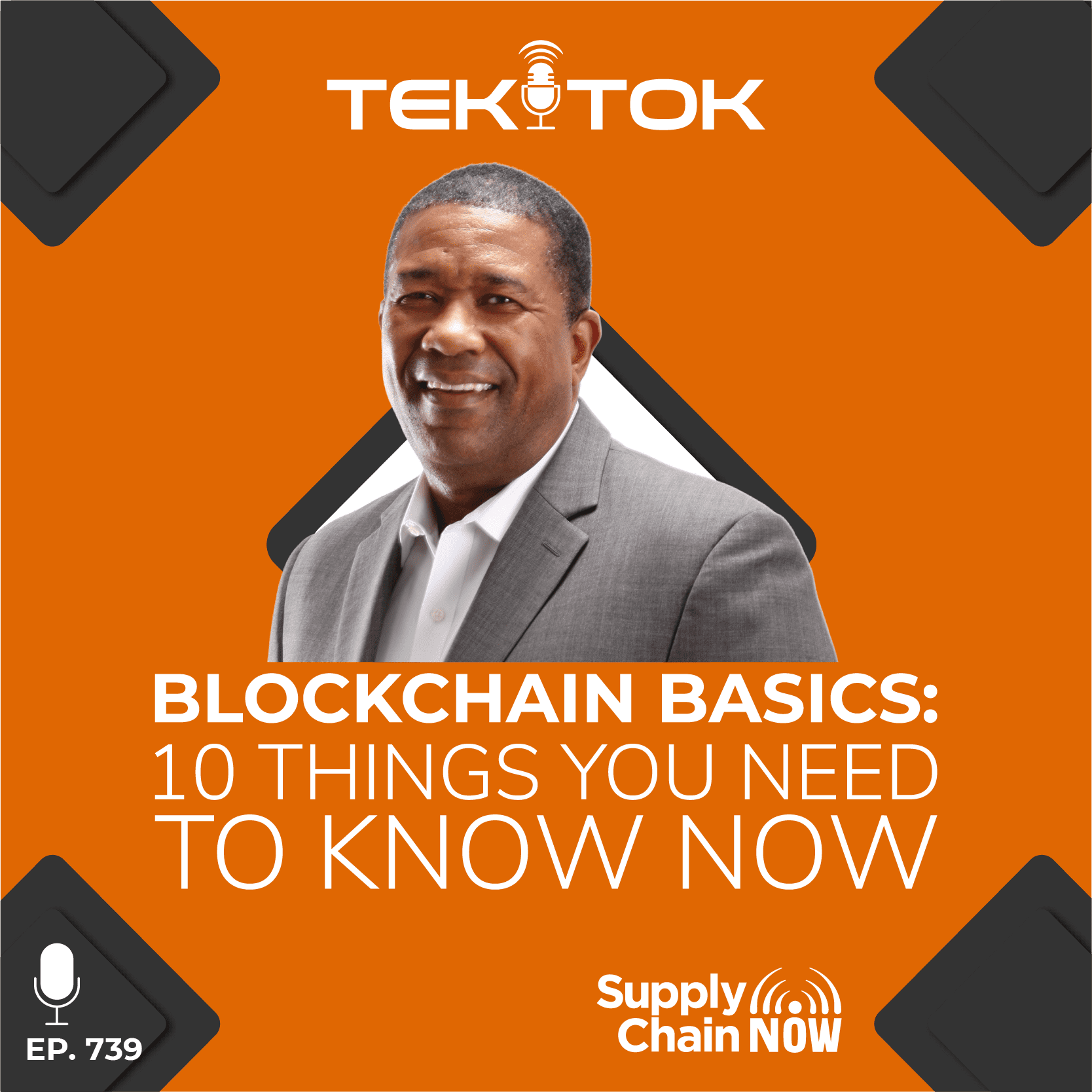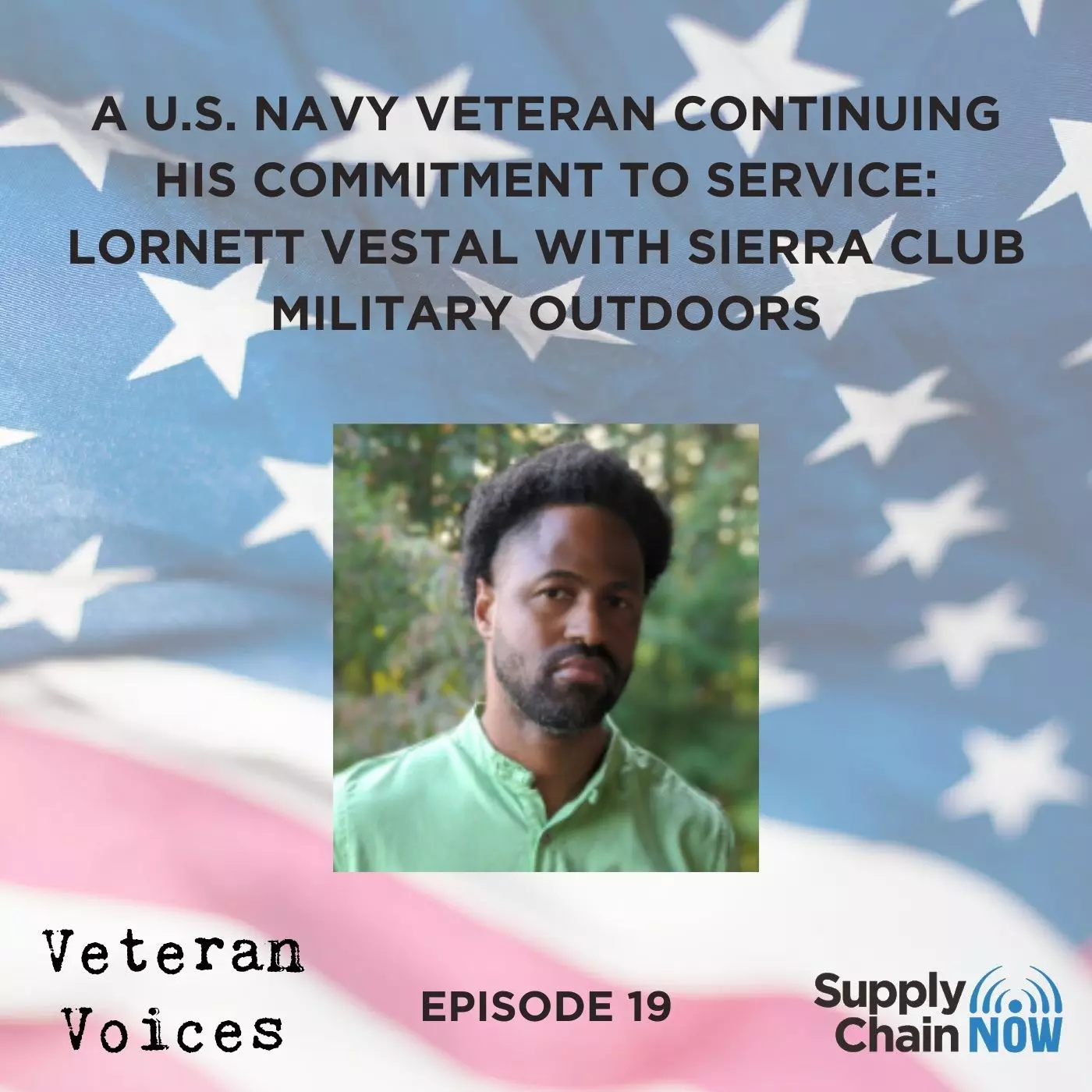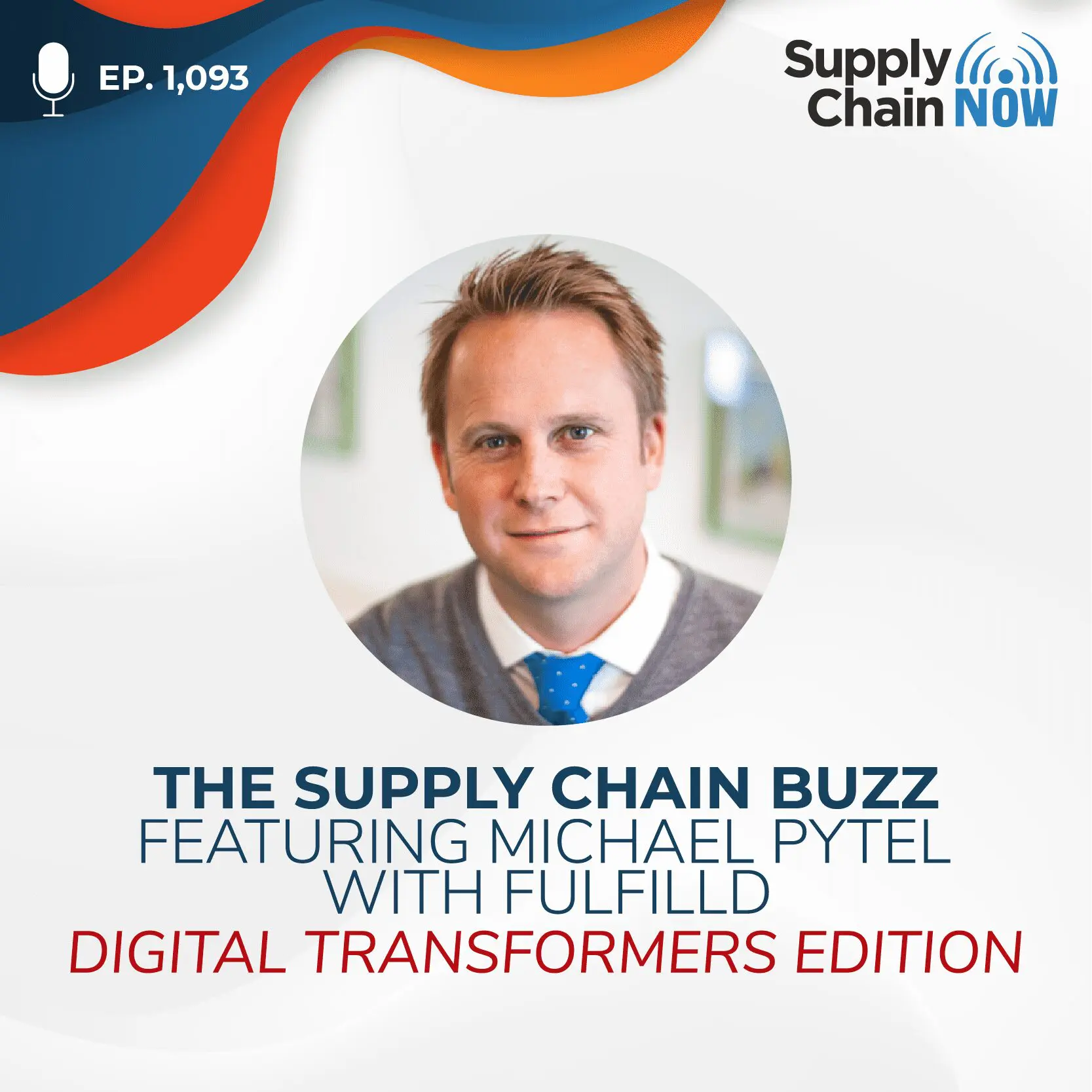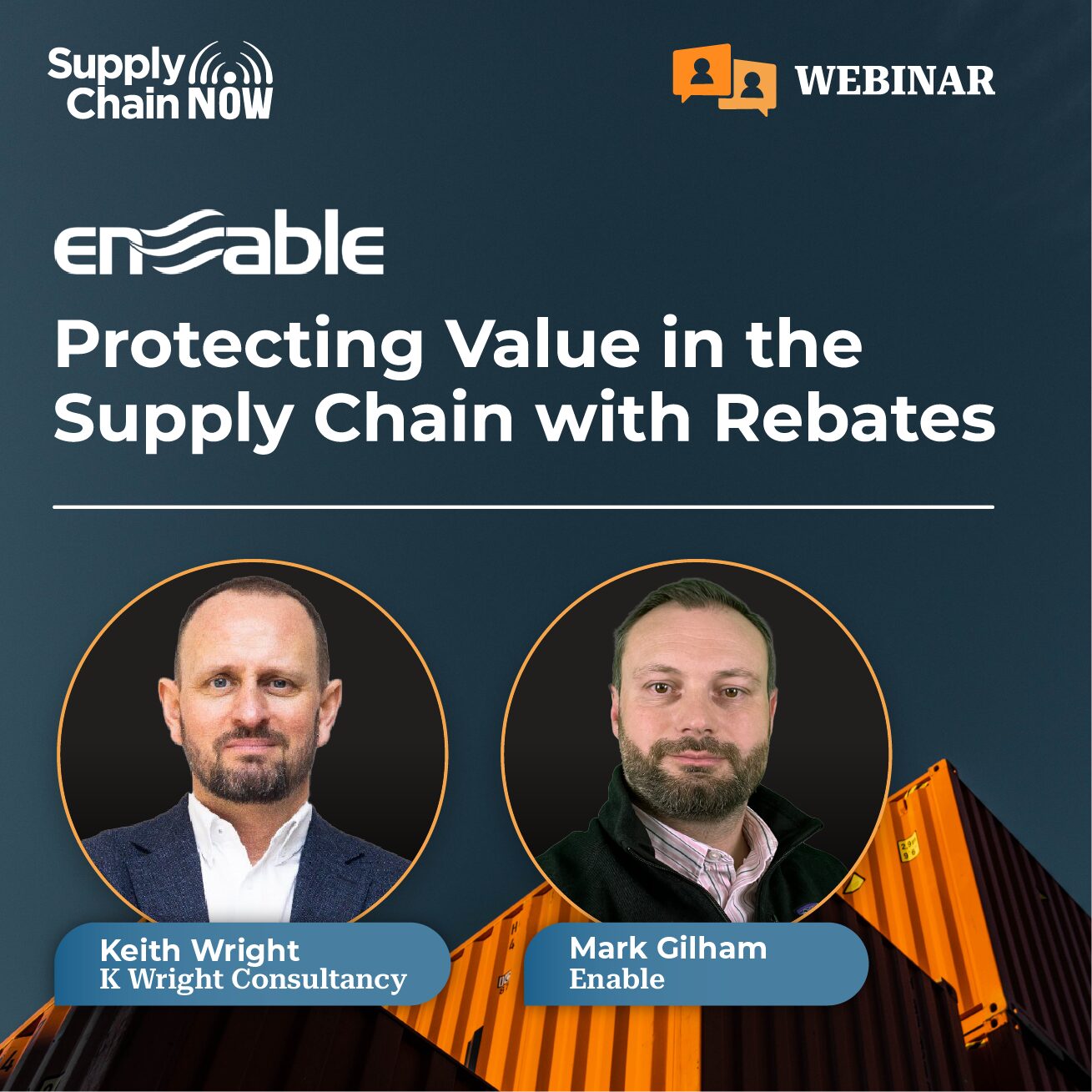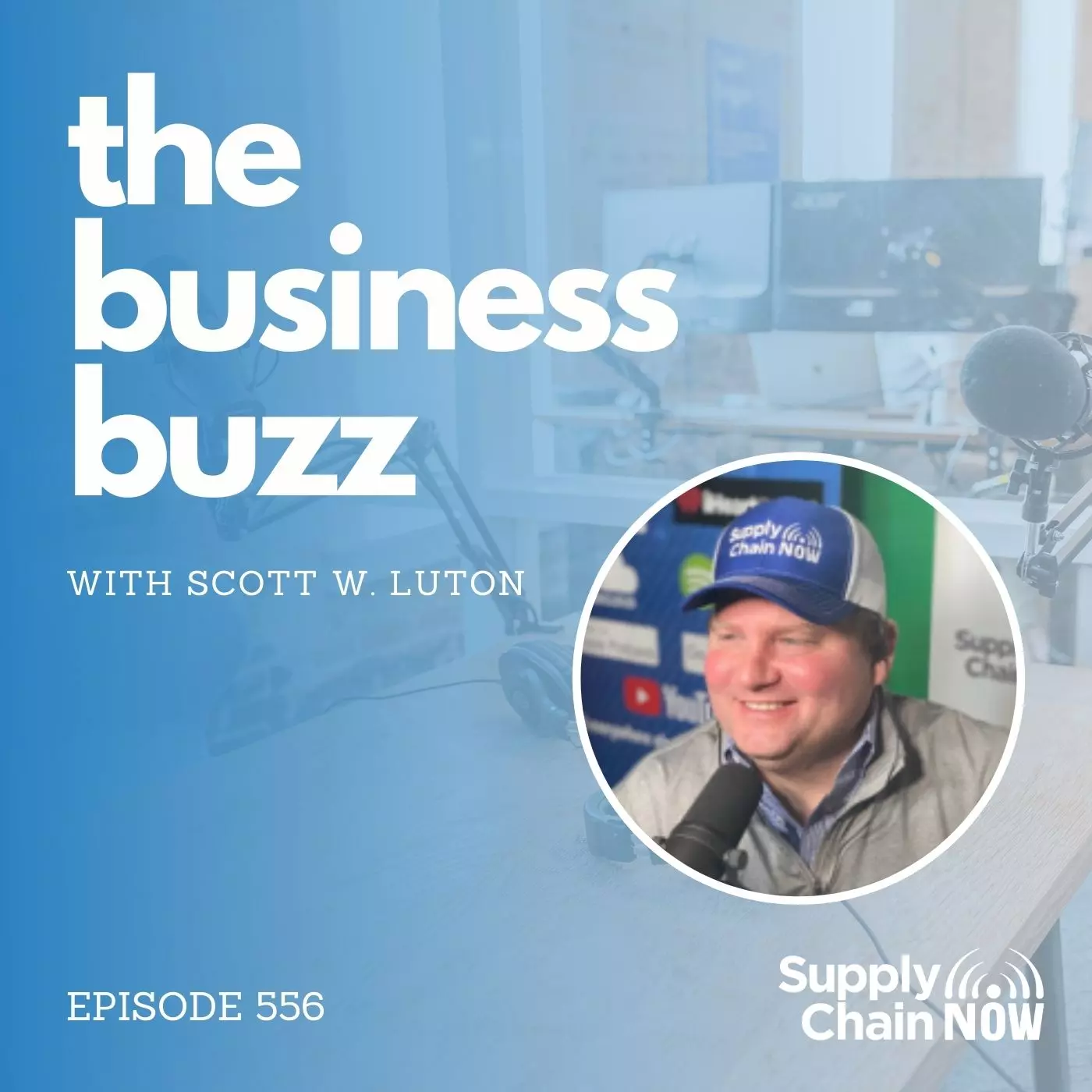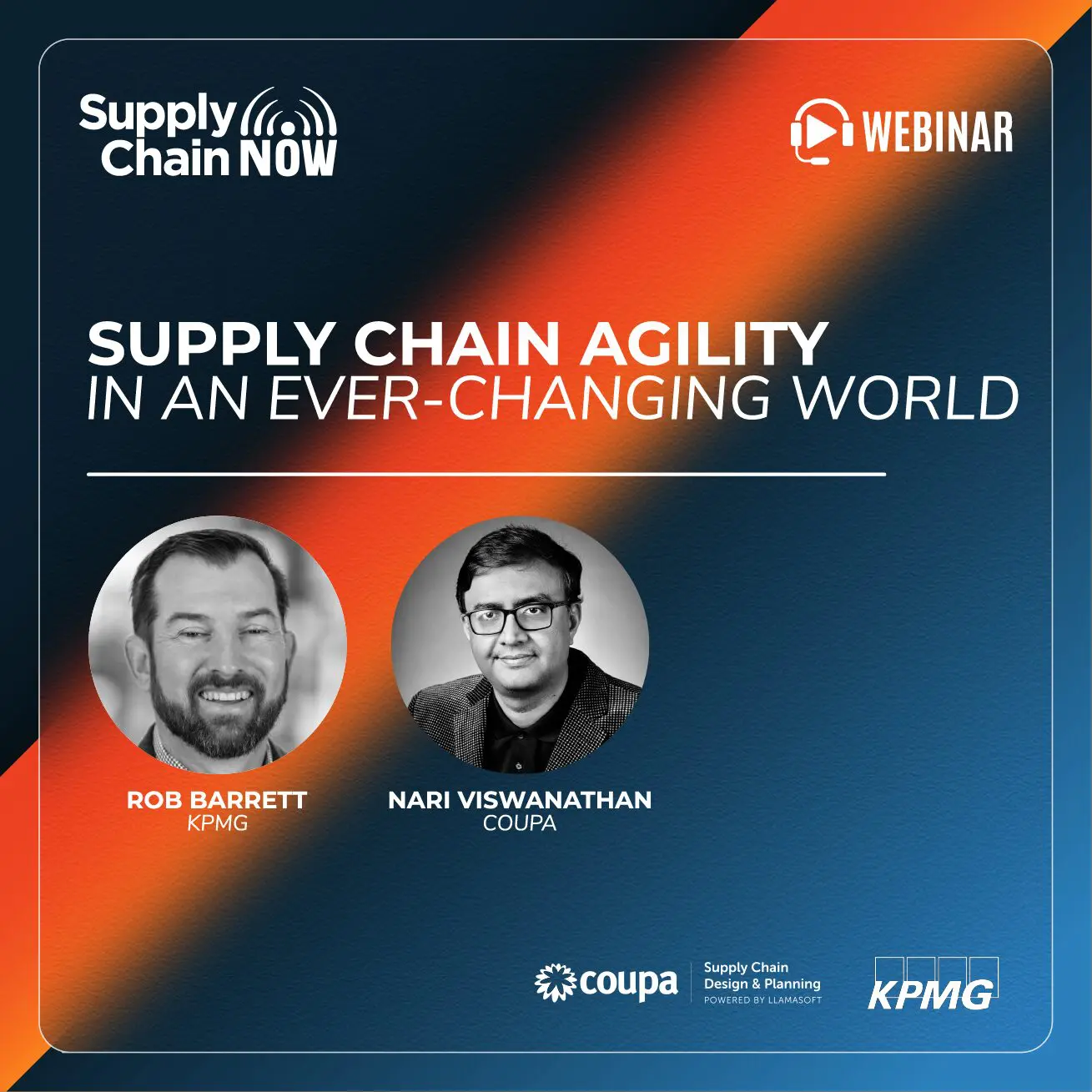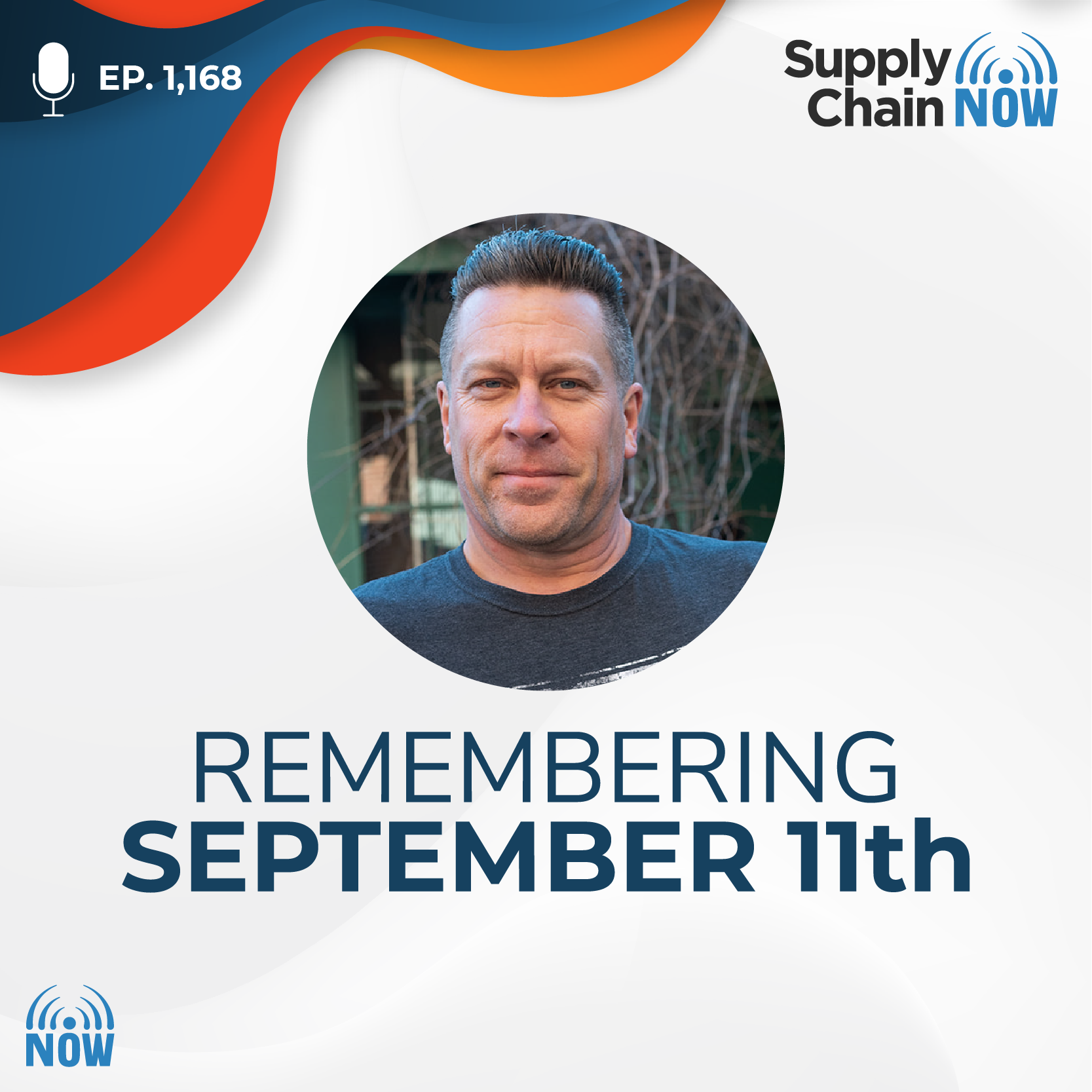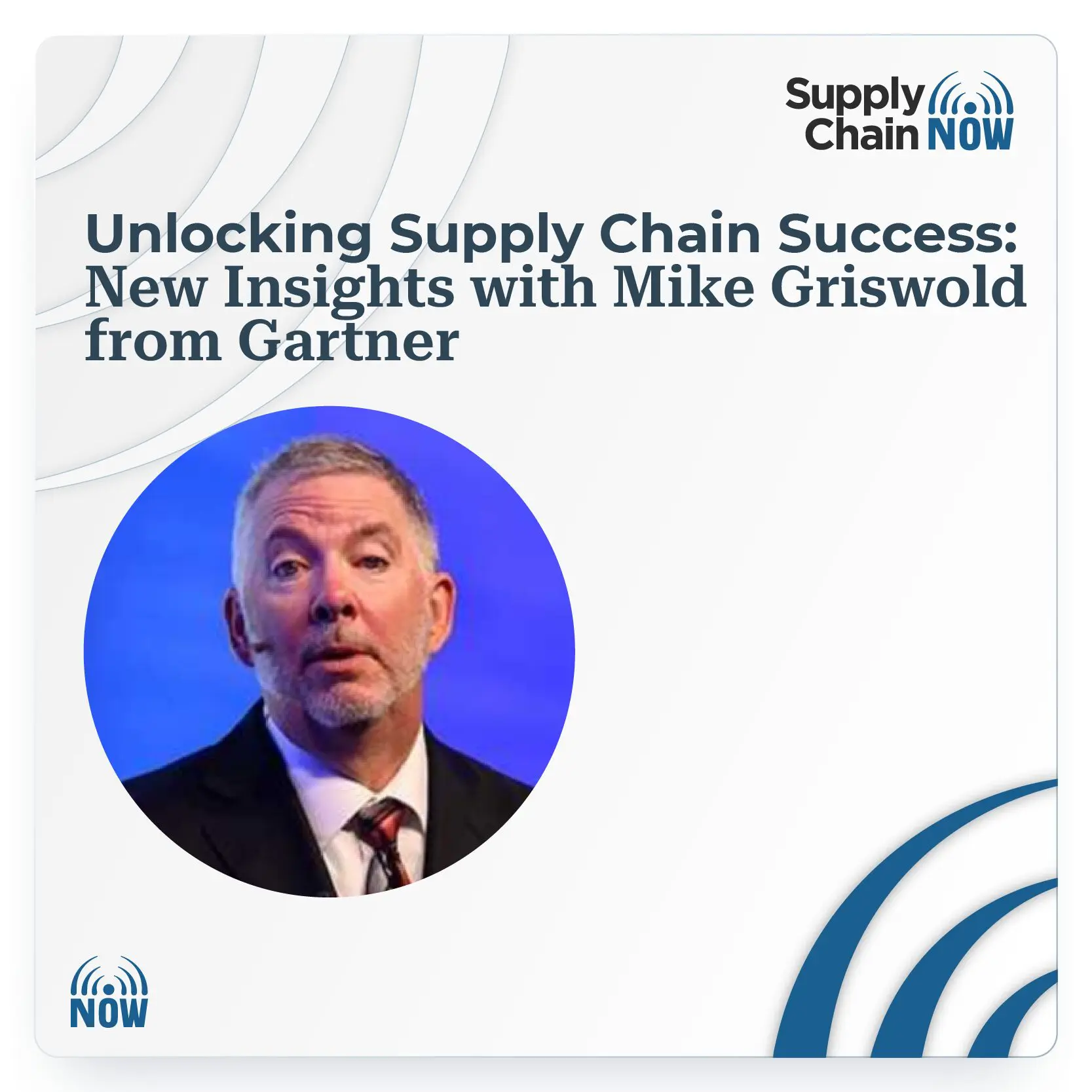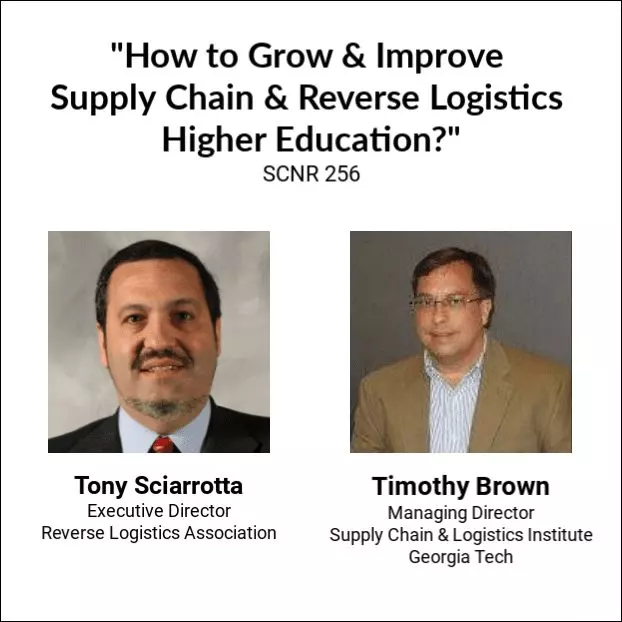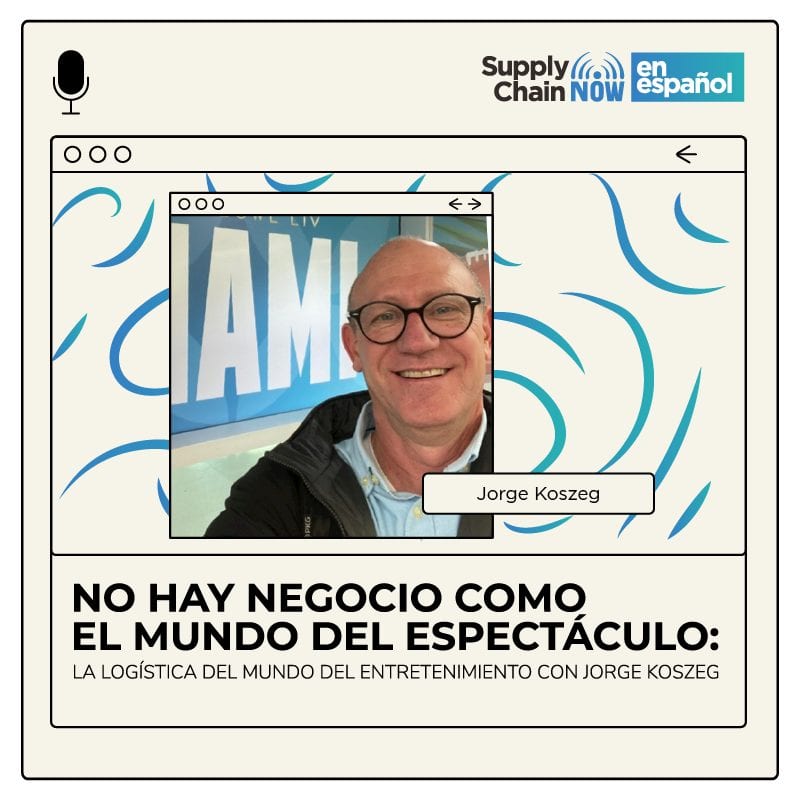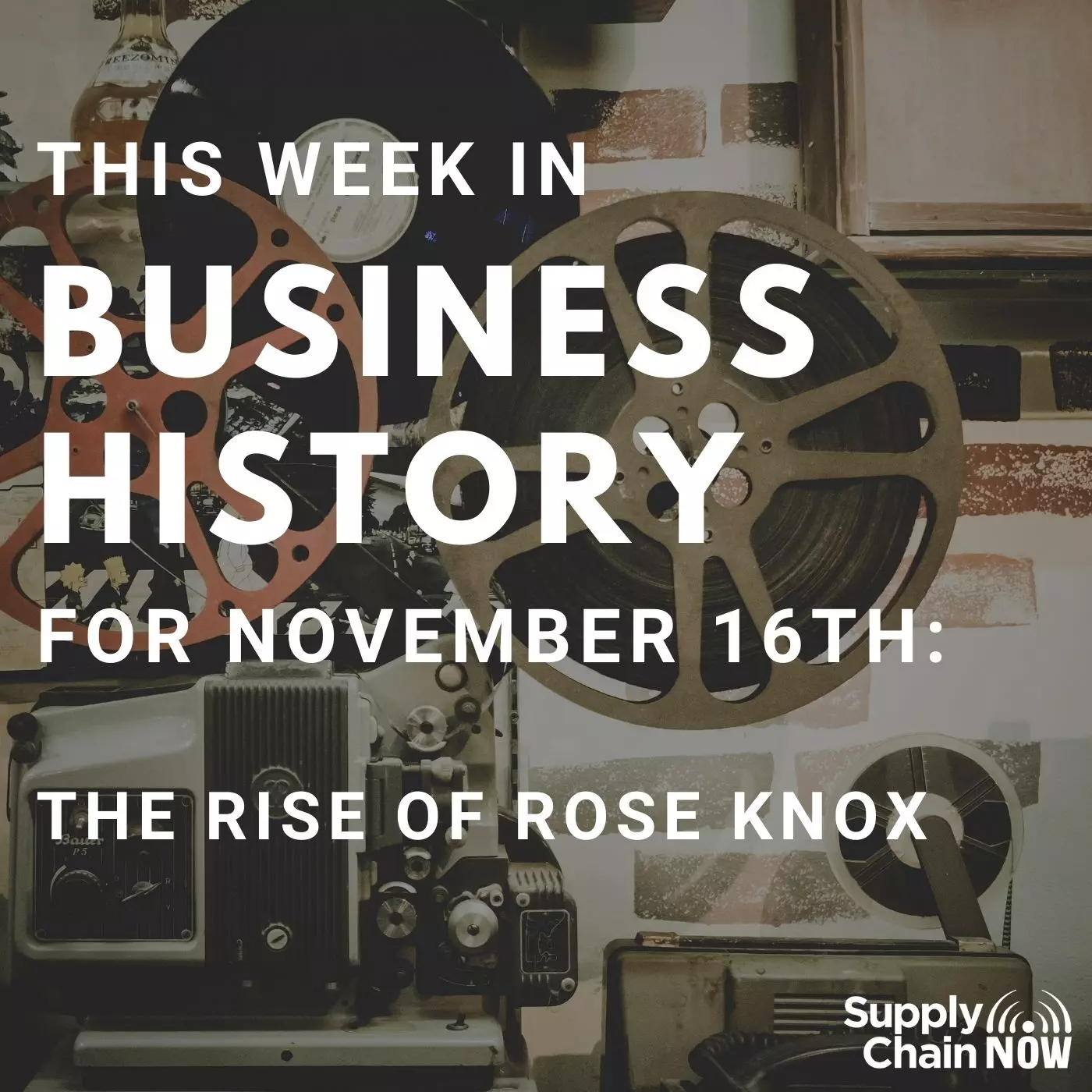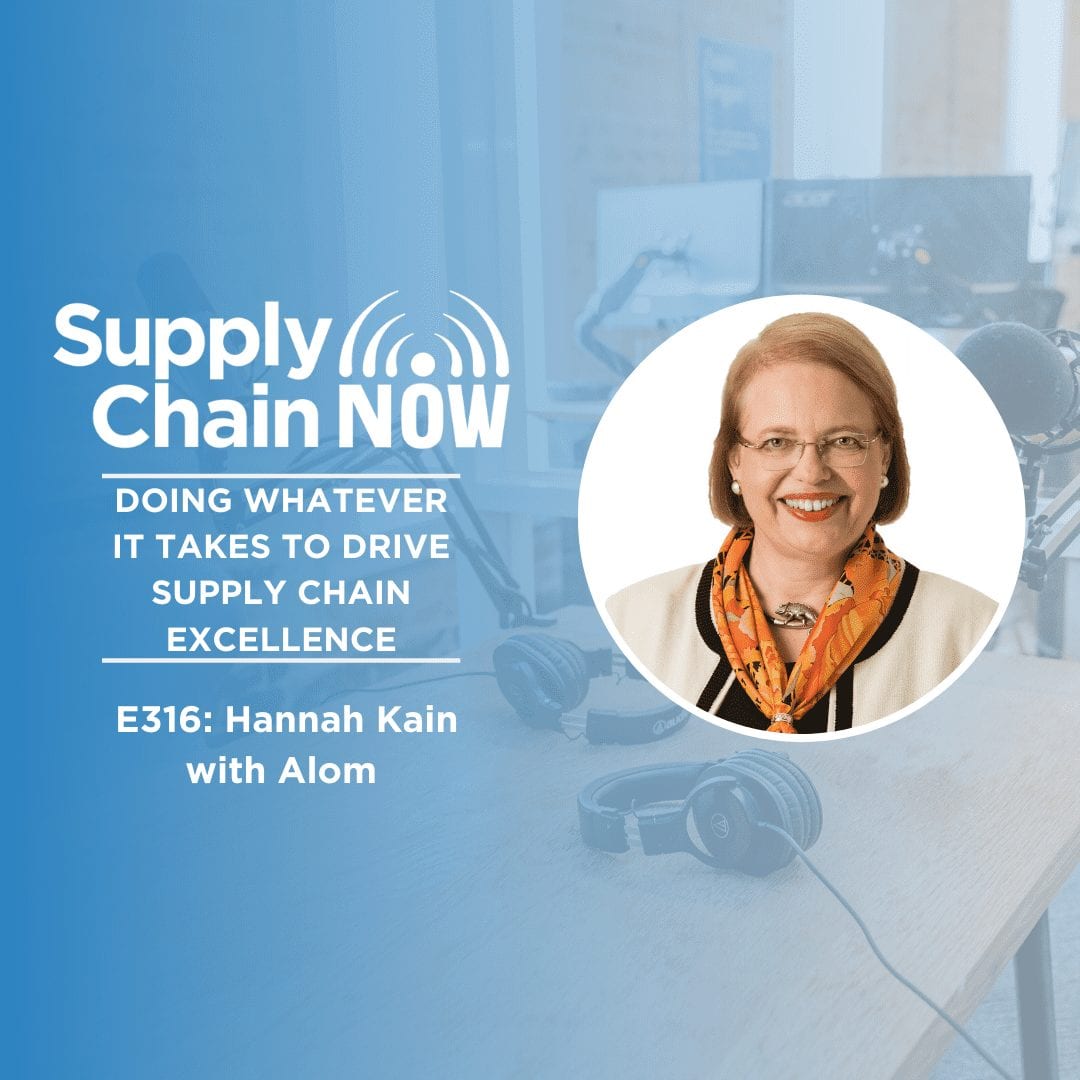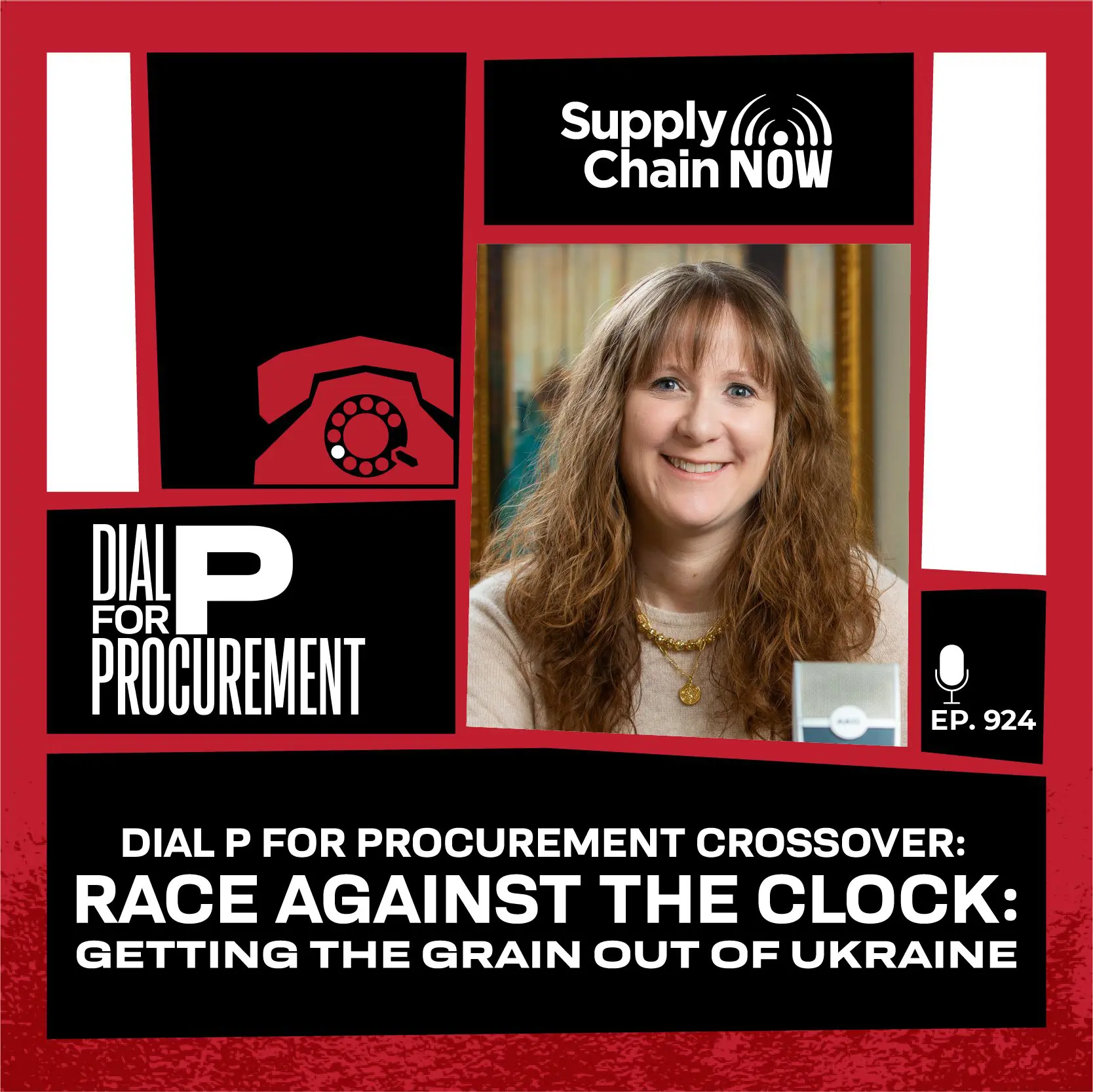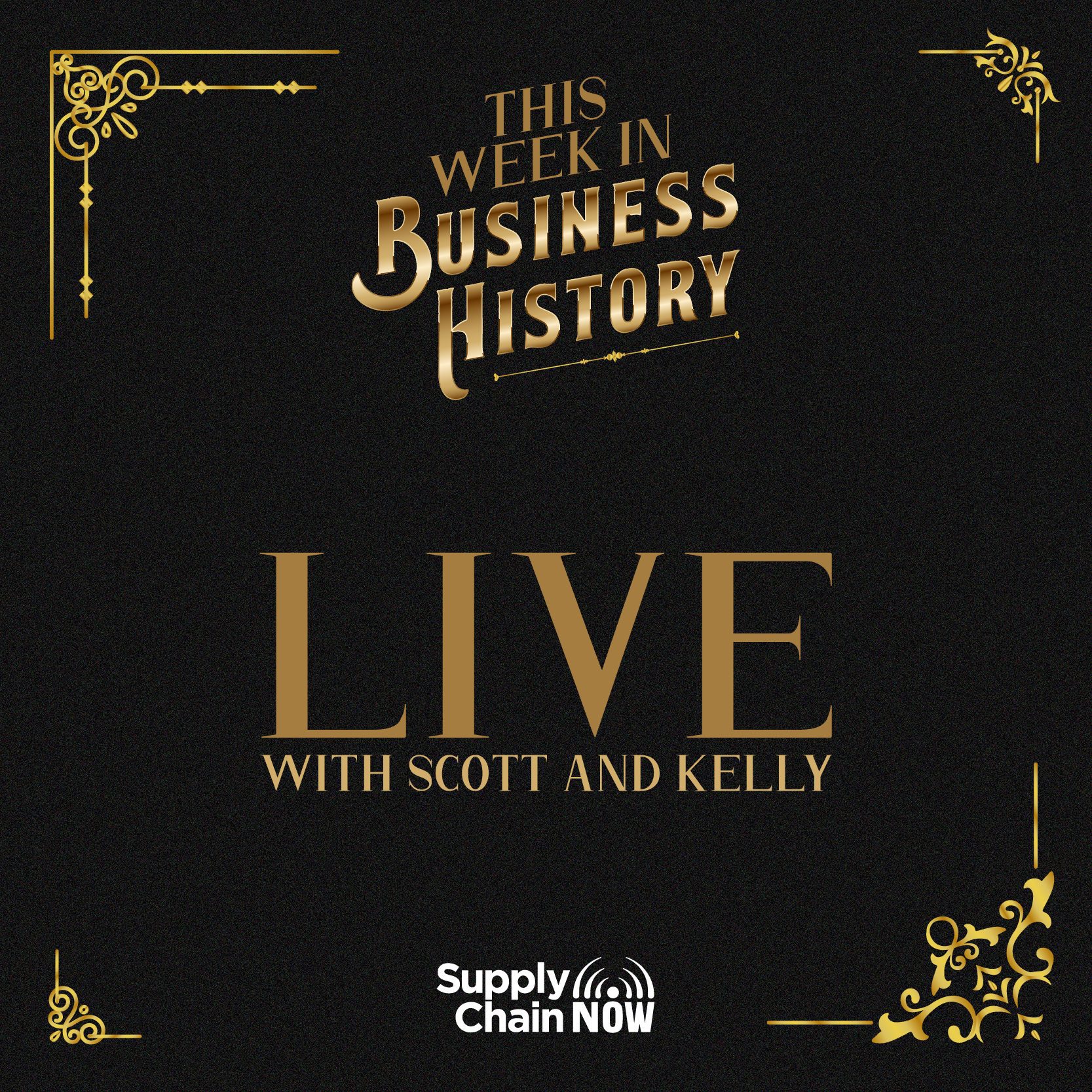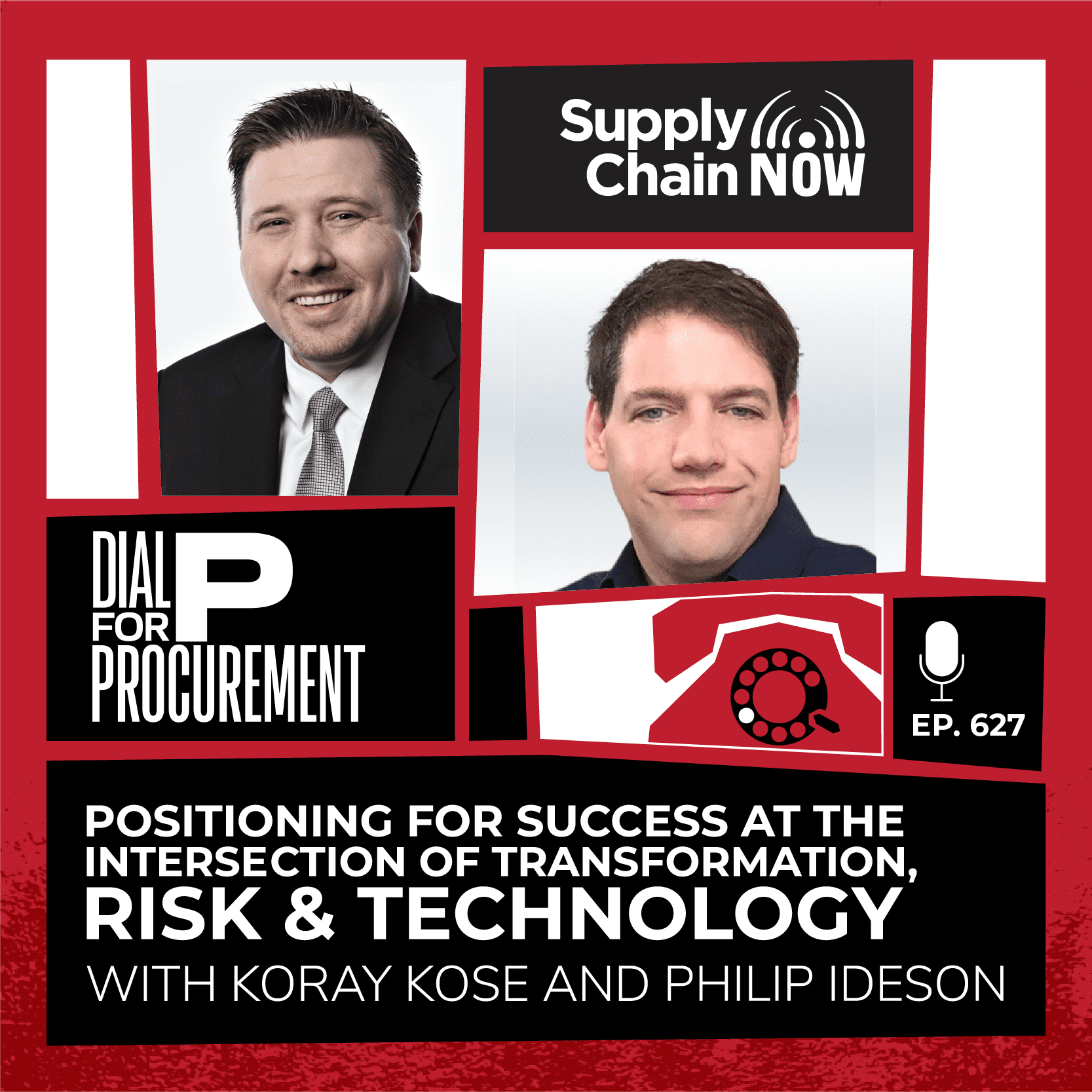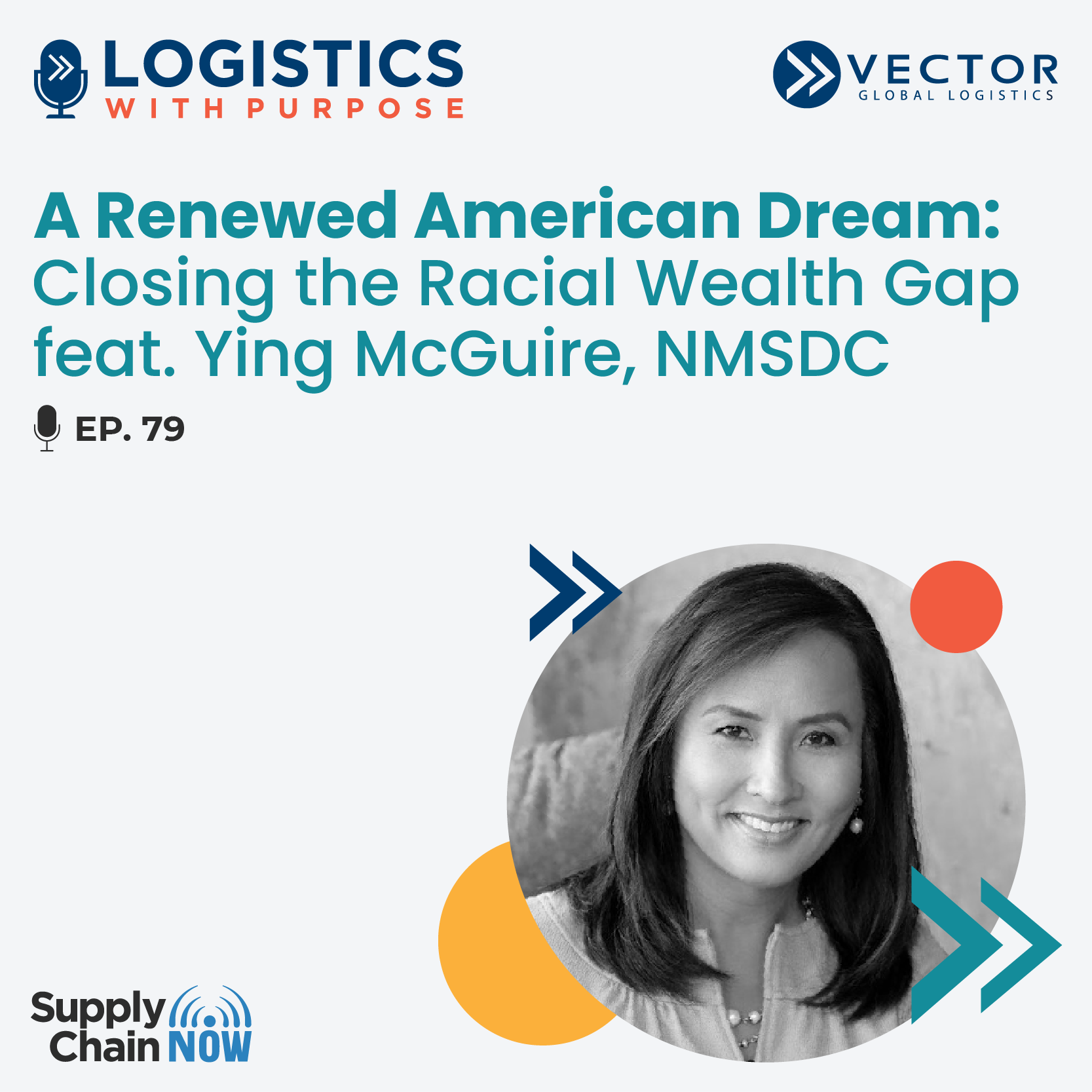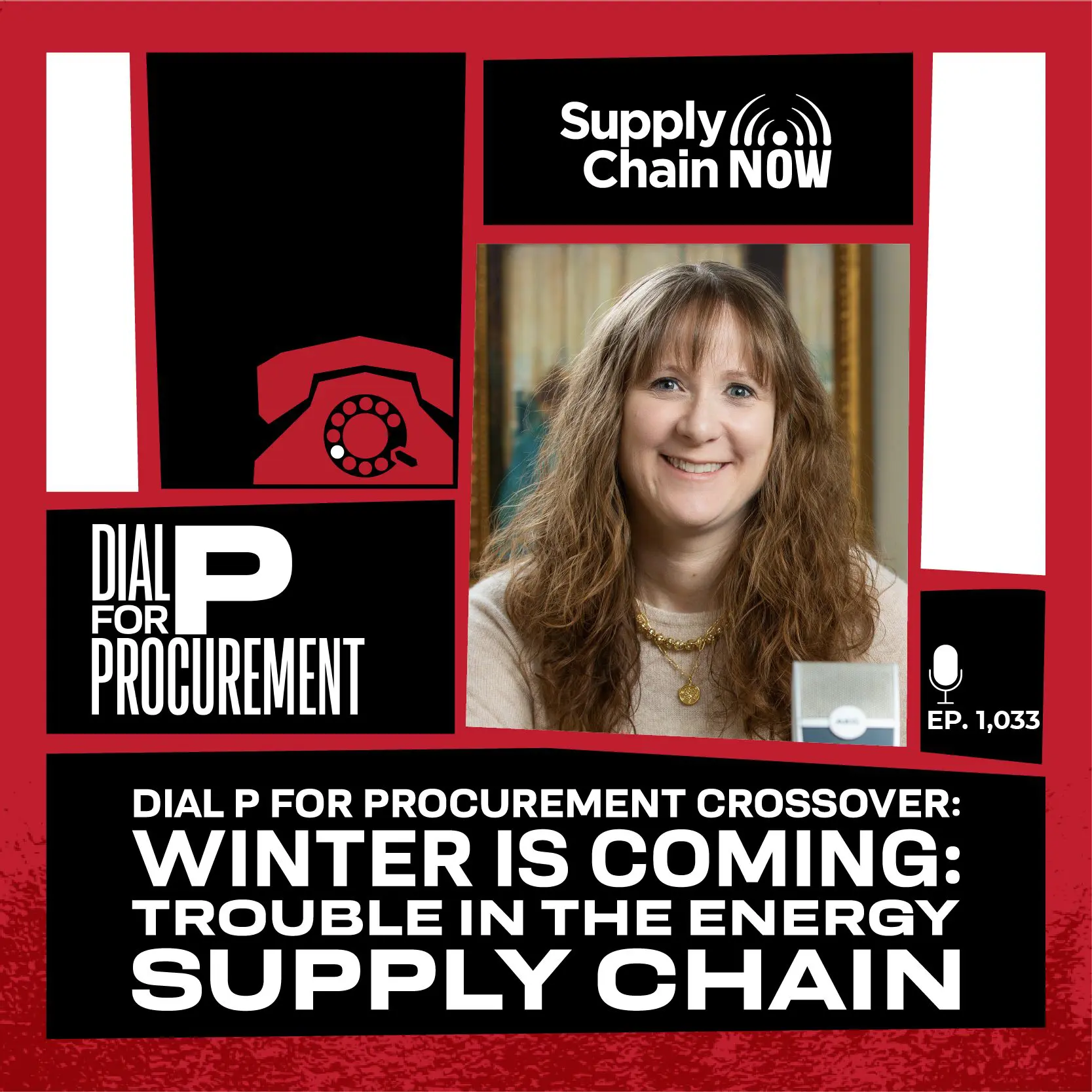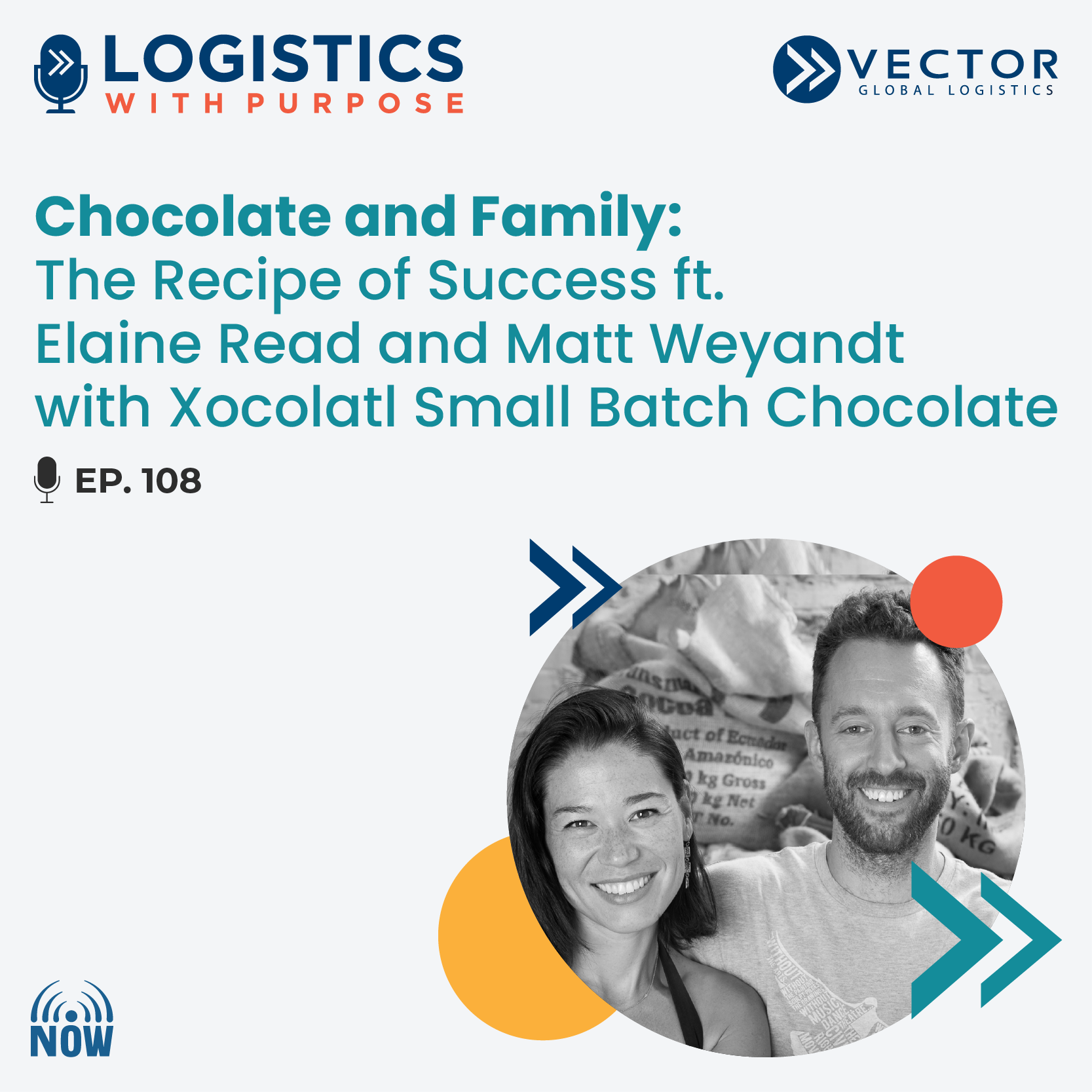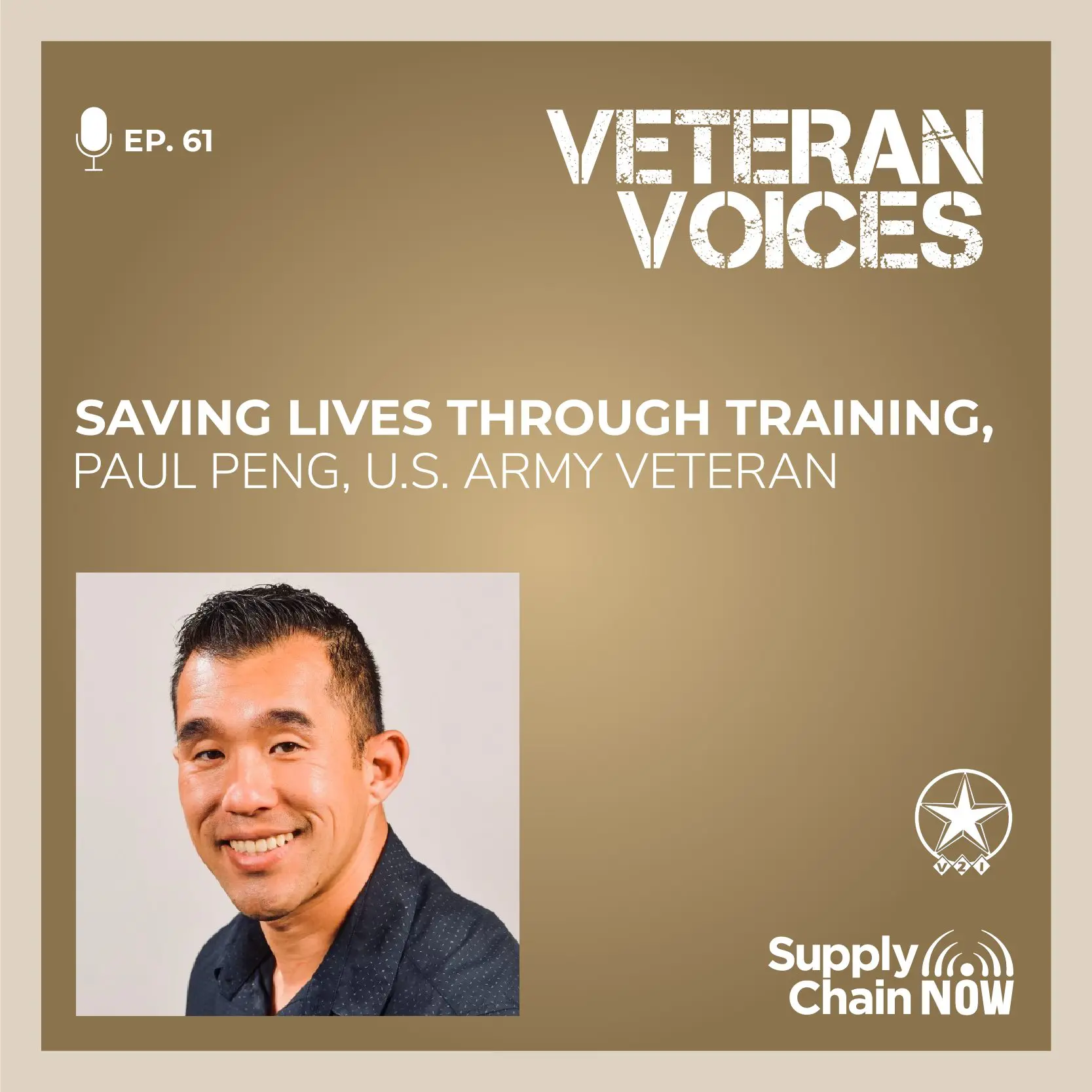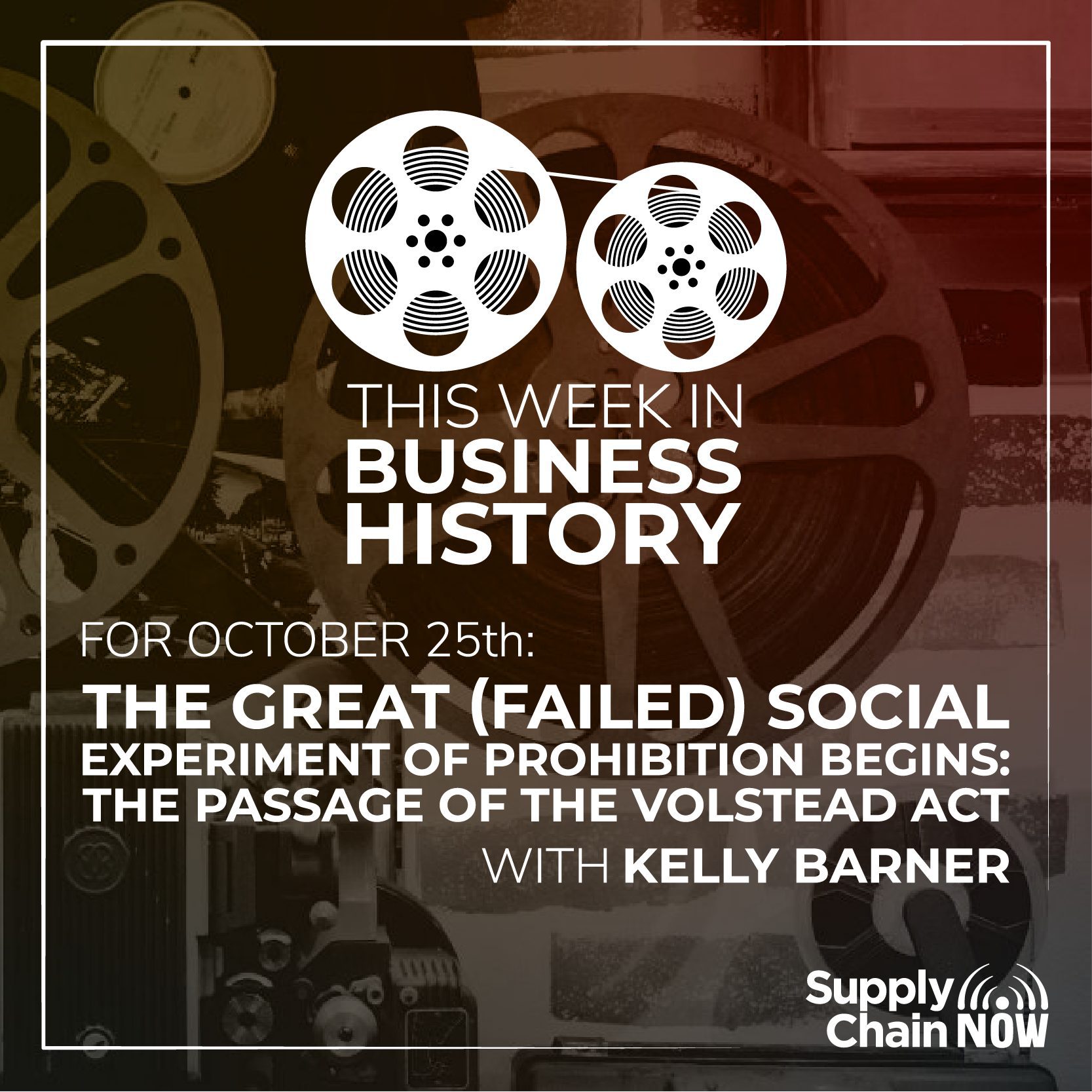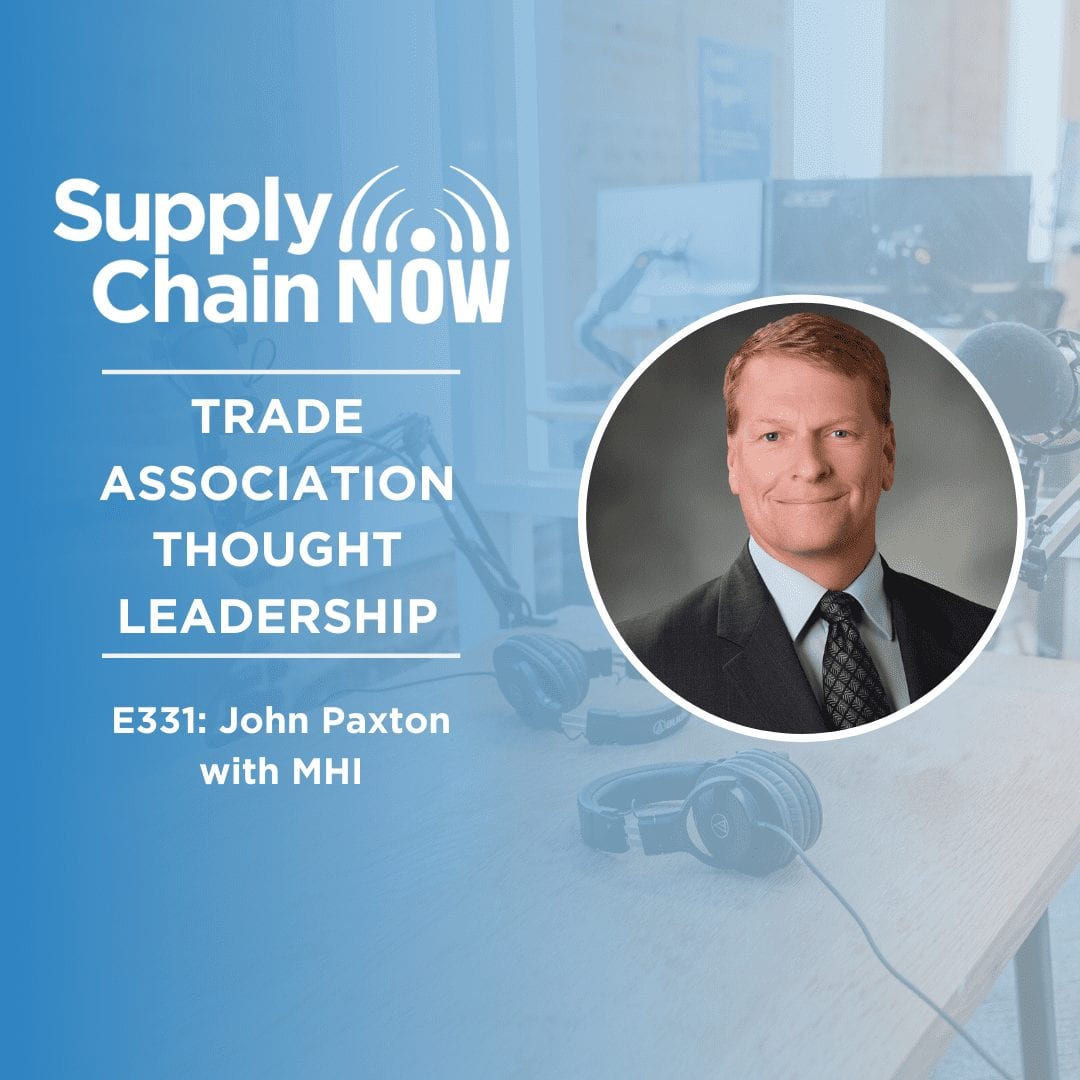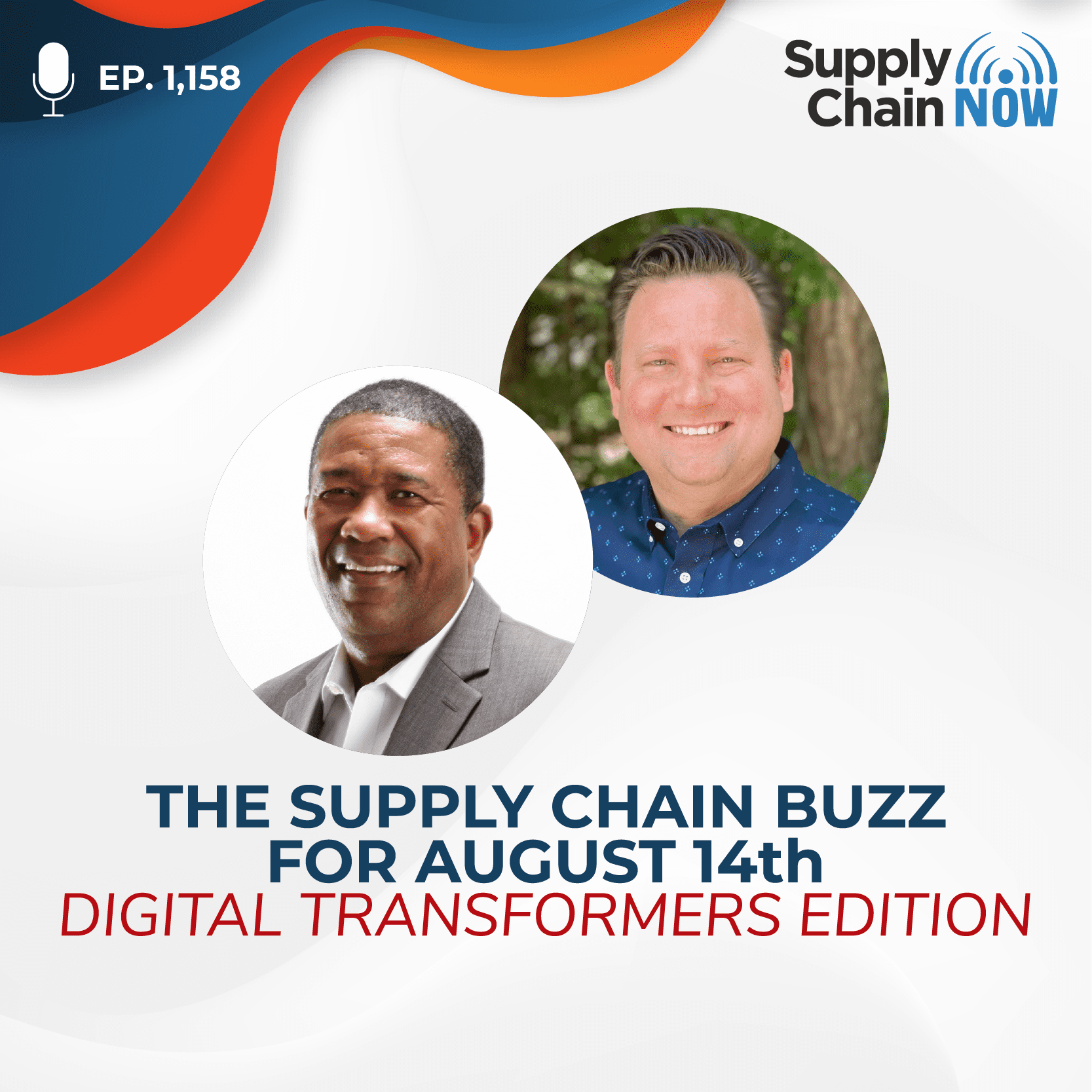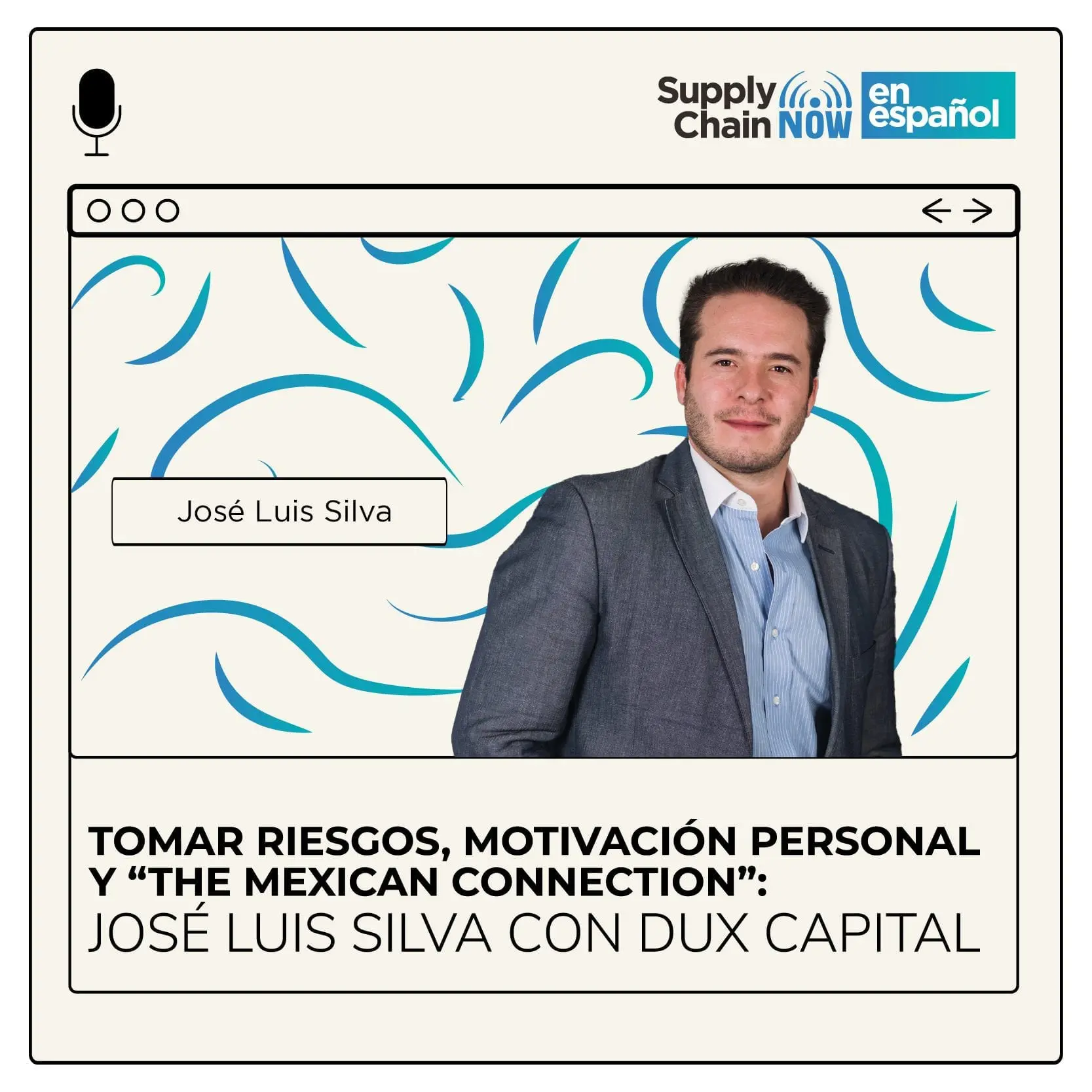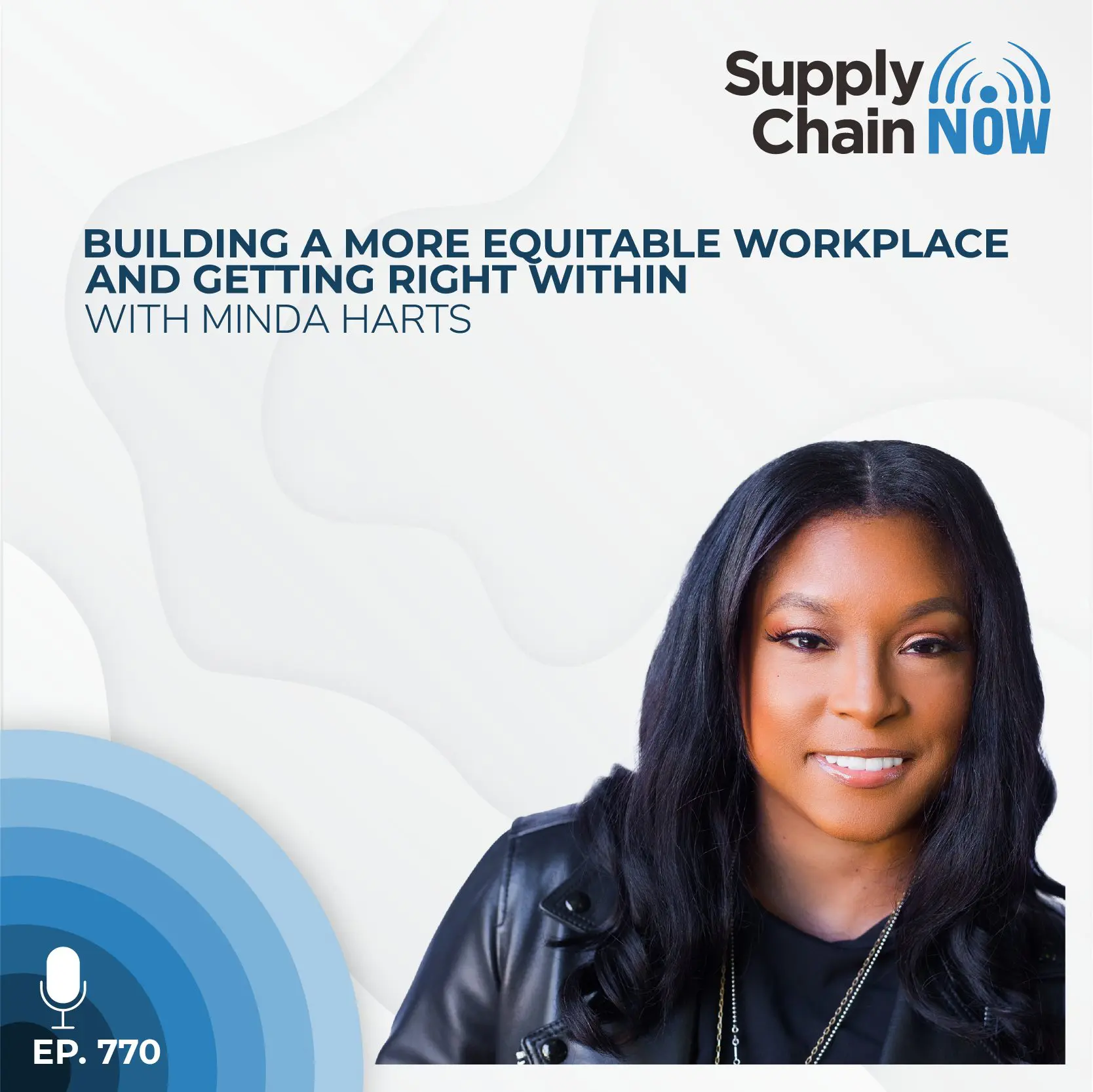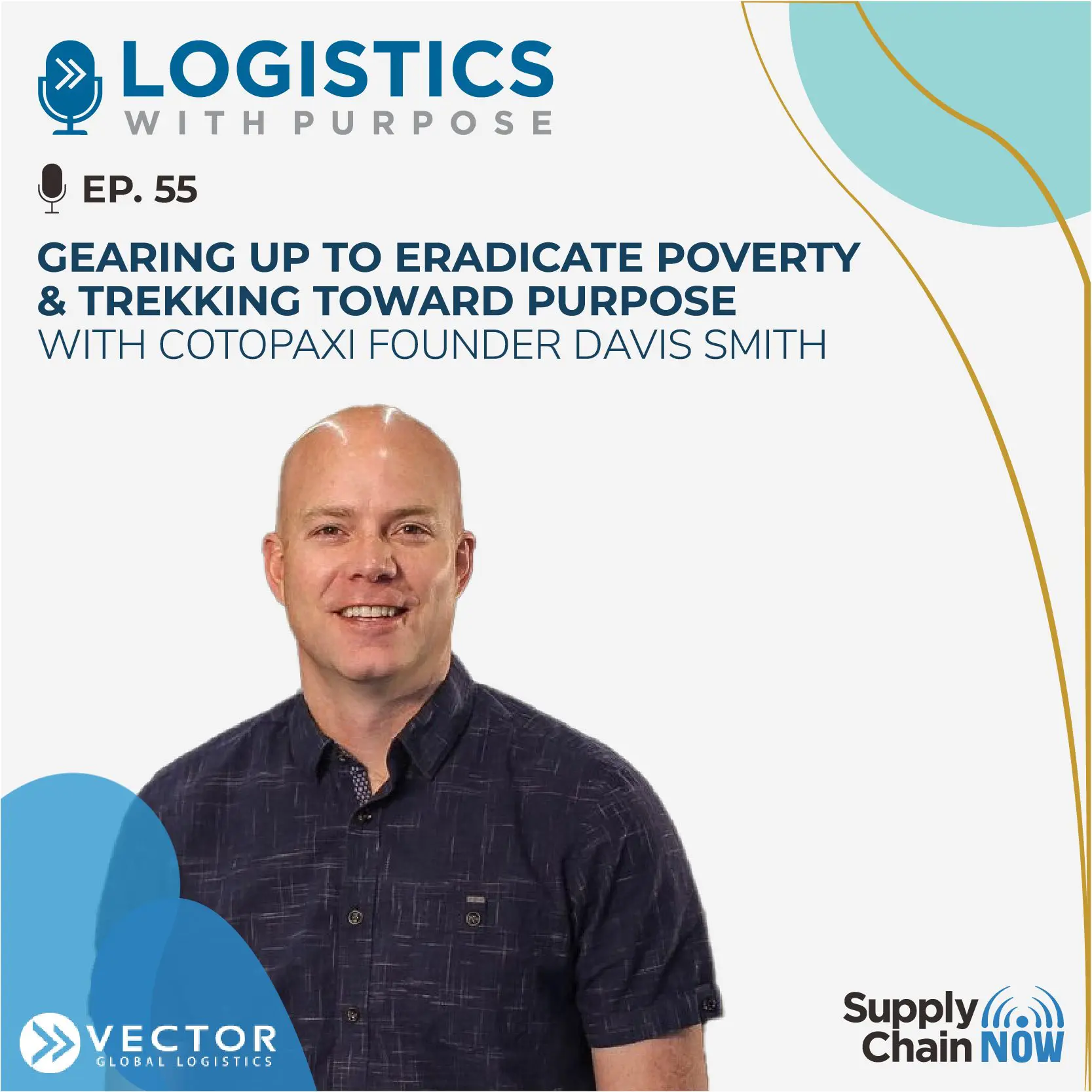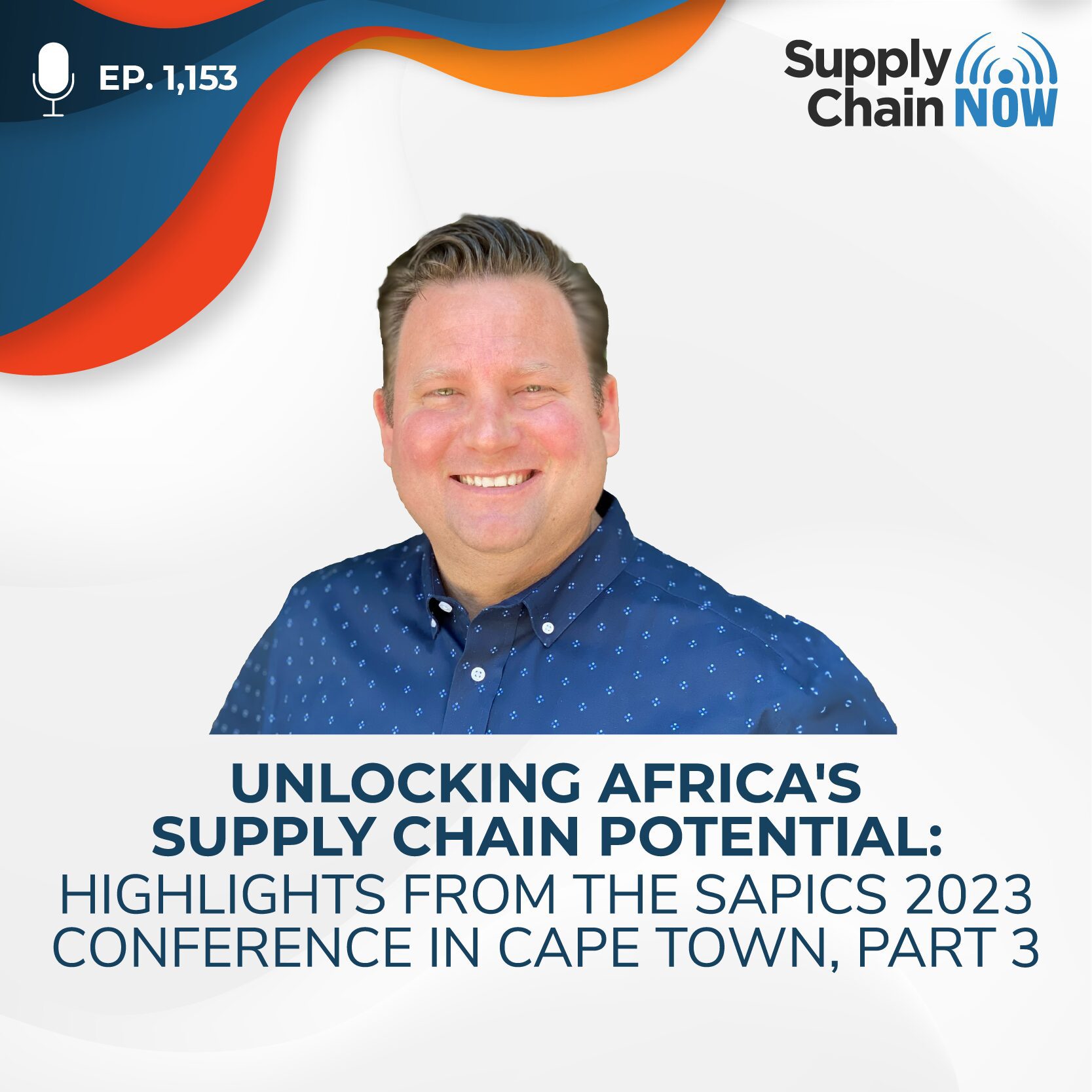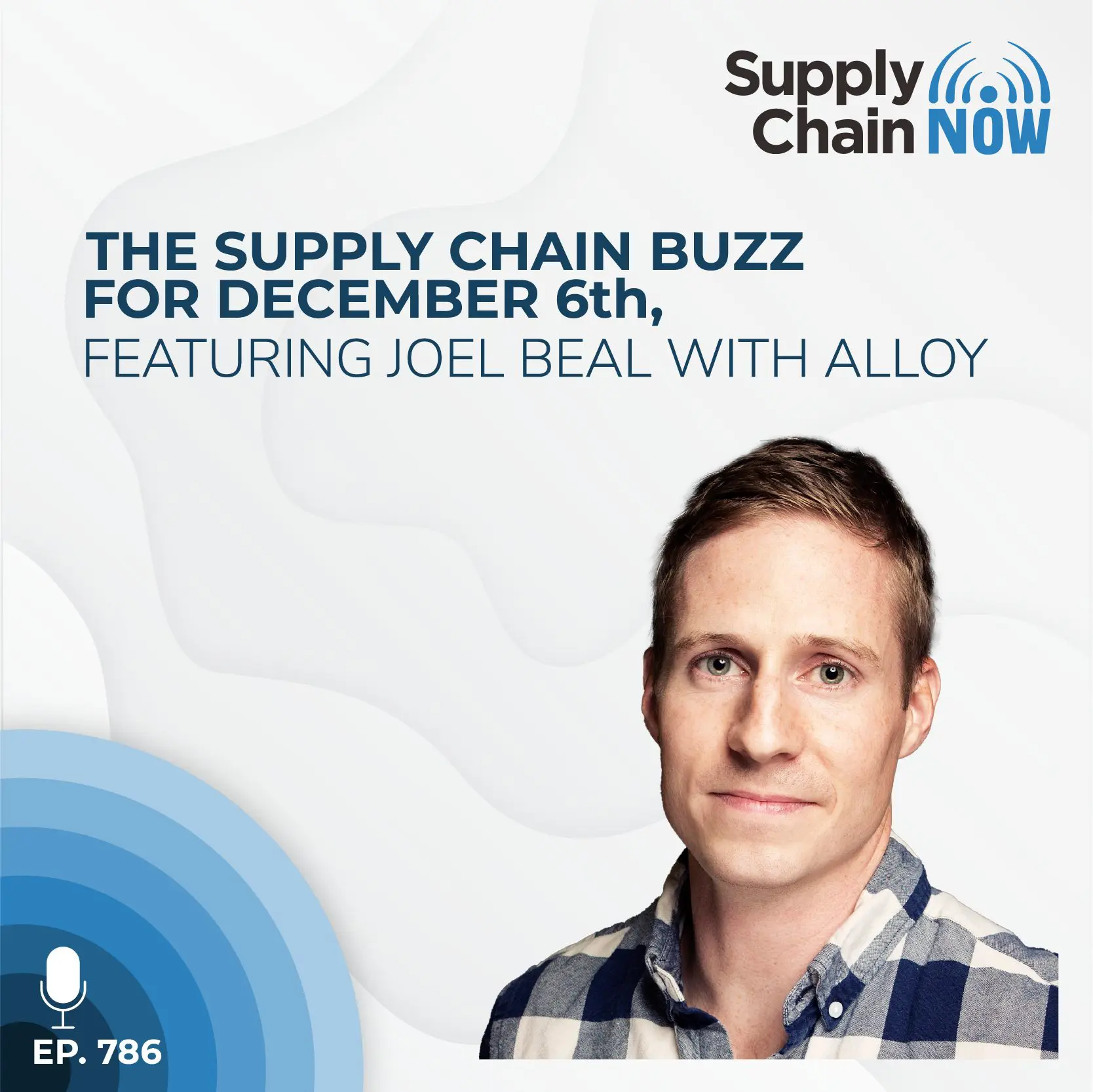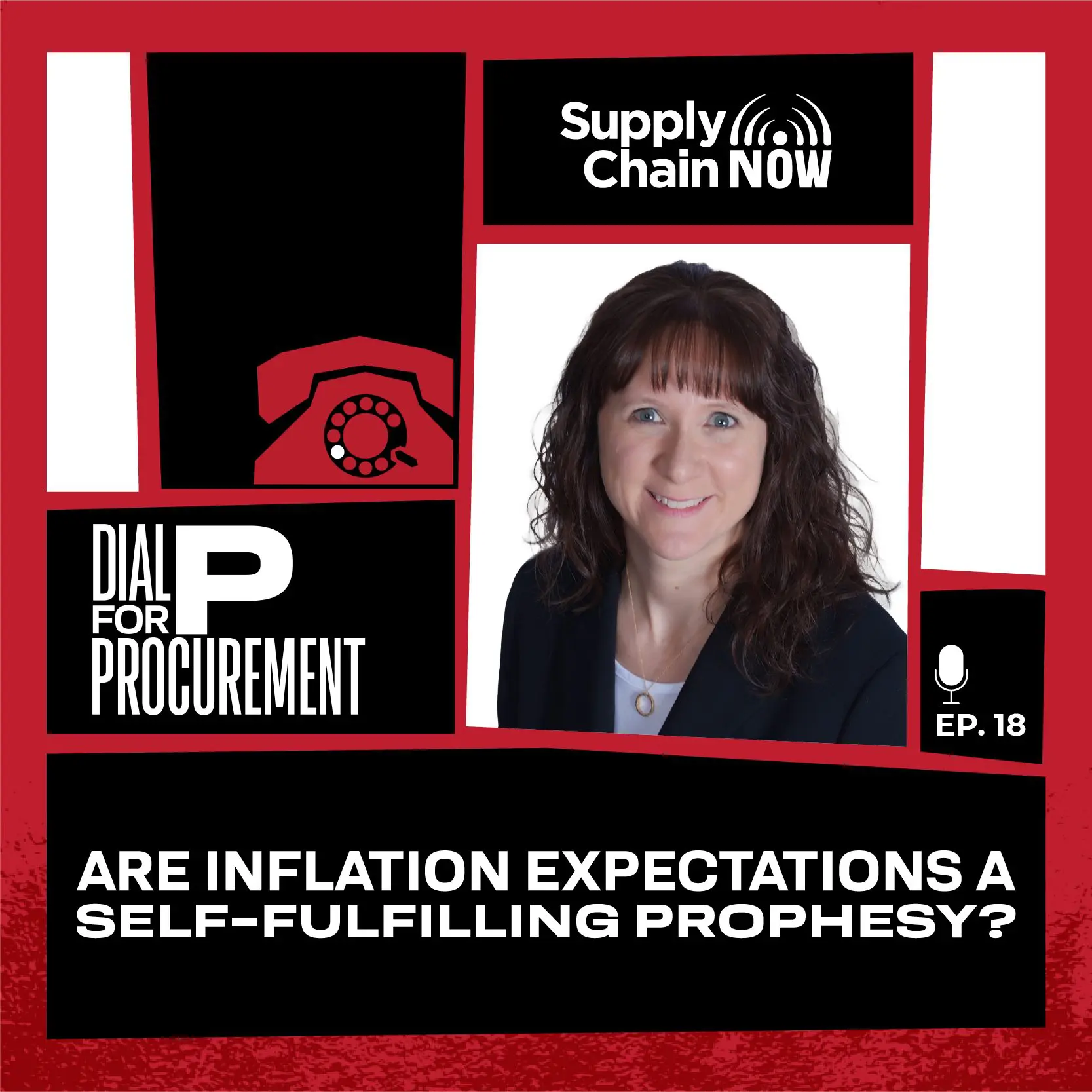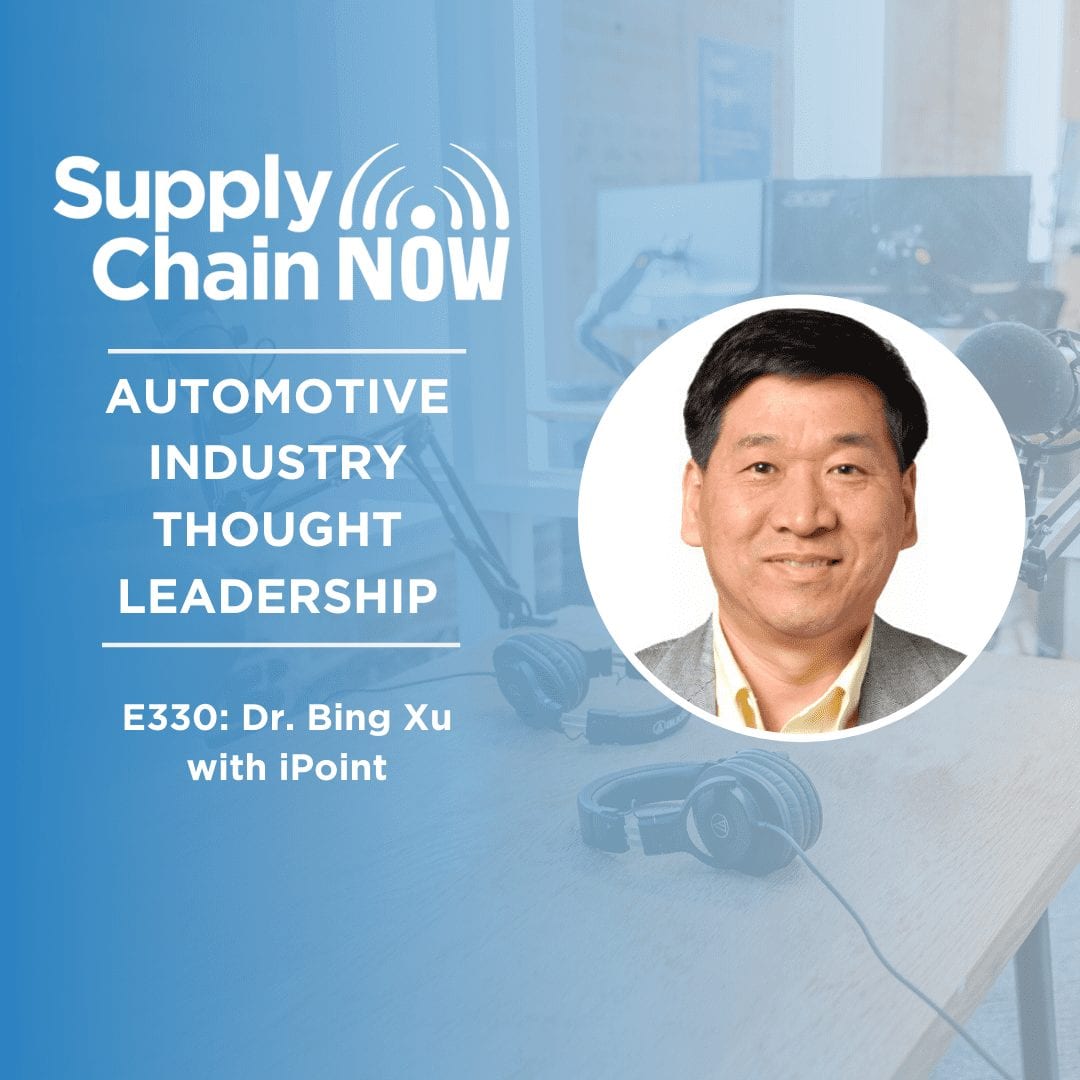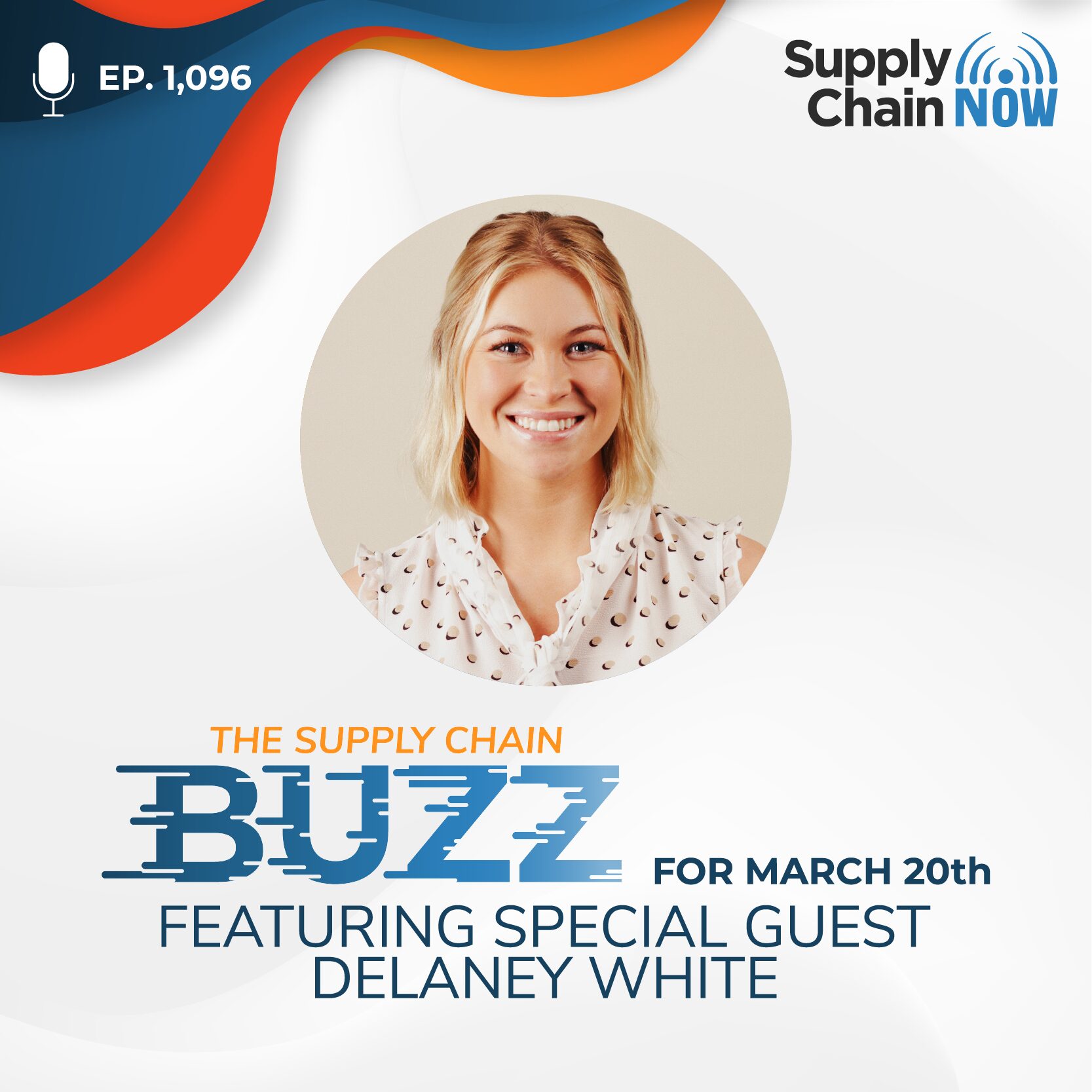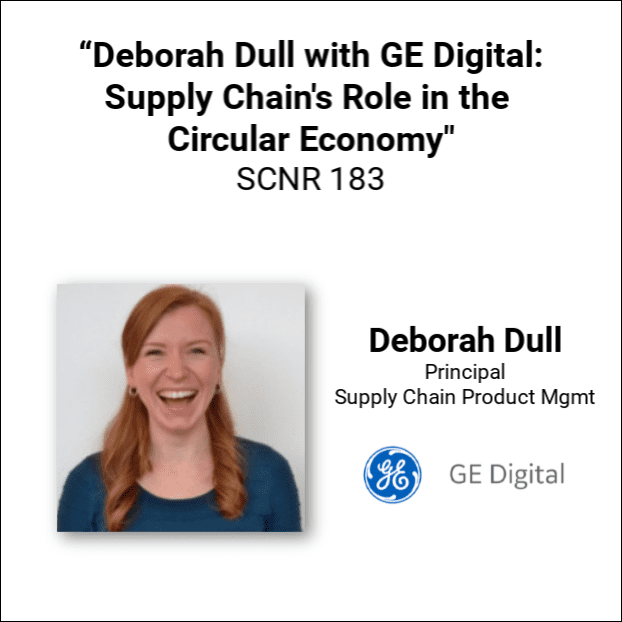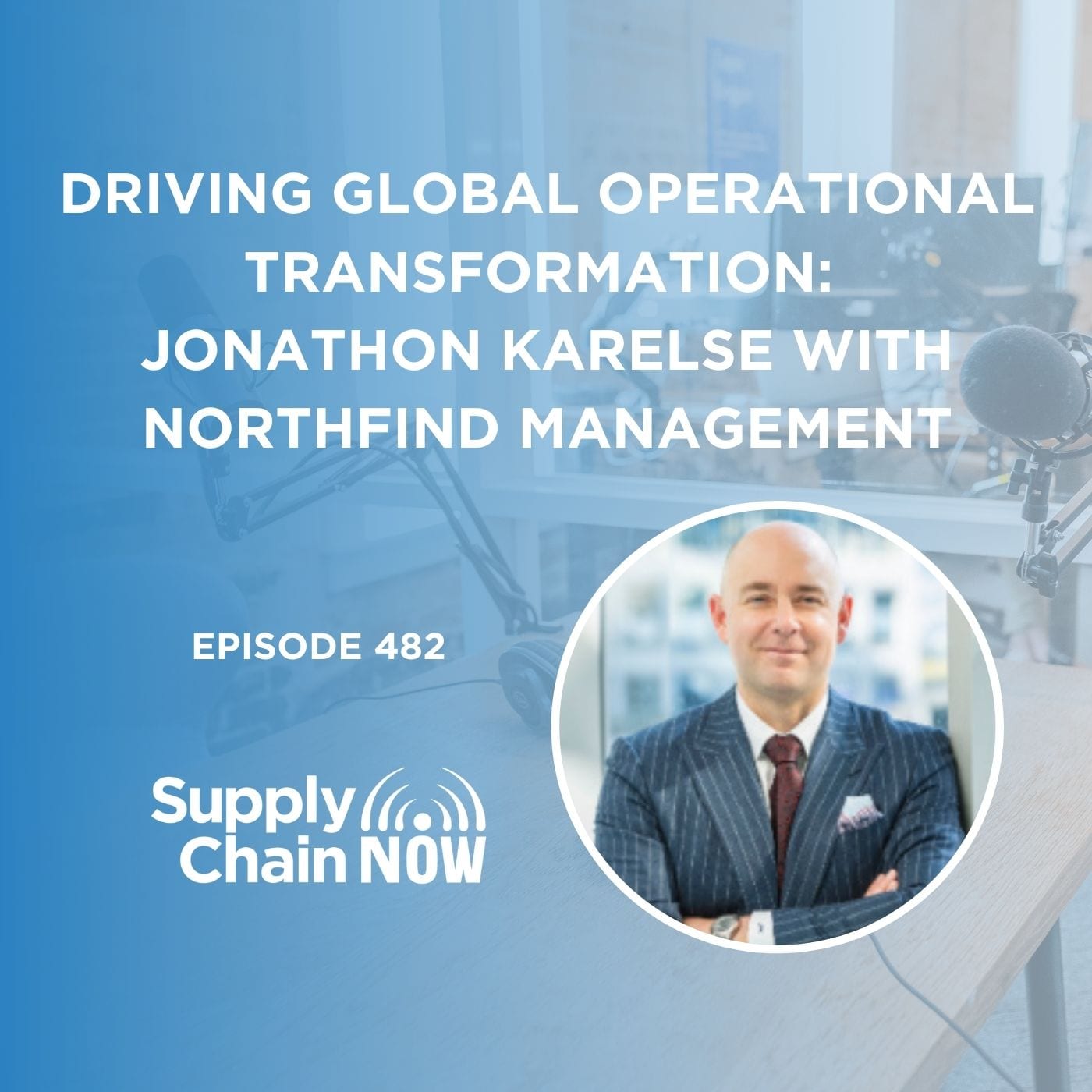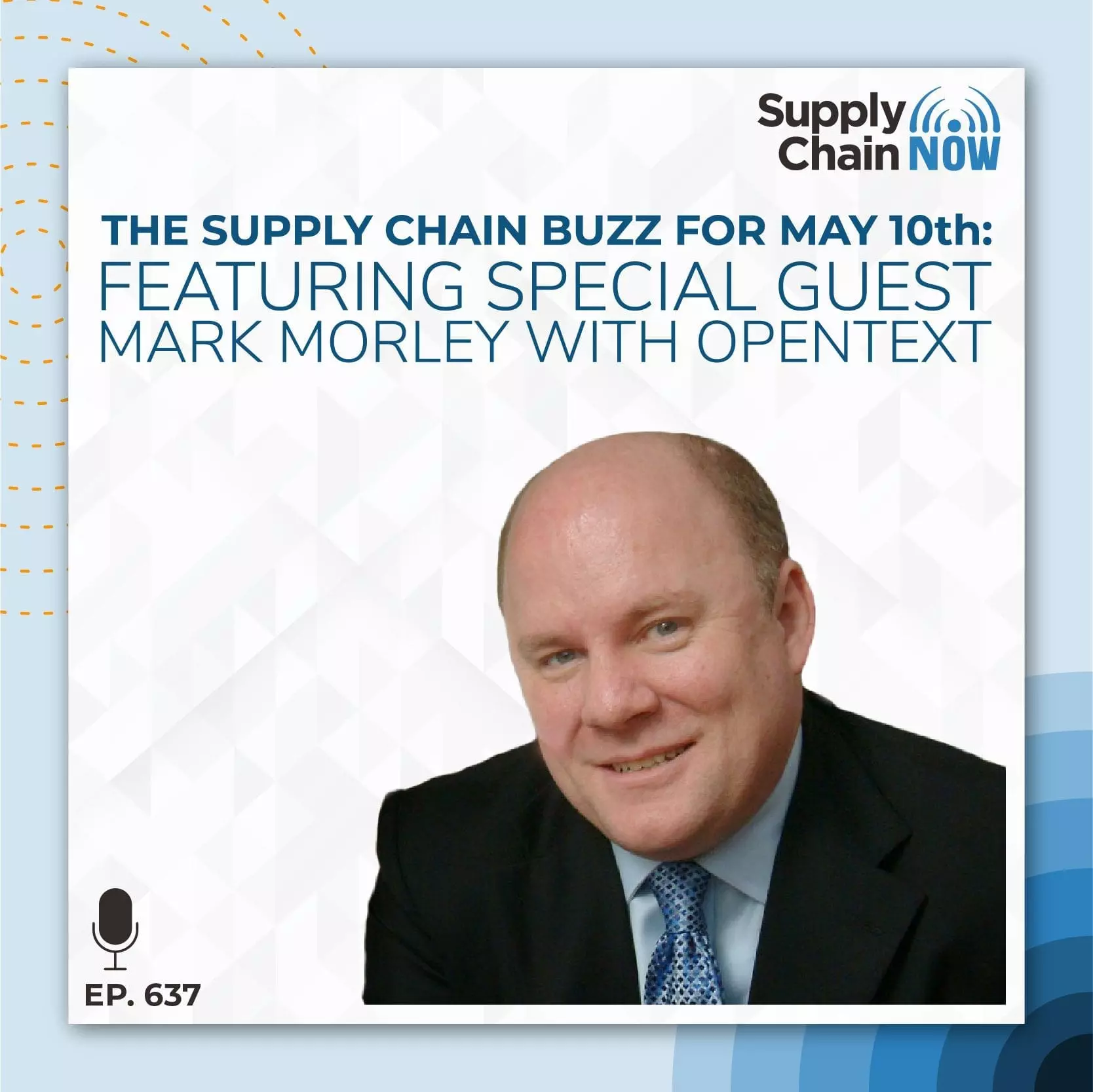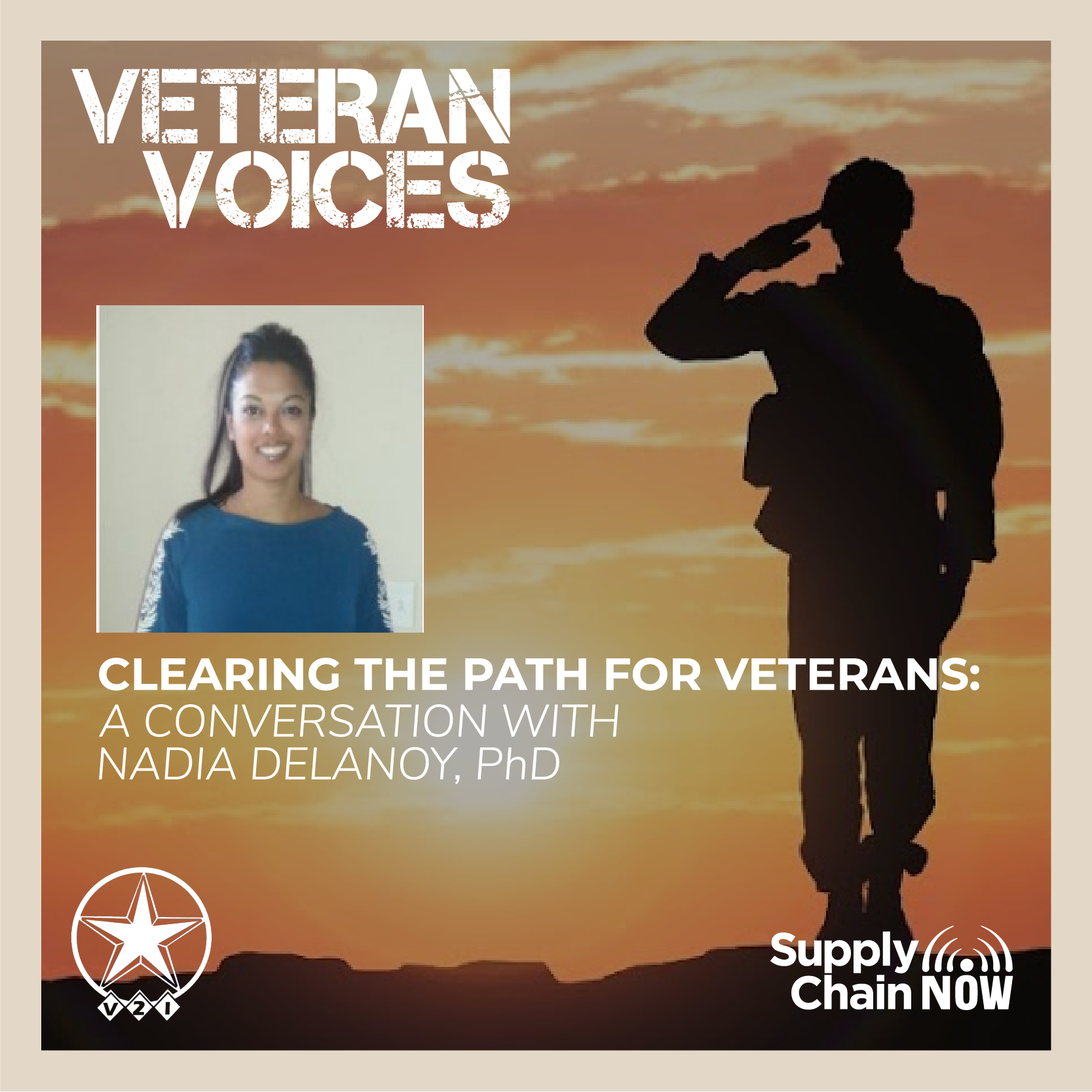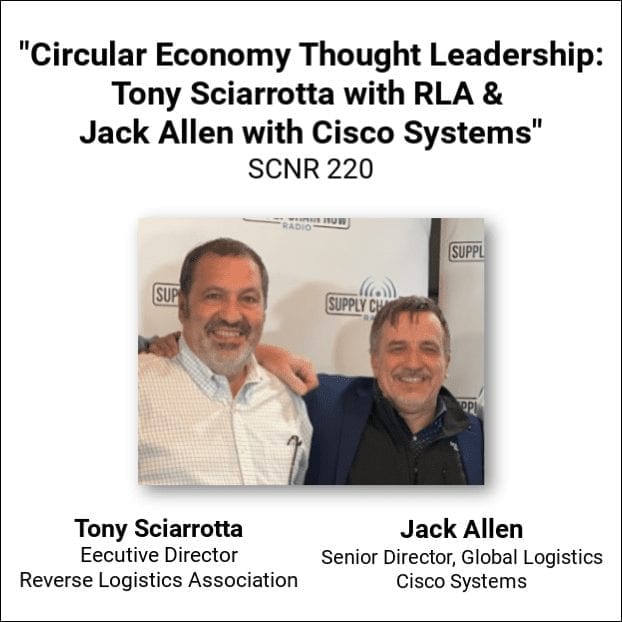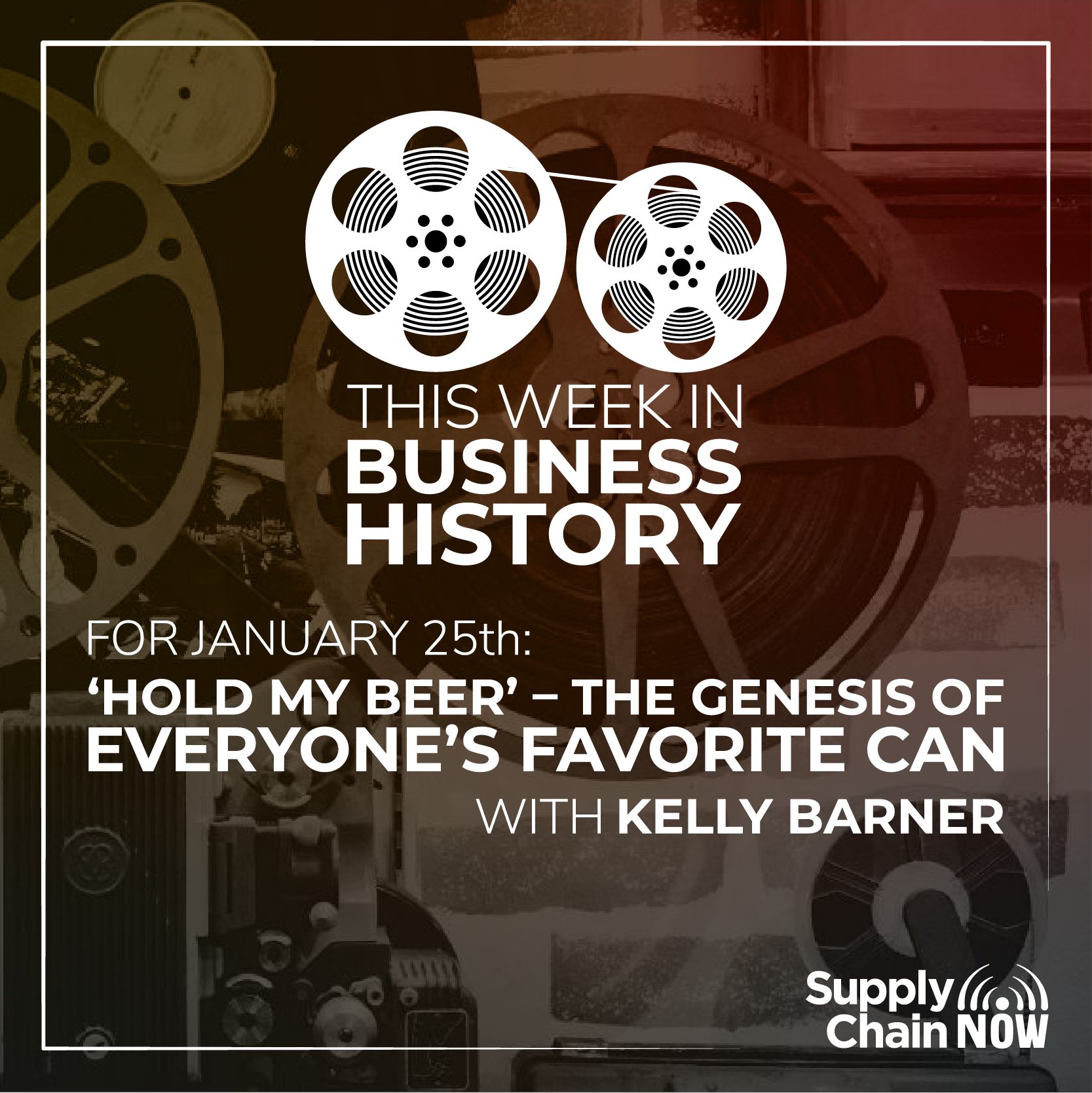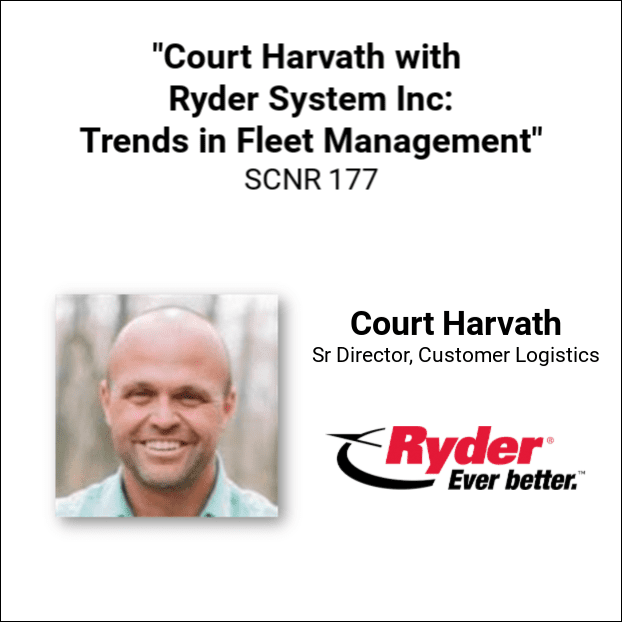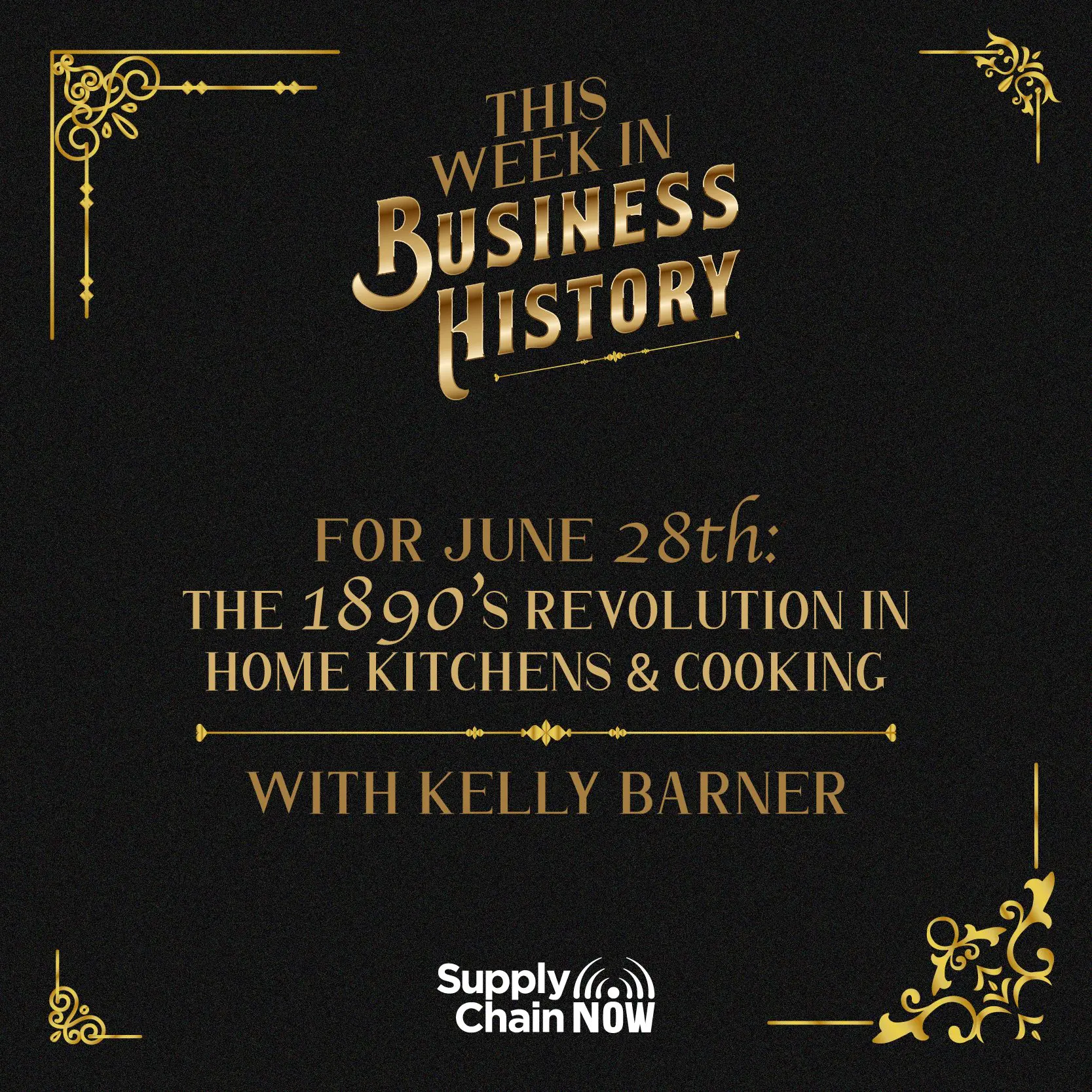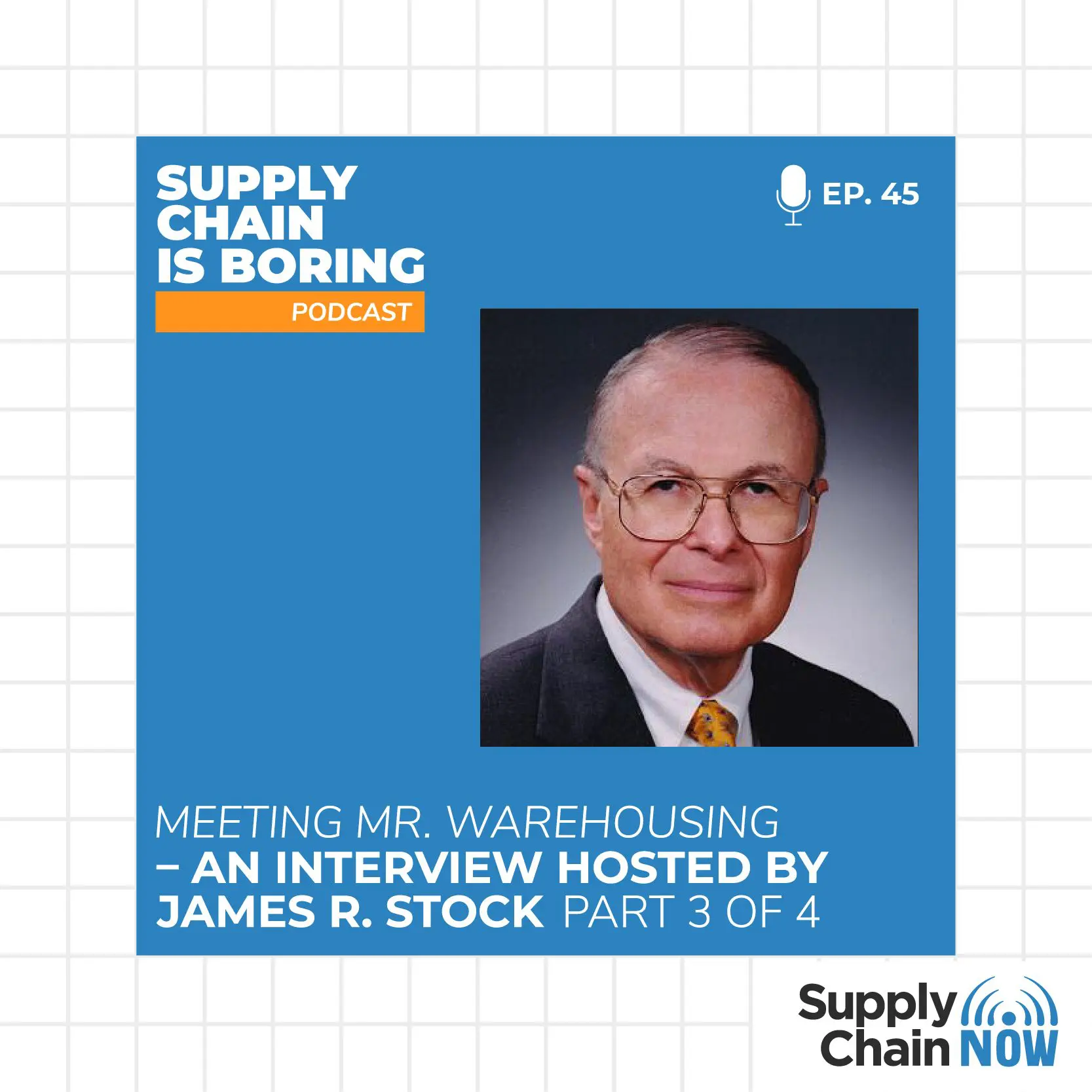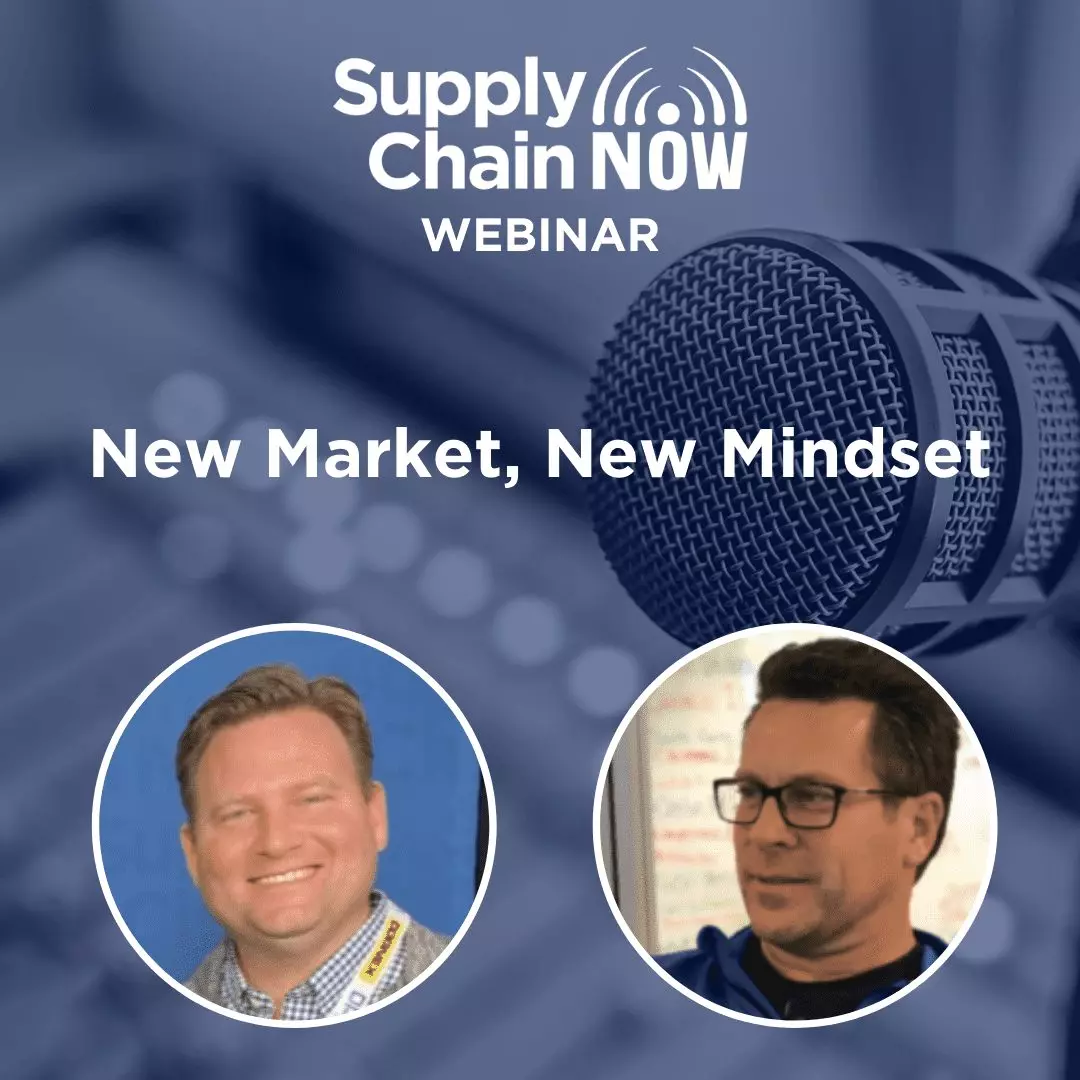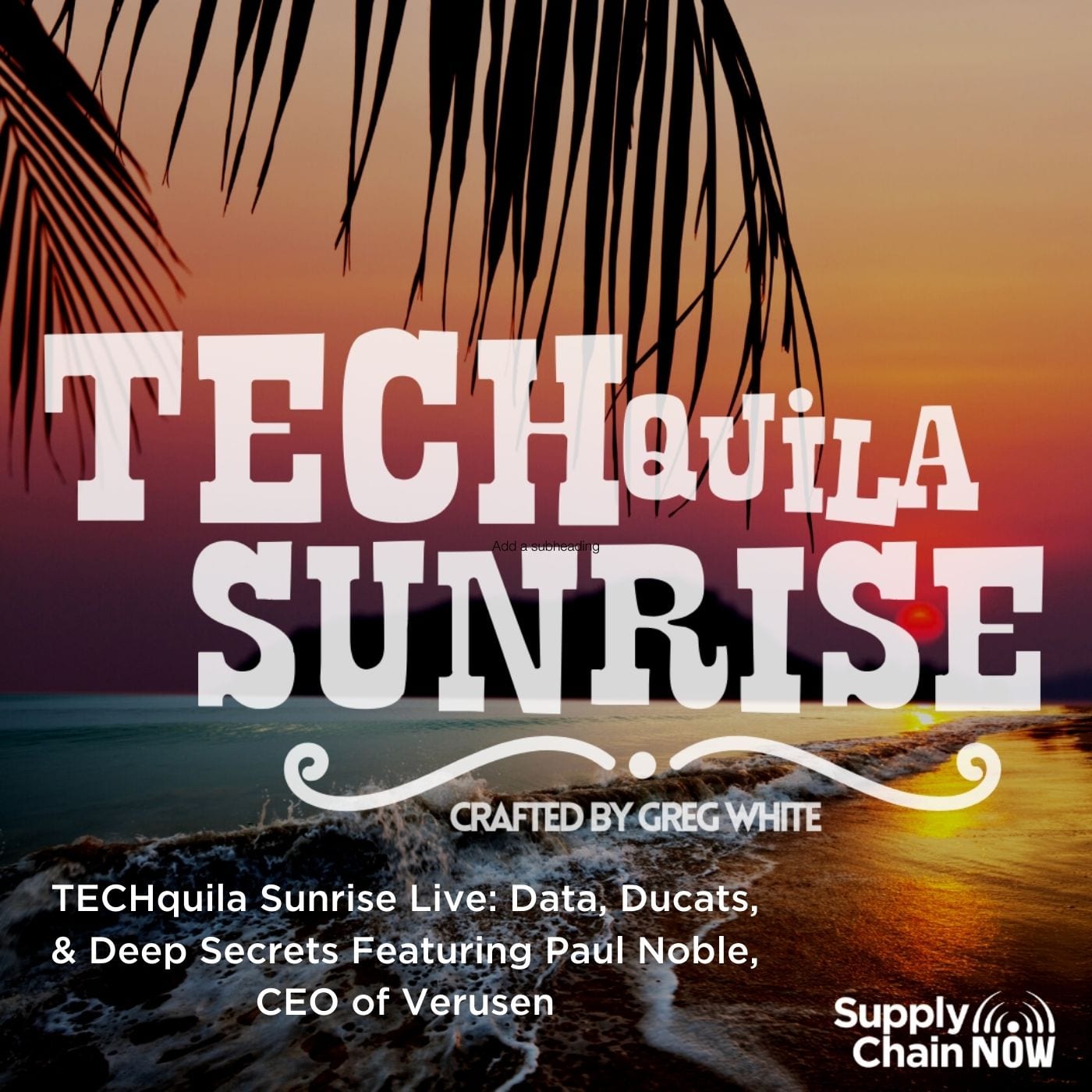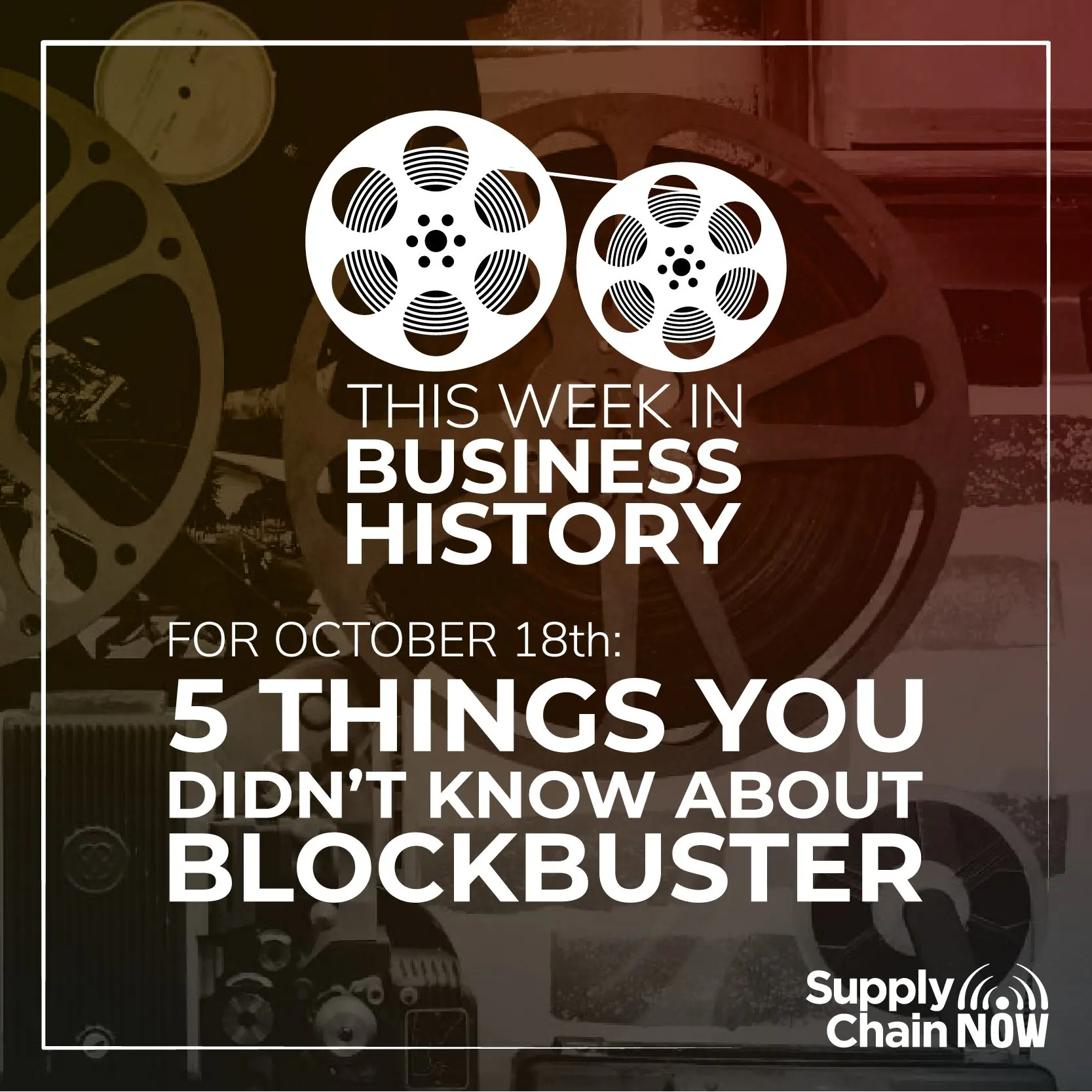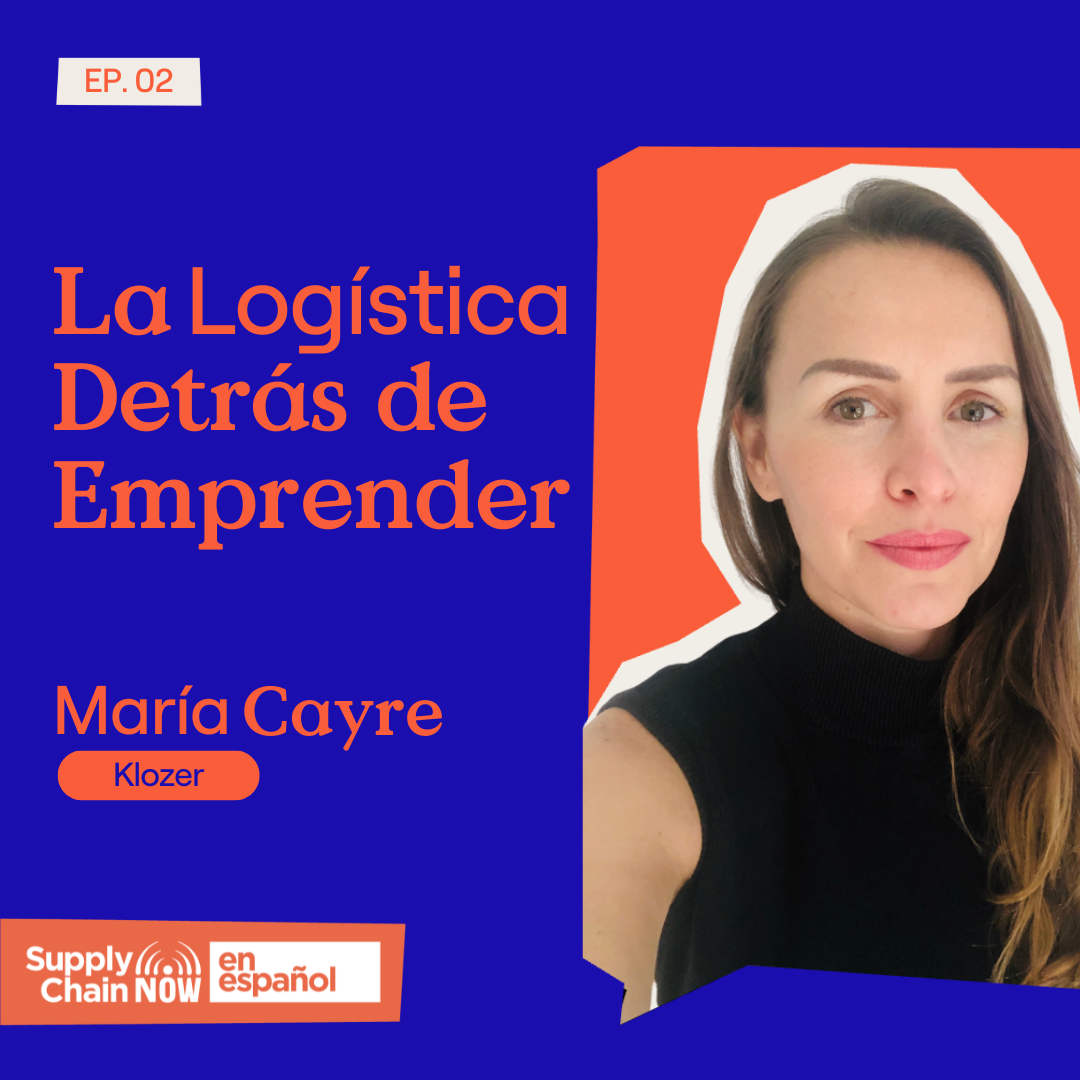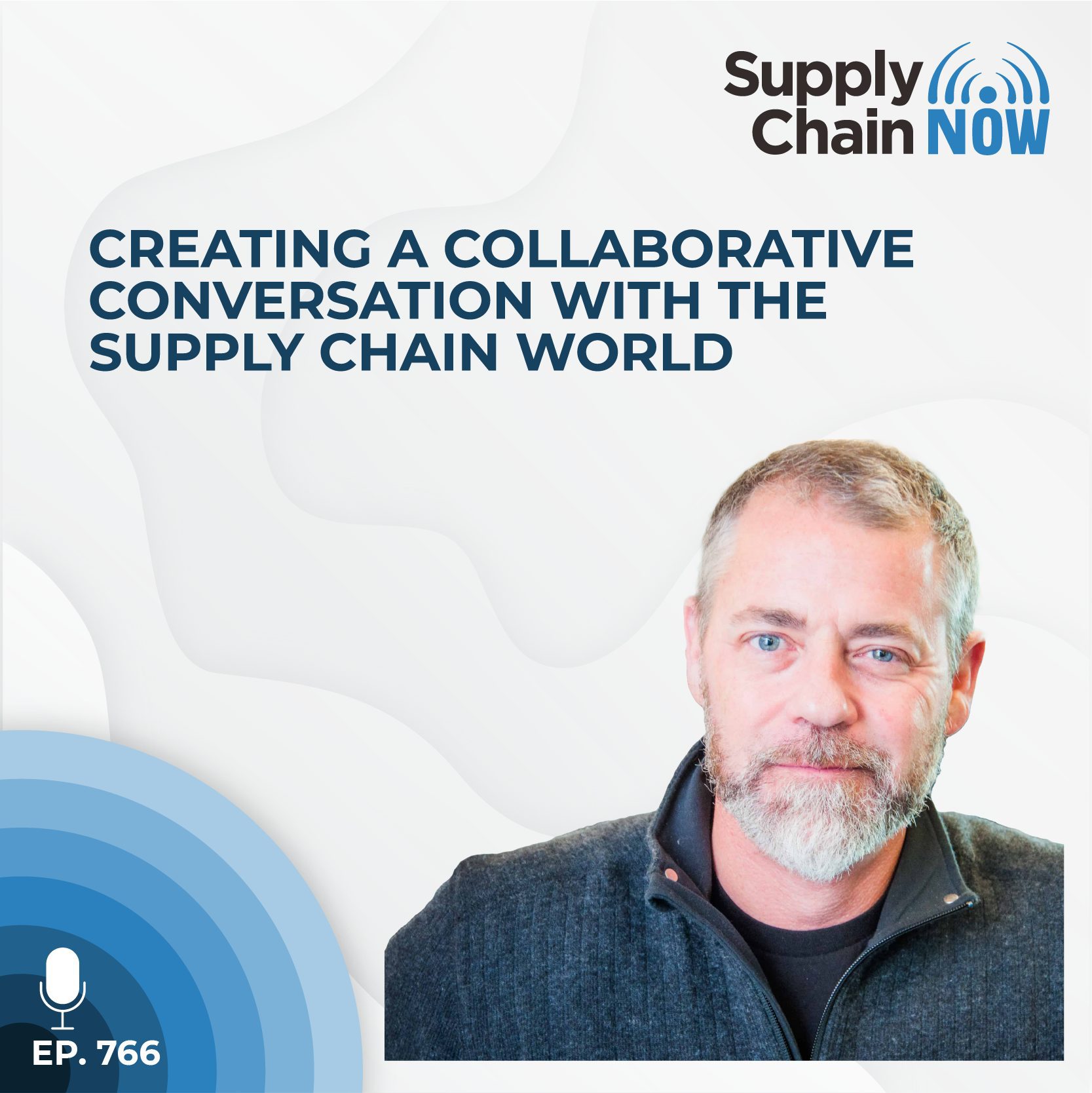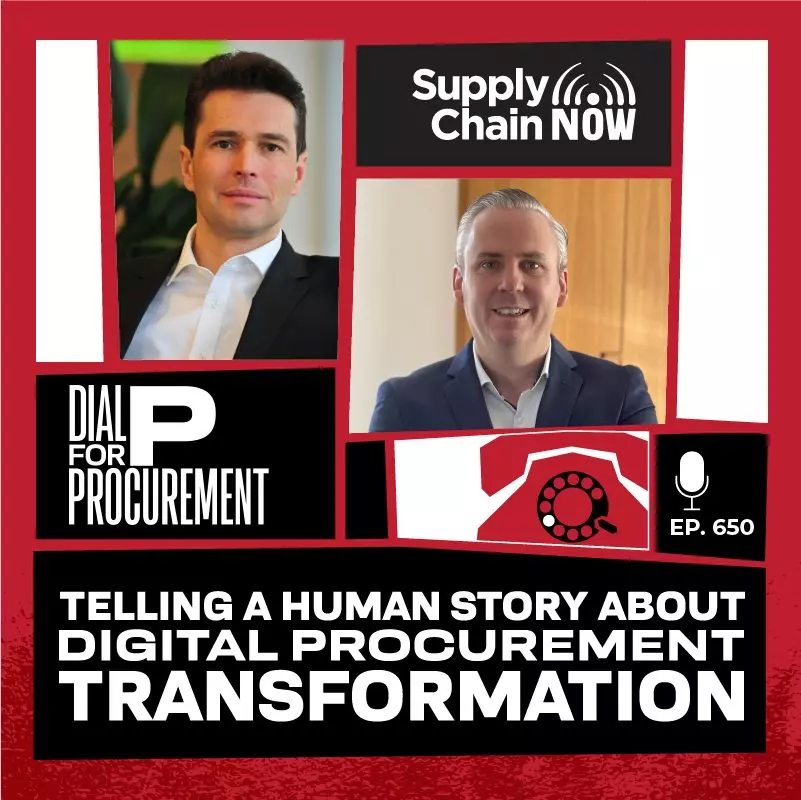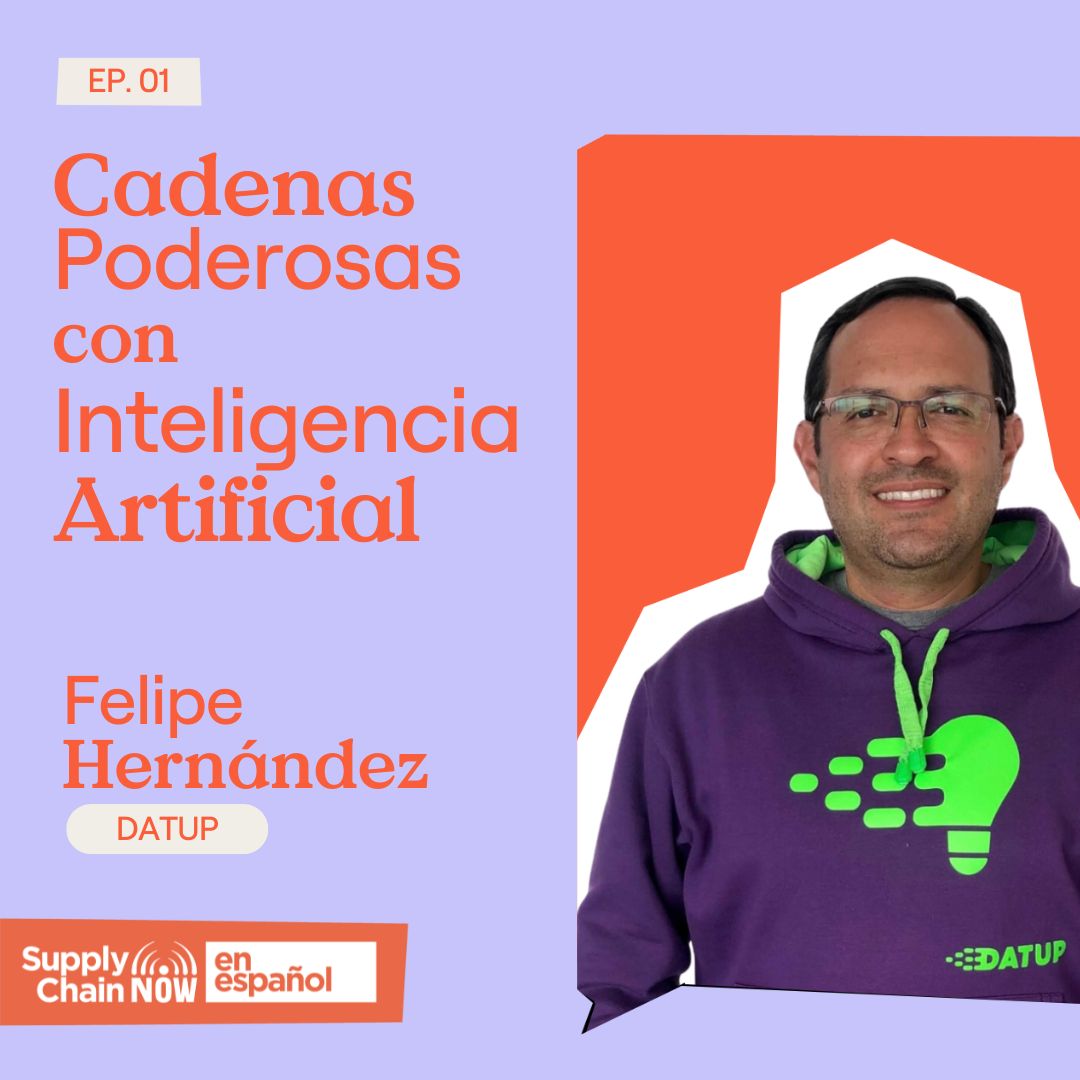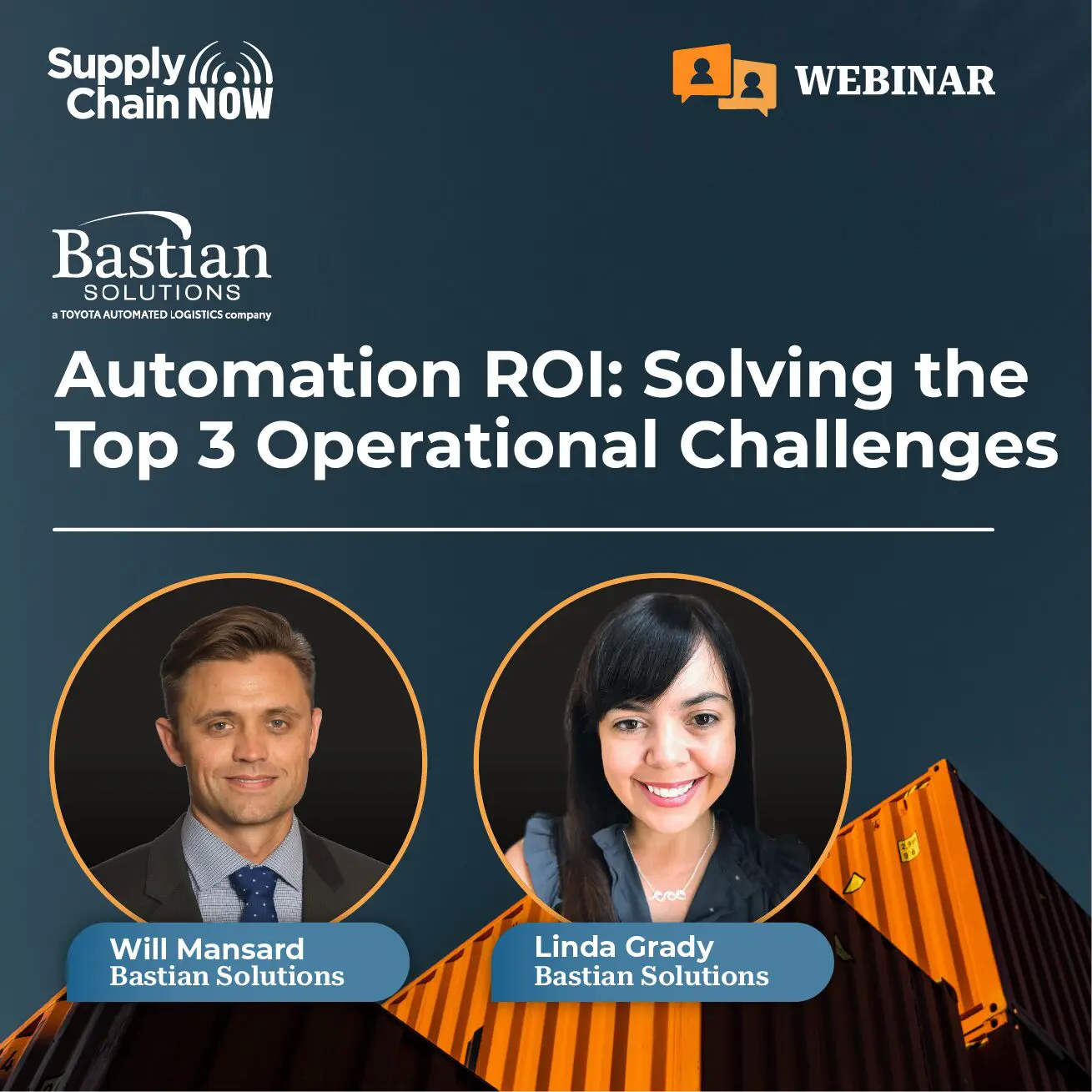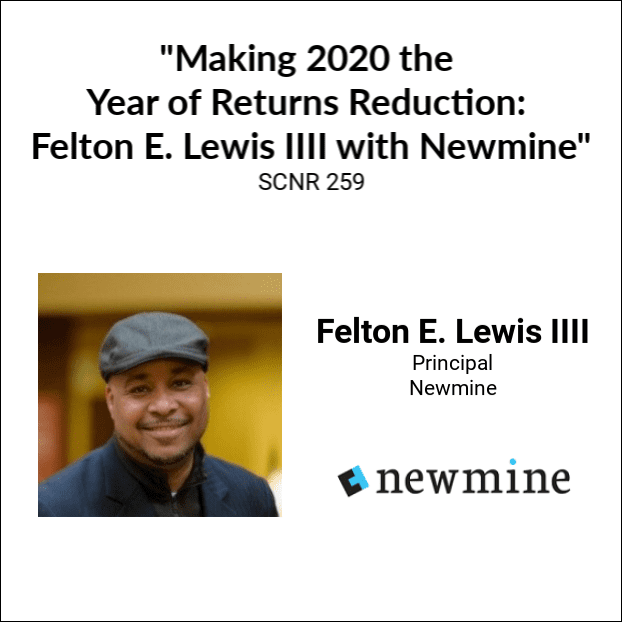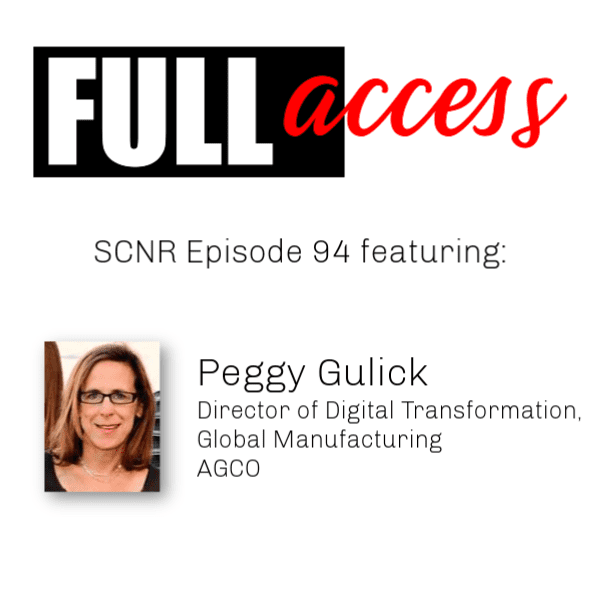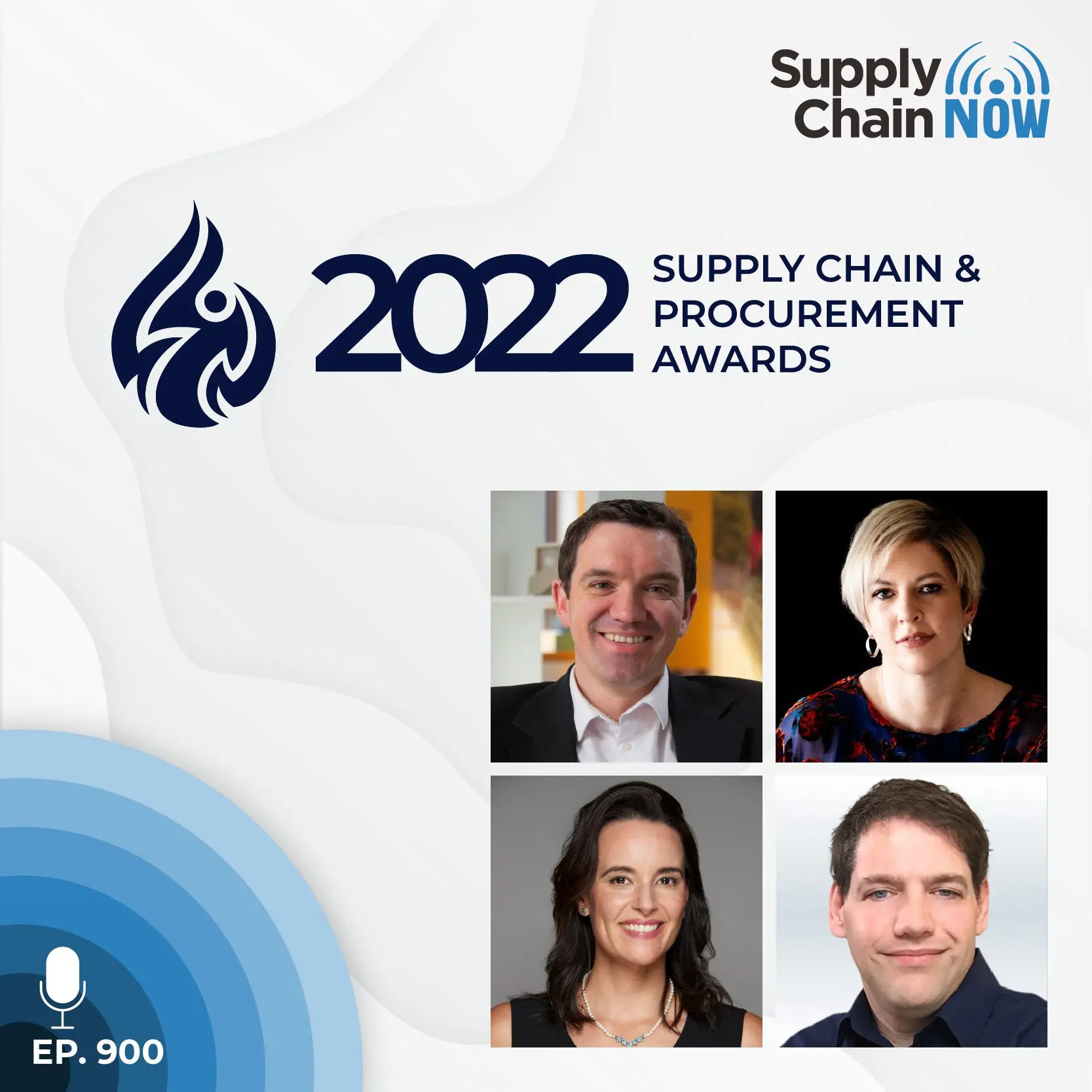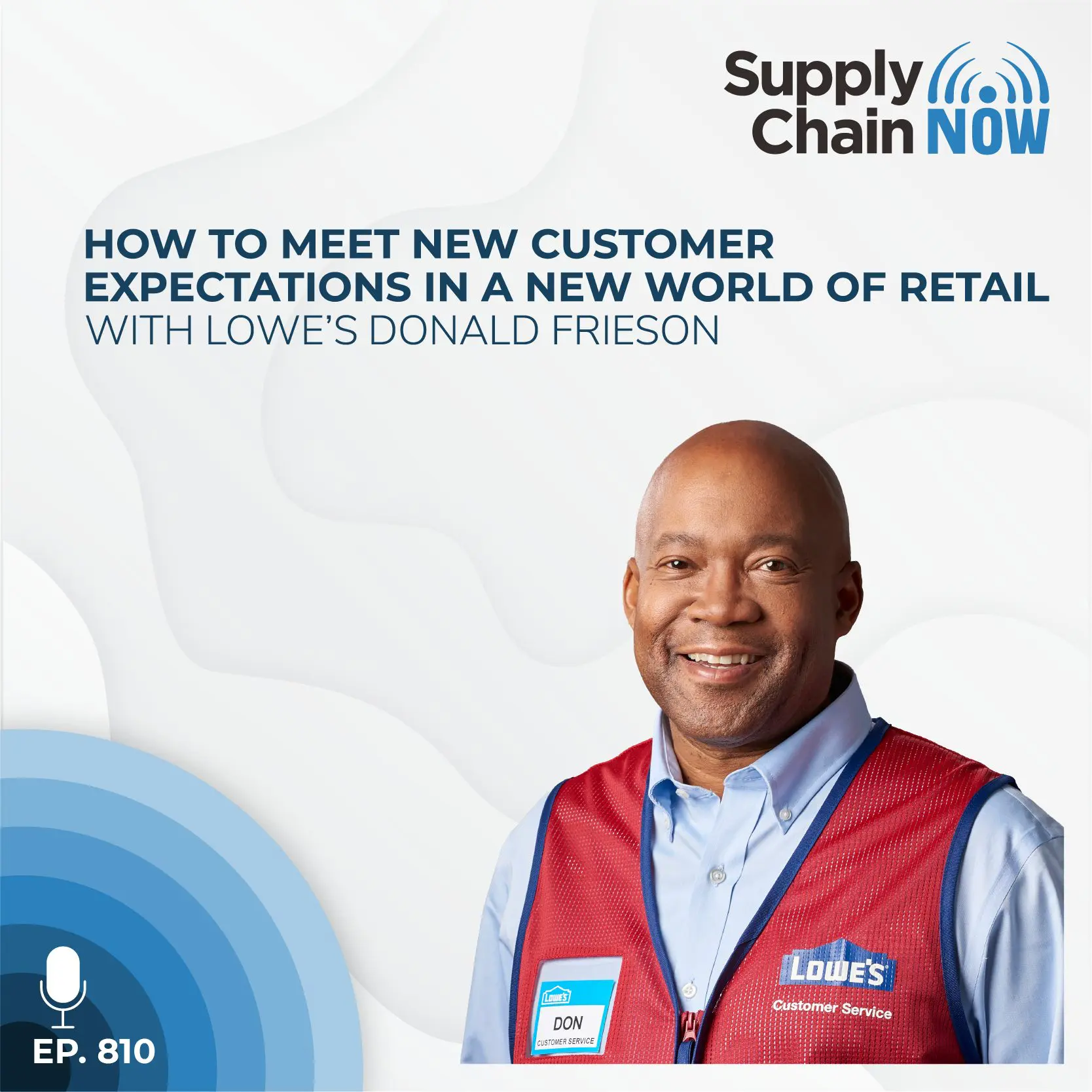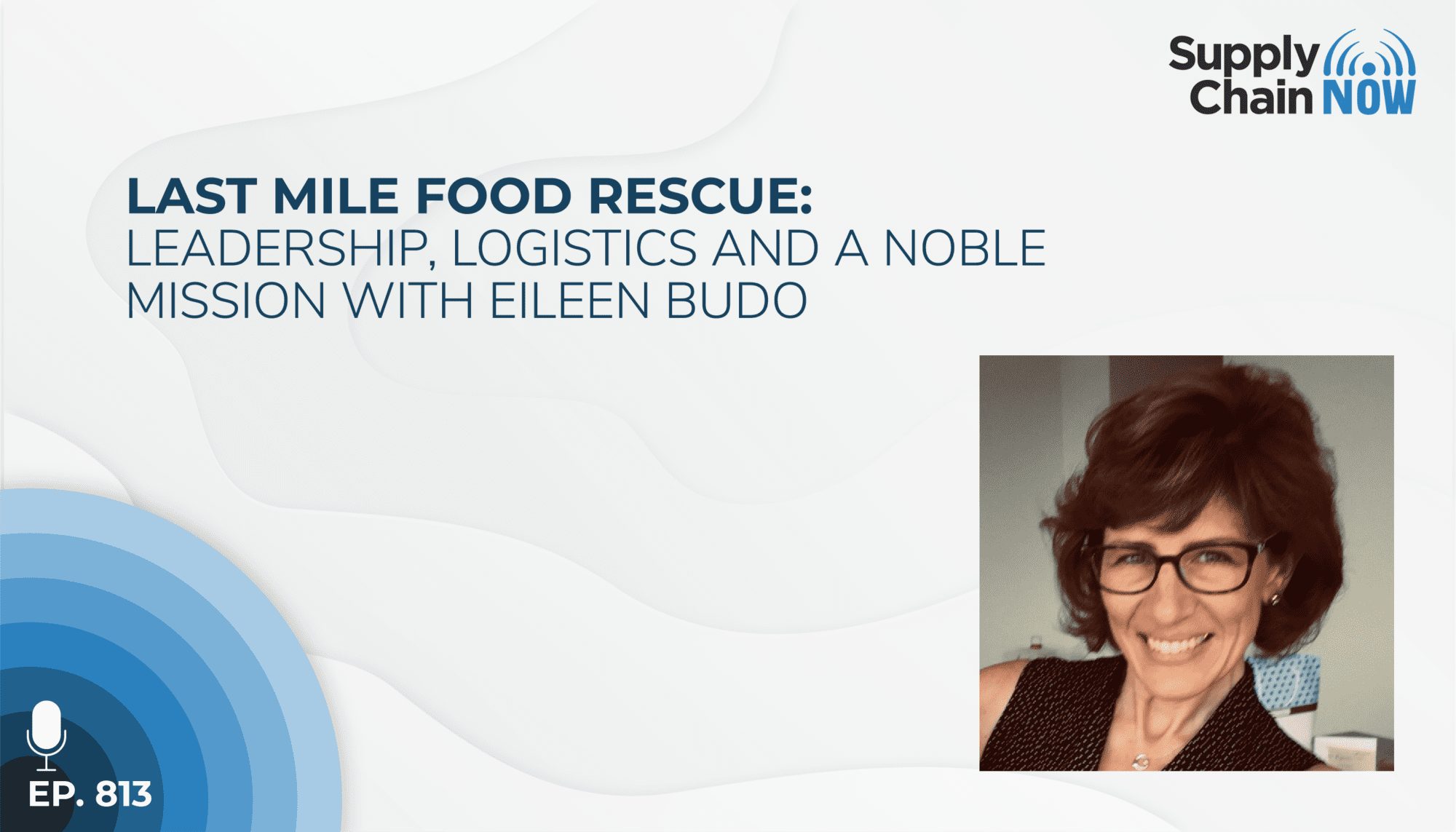
40% of all the food, the good, healthy food that we produce goes in the trash can. And we're not talking about banana peels. We're talking about good food that people could still take advantage of and lead a healthy life if they were to receive it.
- Eileen Budo, Chief Operating Officer of Last Mile Food Rescue
Episode Summary
Procurement and supply chain professionals are constantly solving problems. Sometimes they do so by gathering data, and other times they solve problems by finding the best supplier for a product or service in response to a business need. But when the problem to be solved seems directly connected to a supplier that is currently under contract, the stakes are particularly high. And the hardest part of resolving these problems often starts with a good hard look in the mirror.Eileen Budo is the Chief Operating Officer of Last Mile Food Rescue, a Cincinnati-based organization that connects food donors with nonprofits to fight food waste and address food insecurity at the same time. They are essentially a logistics organization. They figure out where food waste is generated and make agreements to receive donations that a 100% volunteer staff works to put in the hands of agencies that can distribute the food to people who need it.In this interview, Eileen speaks with Scott Luton and special guest host Ray Attiyah, Founder and Chief Innovation Officer at Definity Partners, about:• How her time in the air force prepared her for a career in corporate procurement• Why collaborative relationships with key suppliers are critical for any company trying to operate effectively in todays’ challenging environment• The operational planning that goes into making sure well-intentioned humanitarian efforts succeed for donors as well as recipients
Episode Transcript
Intro/Outro (00:00:03):
Welcome to supply chain. Now the voice of global supply chain supply chain now focuses on the best in the business for our worldwide audience, the people, the technologies, the best practices, and today’s critical issues. The challenges and opportunities stay tuned to hear from those making global business happen right here on supply chain now.
Scott Luton (00:00:32):
Hey, good morning, everybody. Scott Luton and special guest host Ray Attiyah here with you on supply chain. Now, welcome to today’s show Ray, how are we doing?
Ray Attiyah (00:00:42):
I am excellent, uh, restless, but excited.
Scott Luton (00:00:46):
I know you are. And, and for good reason, uh, uh, we appreciate you kind of connecting us with today’s guest and the story and the whole mission behind it. And I know it’s, it’s one of personal interests for you, right?
Ray Attiyah (00:00:58):
It is. It is, uh, uh, you know, as we talk about on our last podcast, you know, uh, I surprisingly had the sale of three startups in a matter of a year. And then I’m like, where do I spend my time giving back? And, uh, last mile food rescue has been an amazing, uh, place to volunteer.
Scott Luton (00:01:17):
So now that you’ve let our cat out of the bag. Yes. Uh, we have an excellent conversation the other day, as we’re gonna be talking about a nonprofit organization based in Cincinnati, that’s on a mission to save good food and get it to the folks that need it most, it’s really gonna be a fascinating story of logistics, leadership, purpose, and a lot more. Is that right? Ray? Do I have it right? Just about
Ray Attiyah (00:01:39):
Absolutely. Yes.
Scott Luton (00:01:40):
<laugh> all right. So let’s dive right in with our special guest Eileen Budo chief operating officer with last mile food rescue, Eileen, how you doing?
Eileen Budo (00:01:51):
I’m doing great, Scott, thanks so much for having me on
Scott Luton (00:01:53):
Today. It is really nice to meet you. Uh, any friend of Ray’s and certainly a friend of mine. And, uh, it’s great to have Ray kind of joining me as a co-host to help I, you, the leadership behind one of our favorite charities and nonprofits out there doing good, good work. So Eileen, before we get into your professional journey, before we get into more about what last mile food rescues all about, let’s get to know you a little better, is that, are you game for that I’m game for that? All right. Wonderful. So Eileen, where did you grow up? And, and you gotta give us the goods little bit on your upbringing.
Eileen Budo (00:02:29):
Sure. So I grew up on the east coast in New Jersey. A lot of people say, gee, you don’t sound like you’re from New Jersey. And I don’t think I ever sounded like I was from New Jersey, but certainly when I go back, my sister sounds like she’s from New Jersey, but, uh, yeah, my whole family still in New Jersey, New York came from a, a combination, Irish Catholic, Polish, Catholic family, and just really enjoyed good food, good family connection and, and, uh, you know, just really enjoyed a, a nice wholesome upbringing. Okay. And, um, yeah, so,
Scott Luton (00:03:06):
Well, you know what I’m gonna ask you, cause you mentioned food and you know, we were talking a little bit food on the front end. That’s where all are, are working through our, our dietary initiatives. <laugh> in January. What is there one dish and right after thing asked you this question last time you’re with us. Uh, cause you also have some New Jersey ties, but Eileen, what, what is one dish when you think about your upbringing? What’s that one what’s, what’s one of the dishes that really, you could never separate from your childhood <laugh>
Eileen Budo (00:03:33):
Well, that’s a really hard question because I’d have to think about the holiday. So, so, you know, considering the fact that we just passed Christmas growing up, we would always spend Christmas Eve with my grandmother, my Polish grandmother. So we would always have pierogis on Christmas Eve and you know, I never made them myself. I’m a pretty good cook. Um, and I never made them myself, but this past Christmas I decided I was gonna, I was gonna go for, for it. And they turned out pretty good as a matter, matter of fact, any of them was my future son-in-law and uh, yeah, he, he, he did a pretty good job too. So
Scott Luton (00:04:07):
<laugh> awesome. All right, Ray, have you, have you when’s the last time you had a pierogi Ray?
Ray Attiyah (00:04:12):
Uh, you know what, so I grew up in New Jersey and some of my college, uh, friends were from the Northern part of New Jersey, uh, up in called well area. So, and they were polished. So we had pierogies quite a bit really. Um, oh yeah, absolutely. Right. So I haven’t had in Cincinnati, <laugh> growing up in New Jersey. Uh, I definitely had pierogis, uh, on a, uh, on a pretty frequent basis.
Eileen Budo (00:04:35):
I love that. And I think every, I think every, every nationality, every culture, every culture has a, some type of a dumpling. And that’s essentially what a Kroy is for those that don’t know it, it’s the Polish version of an em, Panada a, uh, you know, it’s just a, a little piece of dough with some stuff inside that tastes really good. <laugh>
Ray Attiyah (00:04:54):
I think, I think the one, the ones that I remember were, uh, were potatoes
Eileen Budo (00:04:58):
Mm-hmm <affirmative> my favorite or sour out. All
Scott Luton (00:05:02):
Right. Time out, time out. Y’all are killing me here. You’re I’m I’m gonna have to go out and find a dumpling at some point tonight, and that’s gonna bring my, my, my diet pledge, but I think you’re right. I love, I love your comment there, Eileen, every, every society, every, uh, folks from every different background does do have some sort of dumping. I think I’ve seen a, a show ’em PBS along those lines. So sounds like, uh, part of your holidays were spent baking great food, making great food with, uh, members of your family. Those are special memories. Absolutely.
Eileen Budo (00:05:33):
Absolutely.
Scott Luton (00:05:34):
Okay. So now that everybody is starving, that are listening to this wherever you may be listening to this, let’s, let’s move to a little more food talk because as we learned in doing some of our due diligence and our guests, you picked up a new hobby over the last couple of years. Tell us about that Ali.
Eileen Budo (00:05:52):
Well, I picked up a new hobby, um, during COVID, but I would say in general food and, and cooking and that sort of thing has always been an interest of mine. So actually when I retired, I went to culinary school in Cincinnati. My idea was that if I’m the best cook out of the laws and the in-laws that all the kids would come back to my house for the holidays. So that that’s actually my, my real reason for, for, for taking up culinary school. But I also needed to make a transition after working for so many years, I, I needed to make a transition into a new industry. And I figured food was the place that I wanted to spend my time. But during COVID, you know, I mean, you’re kind of stuck inside with thing to do. I was, I was finishing up my culinary degree and we went online and that’s like, culinary school online is like, you might as well watch the food network. Cause <laugh> really, it really changed my whole, uh, experience in culinary school. But I did decide to take up this whole concept of sourdough bread, baking, you know, and, and figured out how to make myself a starter and made some bricks, several, several bricks instead of bread, but eventually got, got pretty good at it. And uh, and now there’s just way too many calories floating around my kitchen.
Scott Luton (00:07:08):
So delicious calories. It sounds like. Yeah. I love sourdough bread. In fact, Eileen, when the farmer’s market is, is in season here in, uh, in Monroe Georgia know, six months outta the year, whatever it is, there’s one vendor that’s always there. She’s all kind of baking and she’s got the best Saturday bread. And she’s kind enough since you mentioned the starter and, and I’m gonna illustrate my complete lack of bread making, uh, prowes here in a second, but she offered to give my wife, Amanda, a piece the starter do, does that make sense? Mm-hmm
Eileen Budo (00:07:40):
<affirmative> Uhhuh <affirmative> yeah, yeah. That, I mean, that’s the way to do it. Otherwise you’ve got a good two and a half to four week wait time, and you know, you hope you can figure out how to make the starter, but if somebody can give you a starter you’re that’s gold dust. It’s good.
Scott Luton (00:07:55):
Take it. It’s too good. It is too good. All right. And then
Ray Attiyah (00:07:58):
You’ve got not just the, uh, the taste of it, but just the smell of the home. Mm-hmm <affirmative> when, when you’re, when you’re baking. Yeah. Agreed.
Scott Luton (00:08:06):
Absolutely completely agree. All right.
Eileen Budo (00:08:08):
It’s not always sour. Just so for some of your listeners that don’t know about sour do bread. It’s not that it’s sour. It adds a super richness to the bread. So I make a, uh, cinnamon bread, you know, cinnamon sugar, fat rolled stuff that you can get. Sara Lee, I make a version of that with sourdough starter and it is so delicious <laugh>
Scott Luton (00:08:34):
As, as we know, now we have set out and accomplished exactly what we all agreed not to do. <laugh> but that’s a okay. That, that happens. And I really appreciate you sharing, uh, a little more about who you are as a person and what your passions are that I bet your culinary school experiences alone. You might, could write a book about, but for now, for today, the rest of our conversation here today, uh, we’re gonna talk about, uh, more logistics oriented aspects of your journey. Ray, where are we going next with our friend Eileen?
Ray Attiyah (00:09:02):
Well, Eileen just shared with us a little bit about growing up where she grew up and, uh, and so forth. Now we wanna get into a little bit of your professional journey, uh, and some of your journey before last mile food rescue. So, uh, you and Scott have something in common with your, uh, tenure at the air force. So I’d love to hear a little bit more about what did you do at the air force?
Eileen Budo (00:09:23):
Sure. So, uh, you know, I mentioned big family growing up and, uh, not a ton of money to pay for college, but I knew I wanted to, uh, to go someplace different. And, and so, um, I had an air force RTC scholarship actually, and I went to Wellesley college in Massachusetts, took my RTC classes at MIT and thought for sure, you know, the air force would be a nice experience for me to get my college paid for. And, you know, I’d, I’d spend some time working at Hanscomb air force base in, in Boston and then, you know, kind of go on my Merry way. Well, that’s not necessarily how it played out. I, uh, I got an assignment to, uh, to work in air force systems command at Wright Patterson air force base. And I’m, I, I traveled a good bit when I was younger.
Eileen Budo (00:10:09):
Um, I have relatives in Ireland, so it’s not like I was, you know, afraid to leave my hometown, but going to eight in Ohio, I thought, oh my gosh, that’s, that’s not what I had in mind, but it turned out to be a really wonderful experience for me. So I, uh, I was on a project called the advanced cruise missile. It was a missile that hung on the bottom of a, B 52. Um, there was a version on the bottom of a B one, thankfully we never used it cuz it’s got a nice, big, new or warhead on it, but it was part of our, you know, deterrence at the time. And, uh, and it was a great experience for me. I was a project manager, but if I compare the work that I did in the air force, uh, it was very similar then to the work that I started doing at Proctor and gamble, cuz essentially I was, I was in procurement, you know, the air force doesn’t build anything themselves, the identify what their requirements are and then we find defense contractors to fulfill those needs.
Eileen Budo (00:11:01):
And so I worked with companies like general dynamics and McDonald Douglas and uh, Rockwell engineering and those kinds of companies. And as a young professional, the amount of responsibility that I had was just incredible. As I compared Mike’s experience in the air force to my colleagues, my, my friends, my peers from, from Wellesley or from MIT, you know, I, I got a lot of responsibility as a young 22 year old that I would not have gotten in, uh, in the private sector. So it was really fun. And I met my husband, um, oh, wonderful. I met my husband in the air force and he’s from Chicago, I’m from New Jersey. So, you know, hanging out in Dayton, Ohio, and now Cincinnati, Ohio, it’s sort of in between. So it’ll work out
Scott Luton (00:11:45):
Best a was your husband in the air force as well?
Eileen Budo (00:11:48):
Yes. Yes. My husband was the air force in the air force and he, um, was a career officer after six years, I got an assignment to go to grad school and I, I kind of said, mm, I don’t think I want to do that. Um, because that then required an additional commitment. So after six years I left, but because my husband was military, I looked for a great big company that was near Dayton that I could, could work that other people would know about. So that in case he moved, then I’d have an opportunity to, uh, to at least have a nice, nice other experience on my resume. And that’s how I wounded the P and G. And those who are
Ray Attiyah (00:12:24):
Listening to the podcast here, whether they’re in college and so forth your degree at believe it was mathematics.
Eileen Budo (00:12:30):
Was your math. Yes. Yes. I was a math major at well, which means I’m a good problem solver. <laugh>
Scott Luton (00:12:37):
Well, so one, one more follow up question that before Ray, uh, talks with you about your time at P and G you know, you made the comment a minute, a minute ago about just how much our military does entrust, what goes on with these really young, brave, very capable men and women that, you know, whether they’re enlisted, whether they’re officers, you name it, it’s, it’s really remarkable. Would you also, you know, during my time I was a lowly data analyst, not doing exciting projects, like what you were doing, not taking any away from my colleagues, but, um, you know, one of the things that really stuck out to me, two things as it relates to the military, kind of what I’ll call global supply chain is that commitment to get it done, whatever it takes, right? The prob the creative problem solving that goes on, whether it’s it’s war time, war environment, or all the other missions that the military carries out during peace time, it is just ex it’s extraordinary. And then the PRI accord, it goes with that where you’ve got a family, you know, my supervisor would check in on me, stop by my dorm just to see how I was doing. It was really, truly a family that I, I believe at least in my experiences working for manufacturers primarily there’s a lot of that same as PRI to core and camaraderie. Is that how, how do your observations and experiences square with that?
Eileen Budo (00:13:54):
Yeah, absolutely. Amy certainly from a work experience that get it done, figure it out. I mean, you know, I can relate a bit to, um, or relay an experience that we had things weren’t going so well with the primary manufacturer. We had to find a second source. Um, and again, back to the responsibility that was given me, I was the project manager or to find a second source for this massive piece of equipment. And, uh, you know, of course we had a team and we worked together, but, you know, as I compare the work that I did in the air force to my first responsibilities at P and G, you know, I was extremely well trained, extremely well trained, um, to be resourceful, to be accountable, to take the lead, to figure out how to get things done and also to rely on a team, you know, because you can’t do everything yourself.
Eileen Budo (00:14:45):
And I think that life in the air force or life in the military is a family. You know, you’re, you are, you’re working with other people that are focused on the same mission and things like, you know, my husband was on a softball team and, you know, it was just great fun to go to those games because the conversation in the stands, it wasn’t a work conversation. We weren’t talking about the job, but we were talking about our lie. That happened to be focused on, you know, uh, what was going on in the military at the time. I love that. So it was great experience. I loved, I loved being in the military. Thank you for sharing Ray, where
Ray Attiyah (00:15:21):
We headed next. Well, we’re headed to talk a little bit about P and G and she talked about how she was very well trained and really just using the math skills and problem solving. And, you know, when I look at what’s happening today, whether it be, you know, the supply chain issues, we are thrown in a situation where we have a lot more problems that we’ve never encountered before. So having that skillset of how do you define a problem before you just jump into and throw search throwing solutions? Um, so I would like to hear a little bit more about your P G experience, but which role really shaped your worldview, which role in your many years of P G kind of stood out with you to say, that’s the role that helped define and helped me see, uh, really just the world through a different lens?
Eileen Budo (00:16:11):
Sure. It was actually a job that I took, um, probably after I was at P and G for about six years. So I started in manufacturing. It’s interesting. They hired me in manufacturing because I think they thought that I, you know, had this group of military folks that were under my command and that wasn’t the kind of military experience that I I had. Of course I didn’t have anybody who was reporting to me. So I went into manufacturing and I had, I was a team manager. I had people on my team that ran the manufacturing operation. And what, what, which,
Ray Attiyah (00:16:44):
Uh, which product, or what were you making?
Eileen Budo (00:16:45):
I was, I started at Iver Dale at the oldest P and G facility, um, uh, St. Bernard. Yeah, St. Bernard making ivory soap. And then, you know, it continued on to, to other soaps, um, in the manufacturing site, but, you know, real classic manufacturing and, and it was a wonderful experience for me, cuz certainly I was able to demonstrate my ability to lead and to get a team focused on a common goal deliver against that objective. And when you run into challenges or problem, you know, you pause to understand what those are and you try to fix, fix the problem at the root cause. As I left manufacturing, I picked up a responsibility where I was, um, I was leading north American beauty care capital purchasing. So that means any of the equipment that we needed in manufacturing. And it was a wonderful, uh, of career transition for me.
Eileen Budo (00:17:36):
Um, because I went into procurement, which was oddly very much the work that I did when I was in the military was procurement. Although I wasn’t called a procurement manager, but it really, it, it, it made use of my technical skills, the skills that I developed when I was going through school, the, the skills that, you know, I, I kind of honed a little bit in the military and certainly what I lived with day in and day out and manufacturing, running a manufacturing line, making sure that the line is efficient, reliable, all that kind of stuff. But then I was position where I was working with engineers and, and uh, you know, various vendors to, to make the kind of equipment that we needed for various startups that we had in, in beauty care capital. And at the time, uh, while I had responsibility for north America, I was working with a global team because we put global standard equipment in place in many, many instances for P and G.
Eileen Budo (00:18:30):
So it was the first time that I had a chance to work with teams from China, um, teams from the UK, you know, wherever we had a beauty care manufacturing plant, we needed this equipment. So working with other, with buyers from other countries, I got an appreciation for the different way that things are done in a corporate, an environment. And despite P and G wanting to be standard. There were certainly some things that could, and couldn’t be done depending upon where you were putting your equipment. So that was really, um, a fabulous opportunity for me to see how business is done outside the us. Um, it was a fabulous chance for me to get to know people of other cultures. Um, and, and, you know, it’s something that then I continued to do for the rest of my career. I always, you know, wanted to do something that was global working on global teams
Ray Attiyah (00:19:17):
And, uh, Proctor and gamble has a phenomenal, uh, reputation of really building and manufacturing. These kind of, you know, self-driven, uh, empowered work, uh, groups. And there was something even recent about, um, uh, how they were able to succeed, you know, in the pandemic because of that, you know, self-driven team. So my guess is they’re looking for your leadership skills, cuz it tied to their leadership style of wanting leaders who trusted and cared about their employees.
Eileen Budo (00:19:45):
Mm-hmm <affirmative> mm-hmm <affirmative> yeah, absolutely. I was, um, as, as the pandemic came around, when my last job at P and G I, I was responsible for global real estate and facilities. So I had, uh, the responsibility for all of our manufacturing sites around the globe and, um, making sure that those facilities were able to do what they needed kind of set in a shorthand way. I was the queen of janitor service. So bathrooms needed to be cleaned. The lawns needed to be mowed. The cafeterias needed somebody to be, you know, in the kitchen cooking anything that caught, that is needed in a facility in order for that facility to serve the purpose of the employees. That was, that was my job. I went out and found the suppliers to do that work. And uh, we put a, uh, very large, um, service program in place where we worked with a single company, um, and that single company provided our services all around the globe.
Eileen Budo (00:20:43):
And that, that enabled us a tremendous amount of standardization yet that company was very clear on, on the fact that every country is different. Every culture is different. And in particular, when you’re cooking food for people, you’re not putting the standard peanut butter approach in place. So, uh, that was a really great, great job. And I I’m really happy that we were able to accomplish that as we moved into COVID you, because then if you think about, okay, I’ve gotta have my folks show up to do a manufacturing job, right. We need to take temperatures, having a company that could just do that in a standard way across 100 plus manufacturing sites was a tremendous level of efficiency that P and G um, was able to take advantage of that many or companies could not.
Scott Luton (00:21:28):
Yeah. You know, don’t be surprised if you’re getting some phone calls after this interview, uh, given, uh, some of your skillset, some of your key skillset and experiences you’re sharing around this procurement and sourcing. And we all know these last few years, how, how important, how that really finally, and we’ve always talked about supply chain finally getting see at the table. Well, a lot of procurement pros are saying the same thing now about how procurement filings get in the, the recognition that it deserves and then the strategic value that it deserves. So who knows folks be looking to pick your brain in, in this, uh, procurement important environment everybody
Ray Attiyah (00:22:04):
Took for grant. Everybody took for granted the supply chain until it didn’t work. Right.
Scott Luton (00:22:08):
Absolutely.
Ray Attiyah (00:22:09):
We all take, uh, take for granted toilet paper until we don’t have it. <laugh>
Scott Luton (00:22:14):
We, you know, and, and all of that, aside back, back when I was in metal stamping and, and as we were, I was mainly working on new projects, right. Uh, for a company here in Georgia and we’d, we’d be bidding on certain, uh, assemblies that were whatnot. Well, I leaned heavily on our supply chain manager to be able to find the suppliers that could bring the certain parts were after. And you know, one of my uric moments, I wanna ask you about yours here in a minute. I lean, but when I, what I learned in that role some 10 years ago or so is, is not easy to pick up a phone and find a good quality supplier, whether you’re trying to replace a supplier or trying just to find a new supplier for a new project, it is really, really tough. And I think the world, uh, folks that, that maybe that was in their blind spot in recent years, I think are learning that same lesson. But when you think about Eureka moments, uh, Eileen, whether it’s some, one from your P G days, one from right out, cause we’re about to talk about last mile food rescue, uh, or during your military days, what’s a key Eureka moment that comes back to you from time to time, especially
Eileen Budo (00:23:18):
Now as we’re thinking about, or we just came through the holiday period. Um, I remember I was out walking my dog and it was, uh, a period of time where I was having a, a lot of challenges with the supplier that we had in place that was, was doing some global work for us. And I remember thinking as I was on this walk, if I could just make it through Christmas. And I paused when I realized that I said to myself, if I can just make it through Christmas, what, that’s crazy? What, what am I what’s going on here? Why am I thinking about just making it through Christmas? And it really caused me to pause and think about what was happening with the supplier. And, you know, you mentioned Scott that it’s not easy, um, to just pick up the phone <affirmative> in this instance, it’s not easy to let go of a supplier that you’ve been working with for four or five years, just because something’s not working.
Eileen Budo (00:24:15):
So it was really a Eureka moment for me in the sense that we, we really needed to, to pause, take away, you know, oh, I’m P and G I’m gonna buy this. I’m gonna get, you know, what I need for a certain amount of money. We really needed both parties to sit at the table and talk about what they needed in order to be successful. What was required on the supplier side, what’s required on the PNG side. And, and if there’s a way that we can make both parties successful winning on both sides of the table, that was a really critical moment for me where I, I, I knew about it intellectually, but I absolutely experienced it at that moment when I thought, no, I don’t wanna just get through Christmas. I wanna enjoy Christmas, right? I’m only gonna enjoy Christmas. If I sit down at the table with the supplier and we sort out, we figure out how together to, to work through this problem,
Scott Luton (00:25:10):
Eileen, that is such a gorgeous picture. You just painted. And, you know, we oftentimes talk here around here about how supply chain makes it happen. I, I, I think there’s so much a world can learn and all kinds of circles from how things happen in supply chain, including, uh, what you just shared there. But Ray, get you weigh in on, on the Eureka moment. Eileen just shared,
Ray Attiyah (00:25:32):
You know, so I know P and G has a program like connect and develop. I don’t know if that’s, uh, mm-hmm, <affirmative> consistent with what you’re talking about there. And so it’s really a place for people to grow and see the standards the same way, you know, Eileen meant and standardization when you’re taking across, you know, all the different areas. People see standardization often as a negative, oh, you’re trying to create a cookie cutter, no standardization. And having these high standards means we agree on the same promise mm-hmm <affirmative> okay. So standards are what is good and often confused standards with best practice, best practices. How do we do it? Mm-hmm <affirmative> standards are what we agree on is what is good. And often when we don’t agree on what is good, I see a problem that somebody else doesn’t, and that is a root of conflict.
Ray Attiyah (00:26:25):
That is one of the biggest areas is when I, I see my daughter doing something that she shouldn’t be doing and she doesn’t see anything wrong with it. <laugh> oh my goodness. You know, as father of three daughters. So, so having standards, you know, for example, you know, my, for my girls, the standard is you can wear it. If you see mommy wear it, there’s a standard. Okay. I don’t have to say no to everything, you know? Uh, does it work? No, but at least there’s a standard that they know daddy’s not gonna be happy with this. So, but I think that what Eileen said about, you know, I just wanna get through Christmas, uh, what she said is, you know, I’m not gonna accept just getting by with it, right. I’m going to identify what’s broken here. Why is it not acceptable? Because often people just then lower their standards.
Ray Attiyah (00:27:11):
Right. And then just accept it. And then you just, you know, push the problem for future years. Uh, I think what Eileen did is they said, no, I, I have to change my mindset that, no, I don’t wanna just get through Christmas. I have high standards now rather than just replace them. It’s like no different technology. Let’s just get rid of technology. No, maybe the technology, not the problem, but maybe it’s behaviors. So she used her problem. Solvings ability to say, okay, here are the standards. I need to make sure that they know that we’re not meeting them. Either the standards are wrong or, or they’re not consistent about ’em. And let’s sit down with them and make sure that they can react to me telling them. Mm. So my suspicion is her conversation with them told her whether or not there’s a high likelihood that they’re actually going to a listen, agree with it, commit to doing it, and then actually doing it. Hmm.
Eileen Budo (00:28:02):
Yes. That, and I would say Ray was also on the, the flip side. So, you know, we had a very clear expectation of the standard that needed to be achieved. It wasn’t being achieved. And when you dig deeper and you find out why it’s because P and G wasn’t delivering on their responsibilities. Mm. And when you think about a global company, a global contract, there’s many, many, many, um, entities that don’t operate exactly the same way as the manufacturing site in Cincinnati, Ohio, and understanding that, and, you know, peeling back the layers to figure out what needs to be changed when needs to be improved. It, it just takes time, but it needs dedication that no, it’s not the buyer that’s slamming the responsibility on the supplier. And if they don’t deliver well, then you move away. Right. You know, it’s really understanding what’s needed on both sides to be successful.
Ray Attiyah (00:28:58):
And I think the, the, uh, if I just gonna add one thing here, cuz the thing, this is a credit part for the people in the audience is people are trying now to get their supply chains, to respond to them right now people have more business than they have capacity mm-hmm <affirmative>. So if you, if you come at them, the automotive way of, Hey, you know, what, if you don’t deliver for us, you know, you’re gone. Yeah. Um, I can tell you, I mean, I was, you know, running, purchasing for a printing company years ago and then as a part of growing, uh, a business that was trying to scale quickly when I went to do supplier assessments, the first three questions I asked was what are we doing to make it hard to do business with <laugh>. So you’ve gotta create a place where they can complain about working with you and then you’ve gotta react quickly to those comments. You know, for example, I remember one of ’em was our trucks show up to your dock and have to wait too long. Yeah. OK. One of them is you keep changing the schedule. One of them is you don’t pay your bills on time. Okay.
Scott Luton (00:29:57):
Still a challenge <laugh>
Ray Attiyah (00:30:01):
But if we don’t acknowledge that, how can we possibly get them to shift some of their capacity to us if we don’t do our part. Right. Yep. So we’ve gotta be a premier customer, so they could be a premier supplier. Mm-hmm <affirmative>
Scott Luton (00:30:12):
I like that owning instead of always looking at the point fingers, uh, what both of you are speaking to is, is also looking inward to see how we, you know, where, uh, as Eileen, as you mentioned, where are we not honoring the promise and, and what else could we be doing, uh, to make the situation, relationship, partnership, work better. So I, I appreciate that. Cause that takes a certain level of humility. And you, you can always find that, uh, in leaders, across, uh, business, I wanna shift gears. I wanna, I feel, I feel Ali. We’re gonna to have you back. I feel like there’s a, there’s a supply chain masterclass here between you and Ray that we could, that we could facilitate and have a lot of fun with. But we wanna talk about what you’re up to now. Uh, I know Ray’s a big fan. Ray actually is a, a volunteer with this organization and we wanna let’s start with finding out more kind of level setting last mile food rescue, uh, where you serve a CLO, what does the organiza, what is the organization? What do they do?
Eileen Budo (00:31:08):
So last mile food rescue focuses on two big challenges that we’re facing across really across the world, but in particular in north America, in the United States, 40% of all the food, the good, good, healthy food that we produce goes in the trash can. And it either goes in the trash can, you know, our personal trash cans at home, or more importantly, it goes in the trash can, it goes in the waste dump at major grocers restaurants, event centers, caterers, hotels, you name it, it, if they produce food, they’re wasting it. And we’re not talking about banana appeals. We’re talking about good food that people could still take advantage of and, and, and lead a healthy life if they were to receive it. And so last mile food rescue is essentially a logistics organization. We figure out where that waste is generated. We, um, make agreements with those food donors. We empower a volunteer, a 100% volunteer, um, community of drivers that bring that food from the point of, of waste to agencies that are supporting those facing food insecurity. If we could capture just one quarter of the amount of food that’s being wasted, we could solve the problem with food in security, and that’s what we’re going to do in Cincinnati. Wow. We’re gonna eliminate food insecurity.
Scott Luton (00:32:35):
I love that mission. And, and you’re right. We have such a big challenge. Uh, some of the, uh, some of our other interviews that we have put together as we’ve dove in a little more to this, this, um, the food waste challenge, but also the food insecurity challenge and, and why in the world can we, you know, not figure it out, what, what I’ve learned and, and please share is in, in Europe, they address these they’ve made progress. Cause they’re addressing it differently. Policy regulations, penalties, and whatnot, you know, kind of the, more of the stick versus the carrot. And here we’re, we’re still, we’re, we’re kind of behind the progress they’ve made there. Massive opportunity. What, um, what, what does it take to get folks to, to take action that you, in your experiences here? What, what do, what do you see? What’s that final motivating factor like, yes, we gotta do something about it.
Eileen Budo (00:33:23):
So I think that that, that people don’t want to waste food. It’s just a lot easier to, to put it out in the trash sheep than to figure out what to do. We’ve got a lot of generous people out there. This concept of rescuing food is not a new one. You know, people are picking up bread from their local Panera where have you, and taking it to the soup kitchen, all, all over the, the us, it happens, but it’s not organized. Right. And so all that we’re focused on is how can we put that organizing mechanism in place? So that from point a to point B, we’ve got the most efficient, efficient method companies like Kroger don’t wanna throw food away, right. That, but if you think about what goes on in a, in a, in a grocery store, it’s a highly, um, minimum wage workforce, especially now in the midst of real workforce challenges, finding people to stay and do those kinds of jobs is, is a real issue.
Eileen Budo (00:34:20):
So they don’t wanna be in a position where, well, you know, guy that runs the produce department, you’ve gotta save the food on Tuesdays and Thursdays and Thursdays, every other Thursday it’s in the afternoon because that’s when somebody’s got some free time to come and pick it up. Right. I mean, they’re not gonna put up with that kind of thing. So if we can put a reliable, efficient repeat process in place, it solves their problem. They’re able to get monetary benefits in terms of a, a tax relief. They’re, they’re not, you know, filling up the, the dumpster with good food, right? So it’s a, win-win all around, but the key is putting a good, efficient process in place for them. So that it’s easier for them to donate their food than to throw that. So that’s
Ray Attiyah (00:35:06):
Trash. That’s what I wrote down. You gotta make it easy. Mm-hmm <affirmative> you make it easy. They’ll do it. Mm-hmm <affirmative> I think as, as, uh, Eileen just mentioned it’s it’s just more, it’s too difficult to do it on your own. Mm-hmm
Scott Luton (00:35:17):
<affirmative>, I’ll take it a step further based on my two minute quick study. <laugh> it’s, uh, make it easy, but make them aware, right? They’ve gotta be aware of this great solution that’s out there that allows them to act on what they, as Eileen puts it, what they wanna do anyway. Right? No one I don’t know about y’all. I feel I hate throwing food out. Right. I, I hate it. I really do. So I love to hear the solution y’all have crafted to, uh, do what Ray said, make it easy for folks to get good food to folks that that can really use it. Ray, before we talk with Eileen about when she joined and, and what she does as a COO you’re, you know, being a volunteer, you’re kind of, I think you’re on the front lines, kind of the operation. Uh, so very, in a nutshell, tell us about what you do in your role as a volunteer.
Ray Attiyah (00:36:02):
So in my role is I look for where is there available food using this phenomenal app? And it’s an amazing technology. Uh, you mentioned, uh, you know, the sour bread starter. Somebody created a starter that allowed, uh, last mile food rescue to kinda leap forward quickly. Uh, let Eileen explain that. But so I like this morning, I looked up, says what’s available. Uh, there’s, uh, produce in cast. I said, I will take that rescue. So I it’s similar to Uber who’s available. So I took from cast and I took it to, I think it was, uh, last harvest or last bread down in, uh, downtown Cincinnati, like a
Scott Luton (00:36:46):
Food shelter or, or food bank,
Ray Attiyah (00:36:49):
Uh, food bank. Yes. And I mean, the app is amazing and I click on it and then it tells me exactly how to get there. Gives me the information. Exactly. So I filled up the car this morning with produce, and this is the part that I guess was my aha for me. I, I took another rescue to a food pantry and what they said was is how much this produce and this fresh vegetables and fresh, uh, fruit brings dignity to people. And, and if you think of, you know, food pantries, you know, specifically in the past and people’s mindset mind is it’s canned food things that can last a long time. What last mile food rescue is doing is it’s, it’s getting the, the close to, you know, still good, but how do we rescue it before it goes back? You know? So I have, you know, taken chicken, meat, milk, orange juice, donuts, and it was amazing. I took a donuts one time to a place, and they said, we have a lot of kids here. So, you know, for me, it’s really fine. It’s so I’m the Uber driver. Um, you know, I lean and her team are finding the, you know, places that wanna donate and then they’re finding the places to take it to, and we are just a conduit.
Scott Luton (00:38:08):
Yes. You’re the logistics Ray you’re ever ever know. You’re ever think you’d be operating a logistics company, Ray
Ray Attiyah (00:38:16):
<laugh>. And the thing that makes it so easy for us is, again, I can pull up this app here and it tells me here’s all the, you know, here’s, what’s available tomorrow, you know? And then I can say, you know what, I will take this from Kroger to the kitchen, uh, um, queen city kitchen, it’s from seven 30 to nine, or I can do a weekly one where you could do the same route every week. Now, ideally I’d love for companies who are watching this to say, we’d like to be that corporate sponsor and we’ll have a different employee, um, do that. Um, it’s, it’s just for volunteers. It’s great because it’s, as you would like to do it. Mm.
Scott Luton (00:38:58):
You can plug in
Ray Attiyah (00:39:00):
Saturday, the girls canceled their game because of COVID guess what? I’m looking up. What’s going on on Saturday today, I did decided to do two. Um, and it’s great, cuz one of ’em even says, call ahead because if we don’t have anything, don’t waste your time. So I called ahead and they said, you know what? We just gave it all out. Great. That actually even saves me time <laugh> but I, I just thought the, just the dignity of the freshness of this. Yes. Um, it’s not, again, I can’t think of a time I’ve taken anything that is not perishable and they love it. They love the perishable, uh, items. And again, they make it easy for me as a volunteer.
Scott Luton (00:39:40):
So it sounds like, uh, Eileen that, uh, your app gets high scores when it comes to, uh, UX and VX user experience and volunteer experience. And, uh, that’s really cool to see. So how let’s just to, for the sake of time, let’s talk about you kinda shift gears a bit as, as chief operating officer of last mile food rescue, where do you spend your time? What’s your favorite part of your role
Eileen Budo (00:40:04):
So early? Um, and we’ve only been open for a little over a year early in my, uh, tenure in this position. I was out on the road. I was doing rescues. I was finding out what we were getting from cast. I was understanding the complexity of working with that app. It is very, very user friendly. Um, it takes you step by step through the process, but I, I wanted to personally have that experience because we only exist with the 250 on a regular basis, people that are out there on the road, moving food for us. So I really, you wanted to dig into their experience. Um, as time progressed, I recognized that as good as the app is from a user experience. Yep. The back end is very manual. So just like any supply chain, you know, there’s, there’s risk in the unknown. We, we would really like to be able to think about, okay, there’s food that’s available.
Eileen Budo (00:40:59):
It can go to a number of different places. How do I come up with a methodology to say food, this type of food, these are the agencies that are available. This is the zip codes that they’re located in. How do I put a very effective mapping and matching process in place? How do I do that with technology? Because I’m a nonprofit, I’ve got a really small team. I’ve got a wonderful and mighty team. They’re very, very bright people, but still that mapping and matching is very manual for me. I do that all behind the scenes so that Ray has a really great experience. I want my rescues to be less than an hour. I want the food that’s picked up from Kroger or from a convenience store or from an event center. If you think about it, those are three different types of food. You know, I, I’m not going to take the big load of vegetables from cast to an afterschool program.
Eileen Budo (00:41:51):
They’re going to want the bottles of milk that I get from UDF, right. Um, ready to eat food. So that, that whole concept of mapping and matching is, is a real, um, important problem that has not been solved in the food rescue business. So that’s where I’m spending a good bit of my time, um, is on the technology and, and figuring out how we can, how we can do things far more E efficiently rev, um, leveraging technology, right. Um, to take the place of right now, which is a lot of manual labor on the part of my team. Gotcha. And then I, I’m also spending a lot of my time, you know, I feel like I trained for 28 years at, at P and G to do this job because I’ve got a wonderful staff. Um, and you know, just coaching and developing them. They’re all very young, um, coaching and developing them, teaching them things that, frankly, I didn’t really, I didn’t think about the fact that I knew as much as I do <laugh> so, so, you know, there’s a problem and I’m able to say, well, did you think about it this way?
Eileen Budo (00:42:50):
And you know, there’s this technology that we are, this, this method, all we used at P and G called three Ys. And you just ask why five times, five wise rather ask why five times. And eventually you get to the root cause or right. Or, you know, an, a fish bone analysis or a parade analysis. So, you know, some very, very basic, basic tools and methodologies that are used to solve problems that I’m able to, to train my young staff. And, and, uh, it’s just really rewarding for me to see what they’re able to do.
Ray Attiyah (00:43:19):
I love it. And I’m gonna, and I’m gonna validate something cuz I can tell you, I did two, uh, deliveries, one to Bethany, a house and one to, uh, lighthouse youth services. And what I brought them was for the kids. Yeah. Yeah. As opposed to, you know, the produce where I would bring that to, you know, the one food pantry who has, you know, 150 families, mostly immigrants that they wanted fresh produce. So whatever you’re doing on that part, I can see it as a volunteer because I can see the good, the good connection between the two. Good.
Scott Luton (00:43:53):
All right, man. So much, so much to talk about still a little time always is the case <laugh> so clearly y’all have, y’all have come a long way. Just a little bit about a little bit of time being in existence around a year. Is that right?
Eileen Budo (00:44:06):
That’s right. Yeah. We started in, uh, November of 20, 20 20 here it is. 2020.
Scott Luton (00:44:12):
Okay. So let’s
Ray Attiyah (00:44:15):
Jump in speaking of 22. So you know, Eileen, as you look at 2022, oh hang
Scott Luton (00:44:19):
On, hang on, Ray, hang on one minute. We’ll get there. I want, I want, I want, I want give Eileen the opportunity to brag on that nimble, capable, powerful team that, that she’s she’s uh, leading. So, and then we’ll get to the global supply chain landscape in 2022, but looking back at 2021 and thank you, Ray, uh, looking back at 2021 and you, and you think about all the, all the traction y’all have made all the accomplishments, you name it come a long way. What’s one thing that you are most proud of that last mile food rescue, sorry. I,
Eileen Budo (00:44:53):
I would have to say that it’s, it’s what we were able to rescue. So we started the year, not, not having any idea how many people would wanna be our Uber drivers. Right? So to how many food donors would sign up with us, how many agencies would trust us? You know, because we’re brand new in this business. I mean, you know, we got some smart people on the team, but I never ran a nonprofit. I didn’t really operated in this food business. So we put out a goal that we were gonna raise that we were gonna find 350,000 pounds of food. Well, we rescued 1.7 million pounds of food actually.
Scott Luton (00:45:34):
Wow, that’s gracious. So,
Eileen Budo (00:45:36):
So we had this terminology at P and G, we called it sandbagging, you know, you come in, oh, I can do such and such. <laugh> that? Wasn’t a sandbag. That was just, we just didn’t know. We just didn’t understand it. Wasn’t like we were under promising. We just had no idea. And the great thing about my team is that, you know, we always talked about the fact that we’re a startup. We’re gonna have to be nimble. We’re gonna have to think about we, we, we learn one day we apply the learnings the next day we learn some more. So we’re constantly pivoting as we learn new things. So our, our, our food glide path, so to speak, our Don glide path changed as we learned, you know, what really was available from a company like cast, what was available from a company like United dairy farmers that were all in. They wanted us to rescue food from 90 of their stores, like all at once. Um, we couldn’t do it all at once, but over time, uh, we made some pretty sign, significant progress, and I’m really looking forward to 20, 22. And to see what that turns into
Scott Luton (00:46:37):
I too, 1.7 million pounds of food rescued, I got the number. Right. And how, and how
Eileen Budo (00:46:44):
Many meals is that approximately? So it’s about 1.6 million meals. Yeah. There, you know, there’s a, there’s a fancy calculation that, uh, that feeding America has determined based on the variety of foods that are rescued the weights of different foods and what that, what, what would amount to a meal that would feed a family. So,
Scott Luton (00:47:04):
Wow. All right. So Ray, I’m gonna pass a Baton to you in just a second. I know you’re excited, like as I am I to learn what Eileen’s looking at, uh, broader, but one quick, uh, observation, you know, the last couple years as between the lockdown and the challenges and, and the differences between, uh, you know, commercial, uh, food, supply chains and institutional, you know, I I’m, I’m hoping when, when, when it comes to innovation, it comes to, you know, that matching and mapping that you’re talking about Eileen and, and how do we save more? I’m hoping we can build more parallels so that if we hit challenges with milk or, you know, uh, institutionalized certain products and, and that, and that, and, and they hit disruption, how can we verdict so that, uh, less of that goes to, to waste. Um, so we’ll see, but I love, it’s gonna take what startups, powerful startups, like last mile food rescue is doing for the rest of industry to learn from. So thanks you for what you do, you and your team there. 1.7 million pounds. Okay. Ray, where are we going with Eileen? Well,
Ray Attiyah (00:48:10):
Before we go there, you mentioned, uh, milk. So I was watching something that talked about virtual reality for cows, where they’re putting new goggles on cows. So the cows can see pastures rather than being inside and actually can produce more milk. Love it. So you talk about artificial intelligence earlier. Now we can get a into virtual reality and figure out how to connect the right cow with the right kids for the milk.
Scott Luton (00:48:34):
So you’re saying maybe a Mo averse.
Ray Attiyah (00:48:37):
Ooh, yes, yes. Oh
Eileen Budo (00:48:39):
Yes.
Ray Attiyah (00:48:41):
Well there, I think the other one was the, uh, trick
Scott Luton (00:48:46):
We could keep going with the exactly mom and dad jugs. Right.
Ray Attiyah (00:48:50):
So, so I think the, the area that, uh, you know, Eileen just mentioned about, you know, what they’re doing, the amount of food and the team that she has, you know, I, I think they’re gonna be able to do a lot, uh, of great things moving into 2022. When you look at the global supply chain outside of last mile, food rescue, just your experience and your knowledge of what’s going on, you know, what are the, what are the two or three topics that you’re thinking about at this moment?
Eileen Budo (00:49:19):
One of them is education. So you mentioned Scott, you know, making sure that people are aware of this problem when the three of us were kids, there wasn’t really any such thing as recycling, right? I mean, I remember my brother was, had a paper route and my mom had a big old station wagon and we’d go about gathering the newspapers and then you’d go to the station and be weighed, you know, and then you get paid for the amount of newspaper. That was, that was my recycling experience as a kid. And, and we were unusual. <laugh>, wasn’t normal to be loading up your station wagon with newspapers and, and getting a few dollars. But now of course, everybody recycles, it’s part of our psyche. You know, I, it’s what we do. I, I’m hopeful that as this concept of food rescue gets more and more attention as people recognize that it’s a problem.
Eileen Budo (00:50:09):
And it’s a problem that can be solved and can be solved in a, in a really wonderful way that helps those that are facing food insecurity, that it’ll become far more endemic that, you know, it’s just the way that we think the way that we operate. So that’s one of the things that I’m working on is education. The other is, um, you know, something that every supply chain faces is just the risk of the unknown, right. You know, things change. But if, if we can, um, have a better appreciation based on our history, based on our data know what’s happened before and what the needs are, um, that have been identified before we then are in a far better position to do that pivot, um, pivot thing that’s necessary when all of a sudden you don’t have as much milk from one source as you, as you had in the past, how do you, how do you, how do you pivot and make sure that those needs are met effectively based on what, what happened previously?
Ray Attiyah (00:51:03):
Yep. So speaking of education, let’s take a quick second here. And I think it’s an important piece. Um, you mentioned, you know, 40% of the food goes to waste. Let’s talk about food insecurity. Let’s the first let’s level set and define it. What is food insecurity?
Eileen Budo (00:51:20):
Food insecurity is essentially anyone who does not know where their next meal is coming from. So we, we differentiate food insecurity from hunger because all three of us could be hungry because we didn’t get lunch today. Right? But that doesn’t, that’s, that’s not the same as being food insecure where you do not know when or where you’ll get your next meal. So it could be, we’ve got a situation in Cincinnati this week where the schools are closed because of COVID and, you know, kids are being fed in school. They, they get their meals in school. And so we’ve got a, a very major project that last mile food rescue is working together with the free store food bank to set up operations where families can come by and get that food that the children have received in school. So, you know, I, I, I think, I think this concept of food insecurity is it’s, it’s essentially helping people.
Eileen Budo (00:52:21):
I I’d like to take that issue off the table to use a procurement term, take the issue of food off the table, because if, if people can get their new nutrition needs met, then they can focus on spending their dollars on transportation, utilities, rent, get, they don’t have to think about education for their kids because their kids are, are in school and their, their well fed, right. They can focus on their own needs to get a better, better lifestyle from, for themselves, get the true, the education that they need because this food issue is, it’s not a problem it’s taken care of.
Ray Attiyah (00:52:55):
And there was a school in Avondale that I was volunteering with and they said 55 kids come to school every day, hungry mm-hmm <affirmative>. So they actually have a, you know, groom room and then they have to feed them because if they can’t, they’re hungry, they’re not able to focus in, as you mentioned, when there’s long breaks for winter that a they don’t have food, but also costs their families more money. Right. Uh, what percentage education wise of Cincinnati, how many what’s the population that is, uh, is in its situation where their, their food is not secure
Eileen Budo (00:53:29):
Pre COVID. It was one in seven. People were facing food insecurity and now it’s one in five in the midst of COVID. And of course, we’re, we’re trying to affect that in a very big way in collaboration with the free store food
Ray Attiyah (00:53:41):
Bank. Yeah. So 20% of the population in a very healthy economy and a very healthy city is in this situation. Hmm.
Scott Luton (00:53:53):
Well, I’m glad, you know, um, that’s a somber note for sure. And it’s something we all gotta do about, uh, we all must do something about, but the good news here is with the, the awesome more that last mile food rescue is doing, the needle is being moved. Uh, and, and that is, and, and now if we can going back to your enterpri way back earlier in the interview, when you talked about, you know, the global industry and, and there, there, there were those islands of excellence. We know there’s a lot of communities I’m hoping that can learn, learn from your story, learn from what y’all doing about it, and can help folks in need in their own communities. So thank you very much for taking time to share. Y’all’s incredible story, uh, given how long y’all have been at it. Uh, the mission’s been, uh, that y’all been leading the mission. Uh, we’re hoping that 2022 is your most successful year, yet year, year yet, but far beyond kidding aside, wishing you all the best as the organization continues to grow its wherewithal and help, uh, more and more folks by saving food that would otherwise, you know, be headed, headed to the garbage or word I’m thinking of landfill landfill. Thank you. Thank you very much, Ray. Hey, some days are better than others when it comes to my vocabulary
Ray Attiyah (00:55:07):
To sit, it’s easier to sit here and just watch you <laugh> thank you and speak at the same time. I dunno how you do this. You do an amazing job with these podcasts
Scott Luton (00:55:16):
By the way. Well, I appreciate it, but you know, great guests, great show and, and, and even even better wonderful purpose, exceptional mission, even better show. So thank you so much, uh, to you, both I, for the story and Ray for your voluntary work with last small food rescue, but for our listing audience, Forry rap here with Eileen, uh, Buddo and, uh, Ray at TM. I, I want both of y’all, I’m gonna pose this question, both of y’all. So if you think about a room full of young folks that, that you have there captive the attention, right? You’ve got that, that they’re completely, uh, undivided attention, and they’re all wanting to break into global supply chain and progress into senior levels of leadership. What’s a piece or two of critical advice that you would offer them. And Eileen, let’s start with you.
Eileen Budo (00:56:05):
I, I think the, the best employees I’ve ever, uh, coached and developed have been the curious ones, the ones that are not afraid to ask why I mentioned a methodology at P and G ask why five times to get to the root cause the, the new employee that asks why that stays curious. That’s always interested in learning more in contrast to he telling me how much they know, um, is the employee that I’m gonna invest time in, um, that I’m going to, um, expect a really wonderful career tr projection, because they’re not stuck in what they know they’re seeking to know what they don’t know and learn more and continue to learn as they continue in their career.
Scott Luton (00:56:52):
I love that folks stay curious and act on that curiosity is, is, is what I heard a just share. Ray, what would you add?
Ray Attiyah (00:57:02):
You know, I, the greatest value is between the seams. When I look at a supply chain, if you’re into logistics, you know, there’s individual processes, but the biggest waste or the biggest opportunity is when different functions organizations have to connect. You know, Eileen mentioned some of this, that up with her P G work with, so I think the, my suggestion to people is reject the incentives to optimize one function. And often those incentives are set up as, you know, measures and, uh, so forth, and really look at the whole system, just look at the process, look at the whole system. And I think that if you wanna, you know, work your way into a senior leadership role or a role where you have greater influence, you’re somebody who can see the whole system and not try to, you know, in some cases you may have to make one function, you know, harder or eliminate it to benefit the whole system. Mm. And I think that, you know, system thinking approach is super critical. So you have to have a vision of what the end result looks like before you get into trying to optimize one function.
Scott Luton (00:58:18):
Love it. I love that. I, I completely wholeheartedly agree with you both, and I appreciate you offering up that advice, uh, to our listeners. Um, okay, listeners, now you can take action. You can connect with both of these folks. You can get behind what they’re doing, uh, at last mile food rescue, uh, how can folks Eileen connect, uh, with you and the team and organization maybe, maybe even act to help the mission forward?
Eileen Budo (00:58:44):
Sure, sure. So, uh, real easy website, you can go to last mile food.org org. You can can connect with me Eileen at last mile, food.org. You can also connect with a company called food rescue hero. They are the, uh, the, the company that has created our app, our mobile technology, wonderful partner to us. Um, so any of those ways would be a great next step for any of your listeners interested.
Scott Luton (00:59:14):
Awesome. We’re gonna make it really easy. We’re gonna drop those things in the show notes. And so our listeners are one click away from the episode page. So big, thanks to Eileen Buddo with last mile food rescue. Okay. Ray, you’re not getting outta this question either. You, as you stated earlier on the front end of the show through some of your dealings, you now got a little more free time on your hands. You’re doing good things clearly, as you’ve identified, as we’ve identified here with that time. But if folks are curious, you dropped a ton of knowledge on this one, both of y’all have by the way, and we’re gonna have to bring y’all back for that supply chain masterclass, Eileen and Ray <laugh>. But how can folks connect with you?
Ray Attiyah (00:59:52):
Um, so for me, my preference is LinkedIn. So I’ve got, uh, my LinkedIn Ray to there. Uh, I put a, uh, a lot of com from my books. You can see one here, one there, uh, they can go on Amazon. I would also say for those of you on LinkedIn follow last mile food rescue, um, and as Eileen just mentioned, you know, the food rescue heroes for those of you outside of Cincinnati, they can be the Eileen and those other cities and kick this off and, you know, make this go. So for me, it’s, uh, linked, Dan is probably the best. Uh, obviously I’ve got a Twitter at Ray Tia. Those are the two, uh, best places to connect with me.
Scott Luton (01:00:28):
Wonderful. It’s just that easy. Well, again, a big thanks to, uh, Eileen Buddo COO with last mile food rescue. Thanks so much, Eileen. Thank you,
Eileen Budo (01:00:39):
Scott. It was great to be with you. Thanks for, uh, for, for
Scott Luton (01:00:42):
Introducing me to your audience. Hey, you bet love the mission y’all doing and better yet love the progress. 1.7 million pounds. That is, uh, an organizational in the move. Ray Tia really appreciate you jumping in the co-host chair and also introducing us to all the good things that last mile food rescues up to,
Ray Attiyah (01:01:01):
Oh, Scott, you making so much fun. It’s energizing. Uh, I miss seeing you miss working with you. So thank you for having us. You
Scott Luton (01:01:07):
Bet. You know, we’ve got a series here and by the way, thank you, Ray. Uh, we’re gonna have to do a lot more collaboration and a lot more interviews. We have a series here at supply chain now, um, that vector global logistics leads force, uh, Enrique Alvarez over there. And it’s entitled logistics with purpose us. And I’ll tell you this conversation here today. I, if that doesn’t illustrate exactly what that is, logistics with that noble purpose, I don’t know what is so I’m so glad that needs that we have in our communities. Uh, and the nonprofits that serve them are able to tap such incredible leaders as we’ve heard from today. So, uh, we’ll have to bring on, uh, I lean back, uh, later in 2022 and get an update on the progress listeners. If y’all have enjoyed this episode, as much as I have check us out supply chain now.com or wherever you get your podcast. Hey, if you take anything away from this conversation, take this away please. On behalf of our entire team here at supply chain. Now Scott Luton and Ray T is signing off for now, challenging you to be like Eileen. Hey, do good gift forward. Be the change that’s needed on that note. We’ll see you next time. Right back here on supply chain now. Thanks everybody.
Intro/Outro (01:02:18):
Thanks for being a part of our supply chain. Now, community check out all of our programming@supplychainnow.com and make sure you subscribe to supply chain. Now anywhere you listen to podcasts and follow us on Facebook, LinkedIn, Twitter, and Instagram. See you next time on supply chain. Now
Featured Guests
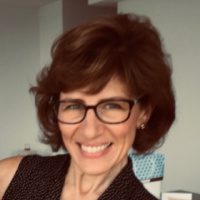
Eileen Budo honed her executive expertise securing multi-million dollar business partnerships with Suppliers around the world as a senior executive at The Procter & Gamble Company in Cincinnati, Ohio. In her last 15 years at P&G she specialized in the procurement of Business Services and crafted the first shared service for P&G manufacturing plants.
After her retirement from P&G, Eileen went to Culinary School at the Midwest Culinary Institute and began to focus her energy on how food makes us whole. She joins Last Mile Food Rescue with a passion for bring good food to those who need it and eliminating the issue of Food Insecurity across greater Cincinnati.
An Air Force veteran, Eileen proudly served in the Air Force Systems Command at Wright Patterson AFB where she met her husband, Ed. The two have been married for 30+ years; together they raised two great kids and share their Cincinnati home with two sweet dogs – a Goldendoodle and a Labradoodle.
Eileen holds dual citizenship in the US and the Republic of Ireland and is an avid reader and novice baker of sourdough bread, a hobby she began to keep her sane during the COVID pandemic. Connect with Eileen on LinkedIn.
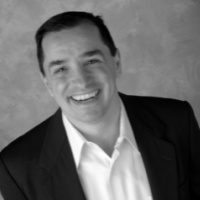
Ray Attiyah is an entrepreneur, innovator, teacher author, and speaker. At just 26, he founded his first business, Definity Partners, a hands-on, business-training firm that integrates process redesign and leadership-behavior modeling. Since then, Ray has started, acquired, or invested in many companies, including starting a manufacturing company, Upside Innovations, which — despite being launched during the recession — has experienced double-digit growth every year since 2009. Upside began as an experiment and proof-of-concept of the Run Improve Grow system, and Ray is immensely proud of the bold leadership and culture fueling that growth. At each point in his career, Ray has focused on the transformation of people. He believes deeply that a leader’s primary responsibility is to create an inspiring culture where everyone — from the front-line workers to the CEO — can grow into their full potential. Ray has helped hundreds of organizations, from small start-ups to Fortune 50 companies, with a vision of engineering the perfect growth, improvement, and talent system. His tested roadmap for bold business and personal growth is outlined in his book, “Run Improve Grow.” Ray received his Bachelor of Science in Industrial Engineering from Rutgers University and an MBA from Xavier University. In addition to serial entrepreneurship, he has been an Industrial Engineer, Director of Operations, Chief Innovation Officer, and can occasionally be seen on ESPN competing in the World Series of Poker. When Ray isn’t busy inspiring fearless leaders, he can be found in Cincinnati, Ohio, where he lives with his wife, three daughters, and a remarkably well-behaved Golden Retriever named Chloe. Connect with Ray on LinkedIn.
